It was almost 10 months ago that the Vikings selected Justin Jefferson with the 22nd overall pick of the 2020 NFL Draft.
Even though Jefferson was coming off a stellar 2019 season at LSU and helped the Tigers win a national title, he was the fifth wide receiver taken last spring.
Henry Ruggs III went 12th to the Raiders, Jerry Jeudy was tabbed at No. 15 by the Broncos and Dallas selected CeeDee Lamb at No. 17. The Eagles took Jalen Reagor with the 21st pick, one spot before Minnesota grabbed Jefferson.
Yet as the 2020 season unfolded, it was clear that Jefferson wasn't just the best rookie wide receiver in the league. He is also viewed as one of the top talents at his position across the NFL.
While it remains to be seen if the 21-year-old wins the NFL's Offensive Rookie of the Year Award, it's worth noting Jefferson was the only offensive rookie to make the 2021 Pro Bowl.
He recorded 1,400 receiving yards, a total that was both a Super Bowl-era rookie record and a Vikings single-season record by a rookie, breaking Randy Moss' 1,313 in 1998.
Jefferson's 88 catches set another franchise record and led all rookies, and he tied for second in his draft class with seven touchdown catches.
The 2020 first-round pick also tied the Super Bowl-era record of seven games with 100-plus receiving yards by a rookie (Odell Beckham, Jr., in 2014). That mark also broke Moss' Vikings rookie record of four.
Additionally, Jefferson tied for the league lead with 23 receptions of 20-plus yards, joining Kansas City's Travis Kelce and Atlanta's Calvin Ridley.
With all of that in mind, Vikings.com reached out to an esteemed group of NFL draft analysts to glean why Jefferson had such a superb season – and learn what some may have missed in their pre-draft evaluations.
Here are the panelists, along with their insight on the rise of Justin Jefferson:
— Daniel Jeremiah (NFL Network)
— Dane Brugler (The Athletic
— Jordan Reid (The Draft Network)
— Chris Trapasso (CBS Sports)
— Solomon Wilcots (Pro Football Focus)
View the frame-by-frame shots of Justin Jefferson's first career touchdown he hauled in during the Week 3 Vikings-Titans game at U.S. Bank Stadium.




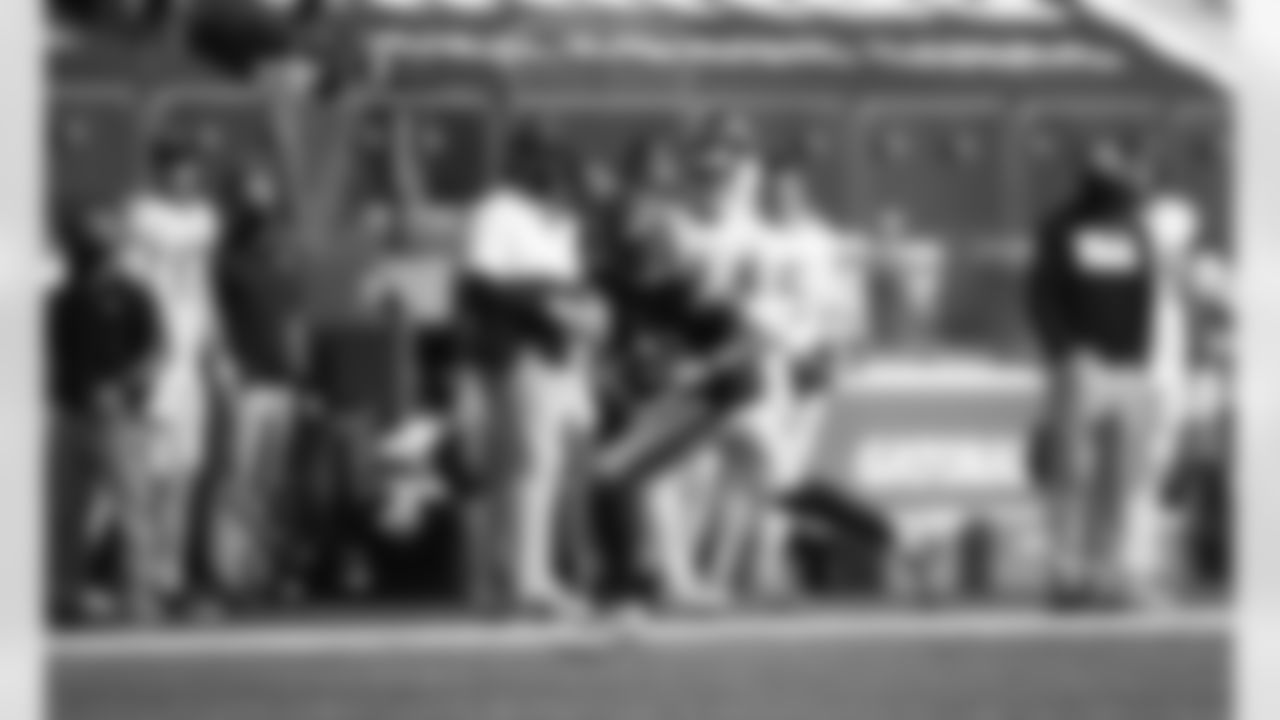
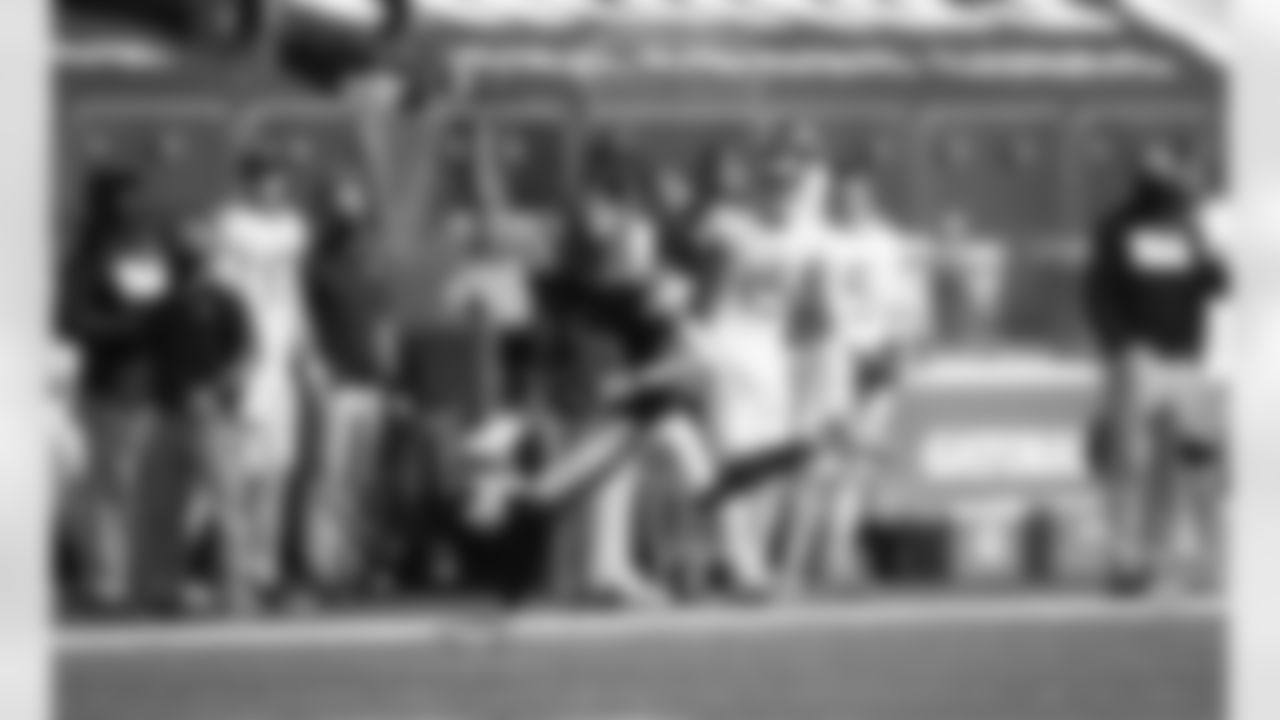
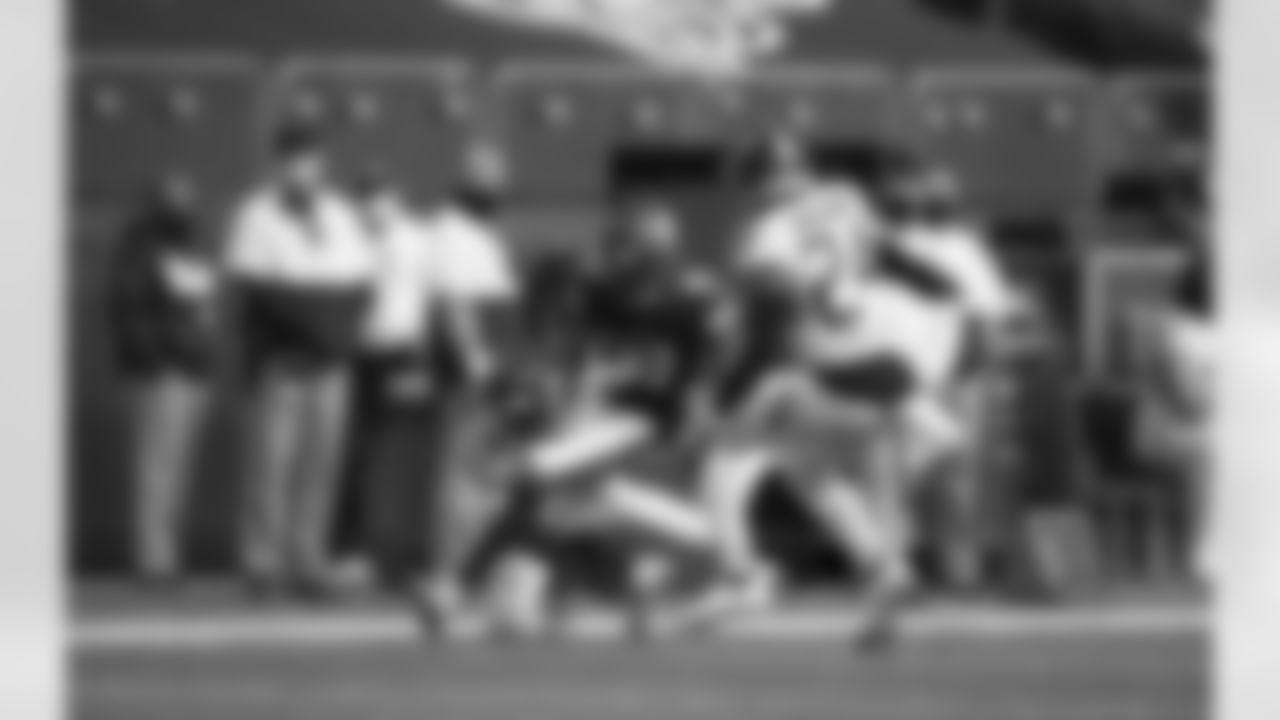
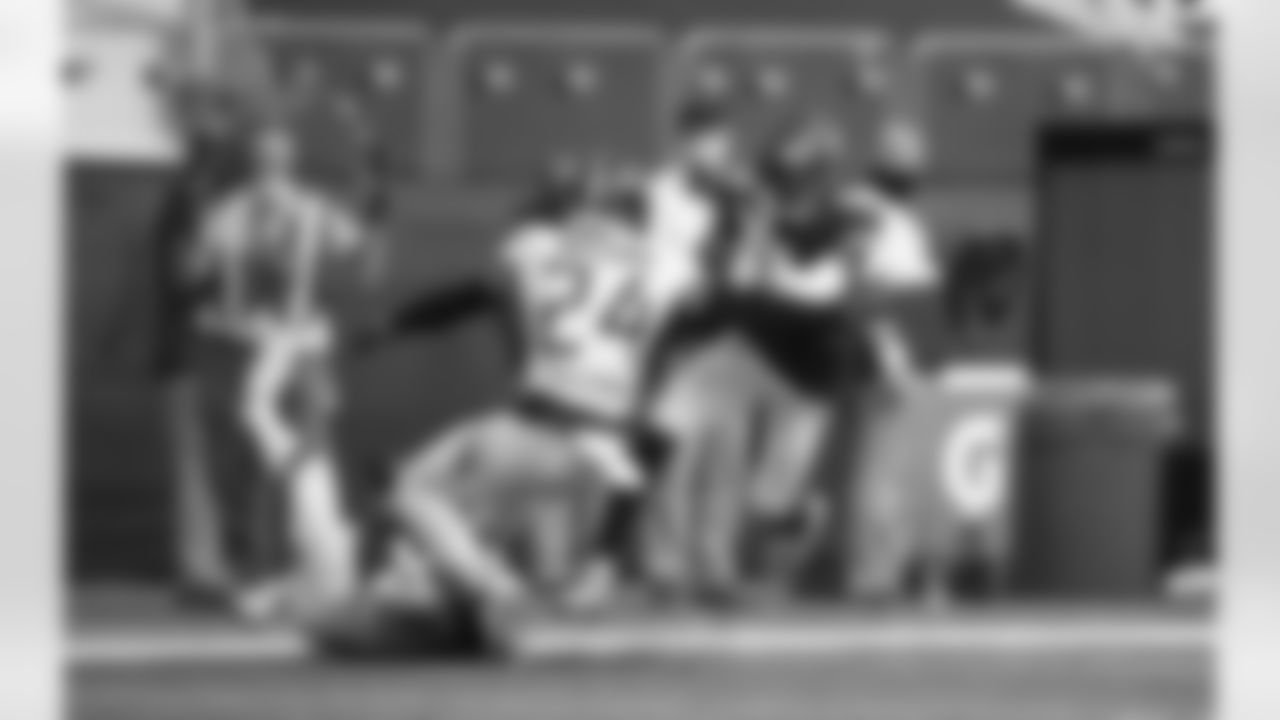
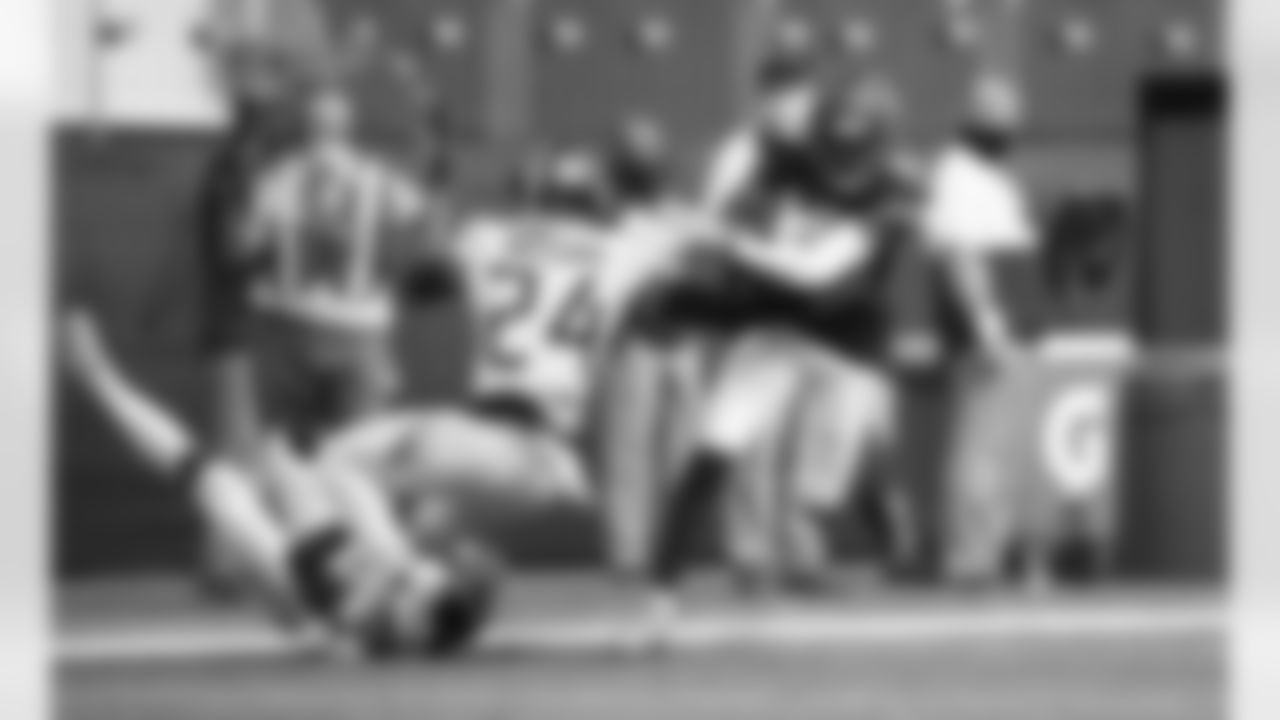
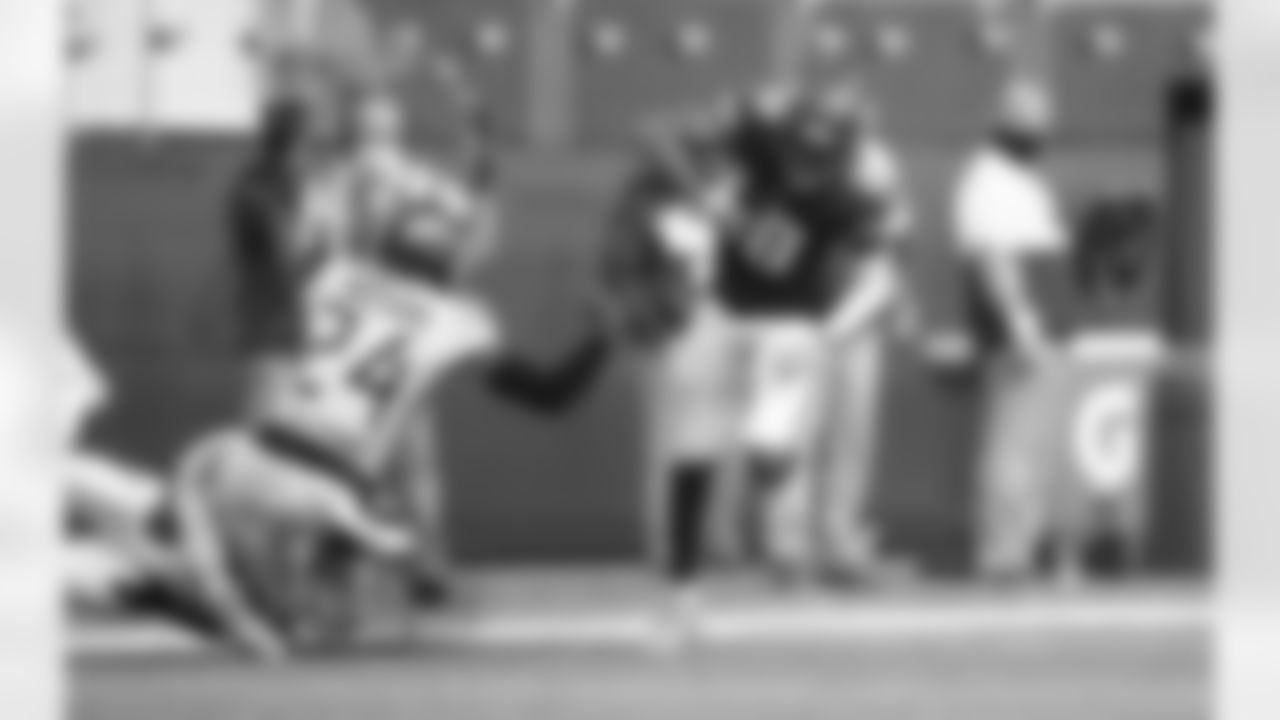
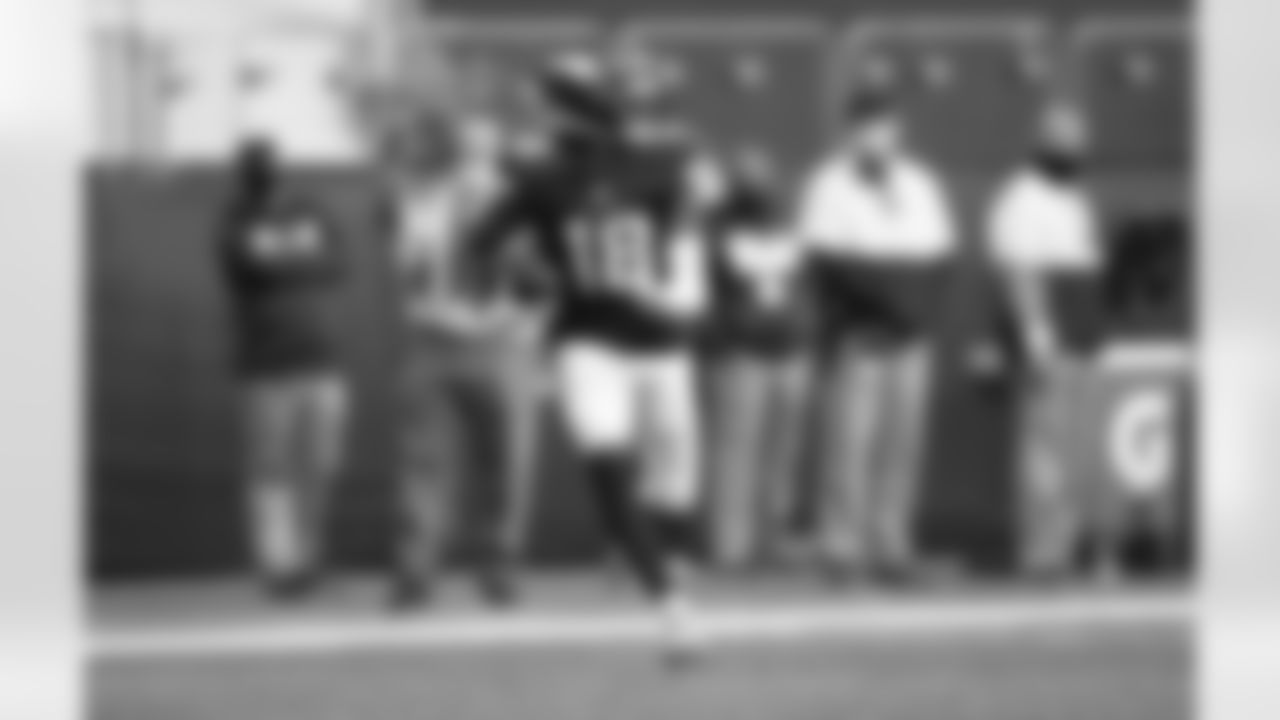









To start, are you surprised at all by the success Jefferson had during his rookie season?
Jeremiah: "You know, the crazy thing is that you listed his [season stats] and they're astronomical. But I remember when he was picked and saying, 'Look, I think his numbers will eclipse what Stefon Diggs had in this offense [in 2019]. I thought he was going to fit into this offense beautifully and he was ready-made, ready to go.
"I guess maybe the [number] of big plays down the field … maybe that would be the surprise. His yards-per-catch is indicative of just how dynamic he was over the top. But this is one of the most polished receivers [drafted] in the last several years and just an absolute gift to the Minnesota Vikings that he was there when the pick was up. Man, you talk about hitting the ground running, he's already established himself as a top-five-type receiver in the NFL as a rookie. It's pretty nuts."
View the sketch of Vikings first round draft pick WR Justin Jefferson who was transformed into a caricature by local artist Erik Roadfeldt.

1 - Sketch

2 - Shapes

3 - Flat colors

4 - Line work

5 - Shading and highlights

Final piece
Brugler: "I think yes and no. On one hand, you don't expect a rookie to step in and pass names like Randy Moss and Anquan Boldin for the most receiving yards all-time by a rookie. Eighty-eight catches for 1,400 yards … who would have guessed that? And who would have guessed he'd tie for the league lead with [Kelce and Ridley] for the most receptions of 20-plus yards with 23? Those are just phenomenal numbers that I don't think any rookie should have to have those types of expectations coming in.
"But when we scouted him out of LSU, he had an NFL-ready skill set so he was set up to have an immediate impact. He went to a situation where the target share was there. When talent meets opportunity, the potential for great things happens. That's what we saw with Jefferson in Minnesota this year."

Reid: "I wouldn't say I was surprised, but his production did surprise a lot of people. For how well he translated to the NFL, that's not surprising to me, just because he got a wealth of experience when he was at LSU. I think the big thing about Jefferson that a lot of people had misconstrued about him coming out is that he was a slot-only guy. That's something he was tagged with a lot and what everybody [fixated on]. They looked so much at the stellar 2019 season he had that they forgot to look back to his entire body of work – and to 2018 when he produced a lot [on the outside], as well.
"I think [former LSU passing game coordinator and wide receivers coach] Joe Brady did a good job as well of convincing him to play the slot because they had so many targets out on the perimeter. Jefferson was really the guy that got left out coming into [2019], but as the year went along, you saw the production that he had. I think that wealth of experience he got in the slot and on the outside really helped him because I think [Gary] Kubiak's system is one of the hardest to learn, especially for a receiver. But we saw the ability he had on the slot and on the outside. As far as a route runner, he's got all that figured out. He's a natural hands-catcher as well, and we saw all of those traits translate to the next level."
Trapasso: "Of all the draft analysts, I was probably the most surprised. I had Justin Jefferson as a late-second round talent on my final Big Board, and I've certainly come to terms with the fact that I need to take the 'L' on this one. Normally with a draft prospect, you want to wait two or three years to decide whether or not it was a hit or a miss, but I'm taking the 'L' very early.
"I was surprised the most that he was able to excel on the outside. I think LSU actually did him somewhat of a disservice in 2019 despite the 111 catches, the 18 touchdowns and [1,540] yards receiving. He was predominantly a slot wide receiver with 93 percent of his snaps in the slot. In most cases, when that's where a receiver is lining up, it's because the coaching staff sees him only as a slot receiver.
"With the Vikings this season, he was able to beat man coverage on the outside, which is certainly much more difficult than winning from inside. That's what really impressed and surprised me the most, is that he made a seamless transition to the boundary receiver spot and really exploded for the Vikings."
Wilcots: "I really did have a high bar for him coming out of LSU because I was aware of what he was doing within that program and that system. I thought he should be the fourth receiver taken, maybe after Lamb, Jeudy and Ruggs … but I thought he'd be right there. I wrote an article prior to the draft suggesting as much. I was stunned that the Eagles took Reagor at 21 … and I was immediately elated for the Minnesota Vikings. But what [Jefferson] did in his rookie campaign, it exceeded my already lofty expectations."
Let's take a deeper dive into Jefferson's 2020 campaign. What did he excel at to help him have such a historic season?
Jeremiah: "He's a craftsman. He's a master craftsman as a route runner. You saw that with his ability to get in and out of breaks. You look at his ability to create separation at the top of the route – that, to me, jumps out. And then just having an understanding of how to set up defenders, it's just the overall feel and awareness and instinct he possessed that you're not supposed to have when you're that young. But he just has it.
"And he's someone, when you look at the play speed … he ran faster than I think a lot of people anticipated, myself included … and I feel like the guy you're seeing now is even a faster and more explosive version of the one we saw at LSU. The best receivers in the NFL, if you want to look at the stats year over year, are not always the biggest, the fastest, the strongest. They're the best route runners and the guys with the best hands. That's exactly who he is."
Brugler: "I think first and foremost, he developed the trust that's required between a quarterback and receiver. Historically, first-year receivers have a distinct learning curve because they have to get down the timing with a new offense and a new quarterback against better coverage. When you factor in the loss of practice time, workouts last summer, preseason games due to COVID, developing that chemistry would theoretically be tougher. And we saw that the first few games as he settled in and got his feet wet. But then he started rattling off these 100-yard receiving games.
"So part of developing that chemistry is earning trust of the quarterback. Be on time with your routes, being in the right place at the right time — and I know that sounds very simple, and it's a simplistic way to put it — but for a rookie receiver, it's tough. And just being reliable as a finisher, he had only two drops this year. So with the route running and his hands, [Kirk] Cousins quickly trusted Jefferson, and that manifested itself on the stat sheet."
Reid: "Just his natural maturation as a route runner really stood out. That's something he was labeled as in the pre-draft process, just how seasoned he was as a route runner. A lot of times with receivers coming into the draft from their offensive systems, they're not really exposed to a lot of branches on the route tree. You get certain branches on the tree that they're running, whether it's a quick route outside on the perimeter or quick touches, that they don't really get exposure to a lot of different routes on the college level. Everything is up-tempo and getting the ball into the receiver's hands as soon as possible, but at LSU, he played in that pro-style system where he was already running a lot of the routes he was going to be asked to at the next level.
"So, his route running, and then his hands. I think it was the Titans game where Kirk really started to develop some trust with him. He had a breakout game (seven catches for 175 yards and a 71-yard touchdown), so after that point he was absolutely lights-out."
Trapasso: "I think he checked all the boxes of a modern-day receiver. Start at the beginning of the play, you have to be able to beat press coverage at the line. Even at LSU, you're not going to see a lot of press coverage … it's a lot of zone, Cover 2 or Cover 4. In the NFL, they're actually going to get up in your face and be physical and quick. I thought his releases off the line of scrimmage were fantastic.
"Then as a route runner, he ran a lot of intricate routes where he had to throttle down and change direction to create separation … and he did that fantastically. Then what I thought was his strength at LSU, and he showed it in his rookie season, [he was] awesome in contested catch situations. In his final college season, he converted 12 of his 13 contested catches, and we saw him do that almost every week on passes from Kirk Cousins. If there was a safety coming over the top and there was a jump-ball situation, Jefferson was coming down with the football. It wasn't a 50-50 ball for him, it was more like 80-20. So when you win at the line, create separation and then win in those rebounding situations, that's all the ingredients to have an Offensive Rookie of the Year-type season that he had."
Wilcots: "Let's go back to his time at LSU. In 2019, most of his production was in the slot. For whatever reason, some people don't understand what slot receivers truly are asked to do. First, LSU was already running a pro-style NFL offense. A lot of receivers that come into the NFL, there are a lot of things they're just not asked to do in college. But Jefferson had to understand blitz protection, hot reads … he was asked to play in the slot because he had the highest football IQ of all the other receivers. He's got to be able to break across the middle and take a hit from a linebacker. He was asked to be the savior for Joe Burrow on a lot of hot reads … three-step drop and the ball has to come out or else the quarterback is going to get hit.
"He had to understand zone coverages, when to break off his route and settle in … and he did it time and time again. That shows a tremendously high IQ, so he was operating at an extremely high level already. Playing in Gary Kubiak's offense, I knew the guy wouldn't miss a beat, even without having OTAs. He just hit the ground running."
Looking back at your pre-draft report, what were you spot on about in your assessment of Jefferson?
Jeremiah: "I think if you go back and pull it up and read it, I feel pretty good about what I saw from him. Again, it was just a pure route runner and someone with a lot of polish. He understands how to get open … he can beat man [coverage], understands how to work in zone. Just the polish that he had was something that you saw.
"At the end of the day, I had him as the No. 4 receiver but he was 14th on my list overall. He was someone that should never had been there when [the Vikings] picked. He's already emerged as not only the best receiver in this draft class but one of the best in the entire league."
View photos of LSU WR Justin Jefferson who was selected by the Vikings in the first round of the NFL Draft.
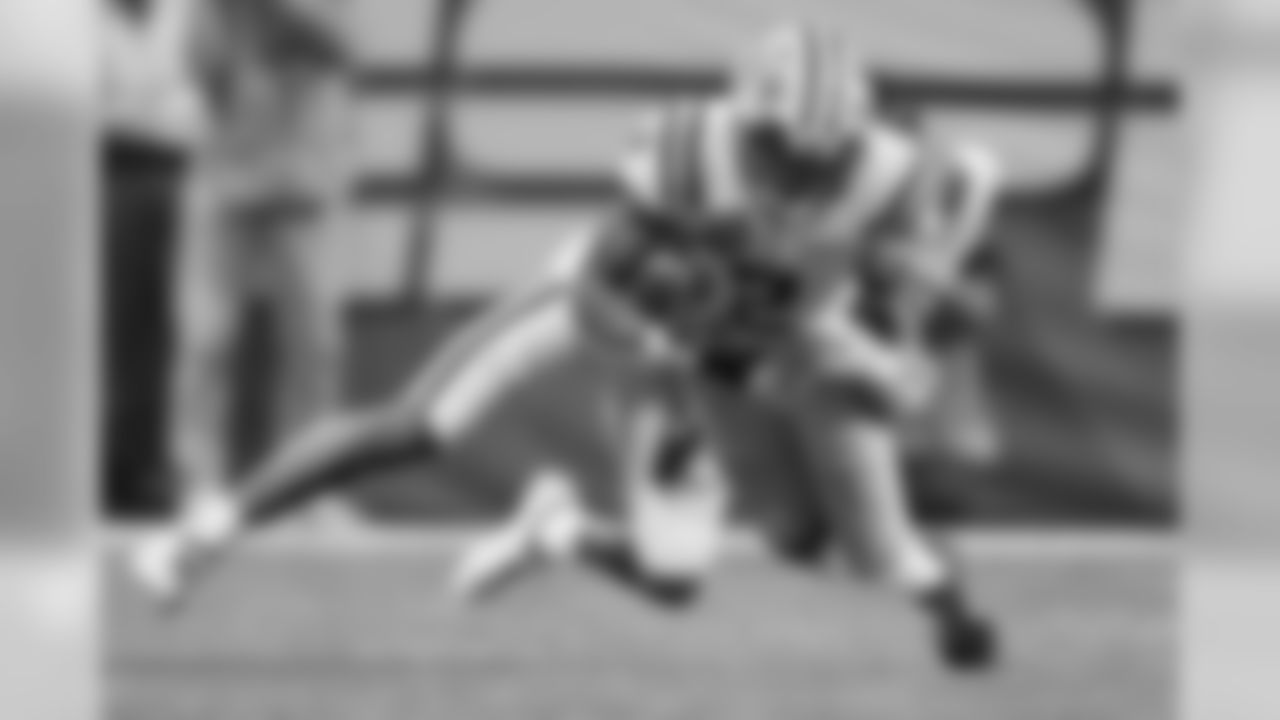

Auburn defensive back Noah Igbinoghene (4) breaks up a pass intended for LSU wide receiver Justin Jefferson (2) in the end zone during the second half of an NCAA college football game, Saturday, Sept. 15, 2018, in Auburn, Ala. (AP Photo/Butch Dill)

LSU wide receiver Justin Jefferson runs the 40-yard dash during the 2020 NFL Scouting Combine, Thursday, Feb. 27, 2020 in Indianapolis. (Ben Liebenberg via AP)

LSU wide receiver Justin Jefferson runs a drill during the 2020 NFL Scouting Combine, Thursday, Feb. 27, 2020 in Indianapolis. (Ben Liebenberg via AP)

LSU wide receiver Justin Jefferson runs the 40-yard dash during the 2020 NFL Scouting Combine, Thursday, Feb. 27, 2020 in Indianapolis. (Ben Liebenberg via AP)

LSU wide receiver Justin Jefferson runs the 40-yard dash during the 2020 NFL Scouting Combine, Thursday, Feb. 27, 2020 in Indianapolis. (Ben Liebenberg via AP)

LSU wide receiver Justin Jefferson runs the 40-yard dash during the 2020 NFL Scouting Combine, Thursday, Feb. 27, 2020 in Indianapolis. (Ben Liebenberg via AP)

LSU wide receiver Justin Jefferson runs a drill during the 2020 NFL Scouting Combine, Thursday, Feb. 27, 2020 in Indianapolis. (Ben Liebenberg via AP)

LSU wide receiver Justin Jefferson runs a drill at the NFL football scouting combine in Indianapolis, Thursday, Feb. 27, 2020. (AP Photo/Michael Conroy)

LSU wide receiver Justin Jefferson runs the 40-yard dash during the 2020 NFL Scouting Combine, Thursday, Feb. 27, 2020 in Indianapolis. (Ben Liebenberg via AP)

LSU wide receiver Justin Jefferson runs a drill at the NFL football scouting combine in Indianapolis, Thursday, Feb. 27, 2020. (AP Photo/Michael Conroy)

LSU wide receiver Justin Jefferson runs a drill at the NFL football scouting combine in Indianapolis, Thursday, Feb. 27, 2020. (AP Photo/Michael Conroy)

LSU wide receiver Justin Jefferson runs a drill at the NFL football scouting combine in Indianapolis, Thursday, Feb. 27, 2020. (AP Photo/Michael Conroy)

LSU wide receiver Justin Jefferson runs a drill at the NFL football scouting combine in Indianapolis, Thursday, Feb. 27, 2020. (AP Photo/Michael Conroy)

LSU wide receiver Justin Jefferson runs a drill at the NFL football scouting combine in Indianapolis, Thursday, Feb. 27, 2020. (AP Photo/Michael Conroy)

LSU wide receiver Justin Jefferson catches the ball during the NFL football scouting combine, Thursday, Feb. 27, 2020, in Indianapolis. (Aaron M. Sprecher via AP)

LSU wide receiver Justin Jefferson runs after the catch during the NFL football scouting combine, Thursday, Feb. 27, 2020, in Indianapolis. (Aaron M. Sprecher via AP)

LSU wide receiver Justin Jefferson runs after the catch during the NFL football scouting combine, Thursday, Feb. 27, 2020, in Indianapolis. (Aaron M. Sprecher via AP)
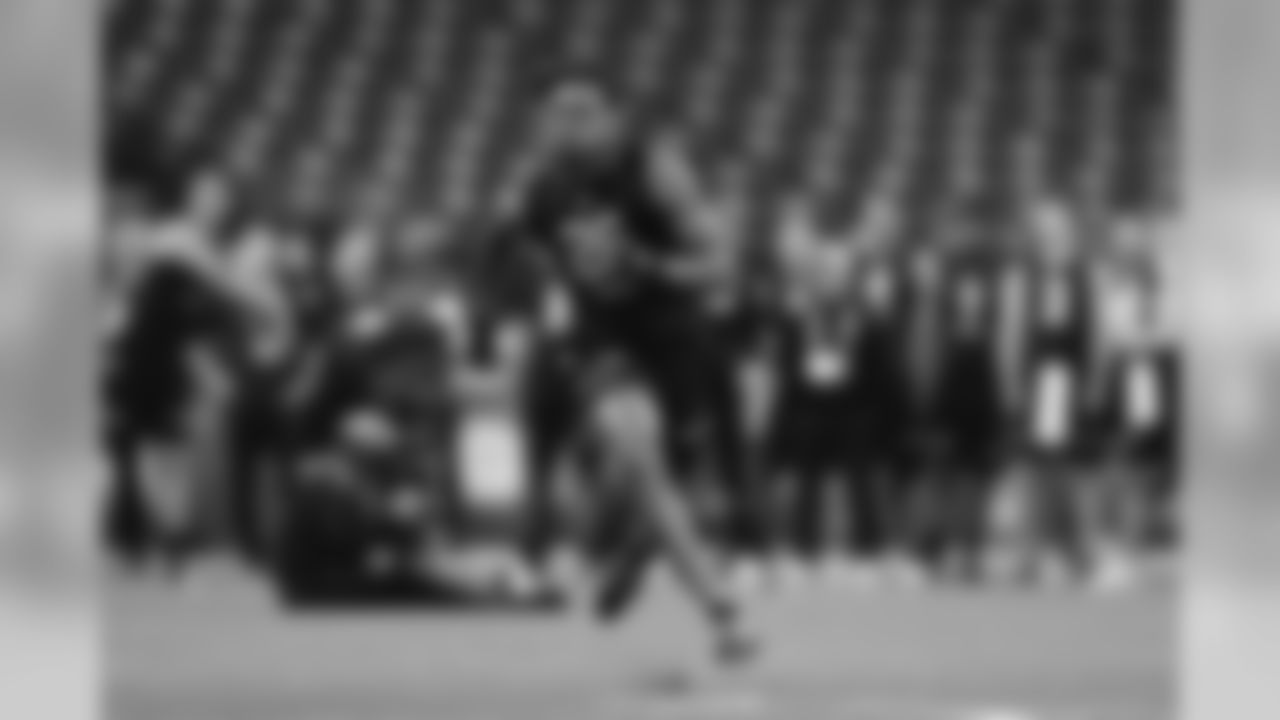
LSU wide receiver Justin Jefferson runs a route during the NFL football scouting combine, Thursday, Feb. 27, 2020, in Indianapolis. (Aaron M. Sprecher via AP)

LSU wide receiver Justin Jefferson runs a drill at the NFL football scouting combine in Indianapolis, Thursday, Feb. 27, 2020. (AP Photo/Michael Conroy)

LSU wide receiver Justin Jefferson catches the ball during the NFL football scouting combine, Thursday, Feb. 27, 2020, in Indianapolis. (Aaron M. Sprecher via AP)

LSU wide receiver Justin Jefferson runs a route during the NFL football scouting combine, Thursday, Feb. 27, 2020, in Indianapolis. (Aaron M. Sprecher via AP)

LSU wide receiver Justin Jefferson reacts during the NFL football scouting combine, Thursday, Feb. 27, 2020, in Indianapolis. (Aaron M. Sprecher via AP)

LSU wide receiver Justin Jefferson catches the ball during the NFL football scouting combine, Thursday, Feb. 27, 2020, in Indianapolis. (Aaron M. Sprecher via AP)

LSU wide receiver Justin Jefferson catches the ball during the NFL football scouting combine, Thursday, Feb. 27, 2020, in Indianapolis. (Aaron M. Sprecher via AP)

LSU wide receiver Justin Jefferson catches the ball during the NFL football scouting combine, Thursday, Feb. 27, 2020, in Indianapolis. (Aaron M. Sprecher via AP)

LSU wide receiver Justin Jefferson runs the 40 yard dash during the NFL football scouting combine, Thursday, Feb. 27, 2020, in Indianapolis. (Aaron M. Sprecher via AP)

LSU wide receiver Justin Jefferson catches the ball during the NFL football scouting combine, Thursday, Feb. 27, 2020, in Indianapolis. (Aaron M. Sprecher via AP)

LSU wide receiver Justin Jefferson runs the 40 yard dash during the NFL football scouting combine, Thursday, Feb. 27, 2020, in Indianapolis. (Aaron M. Sprecher via AP)
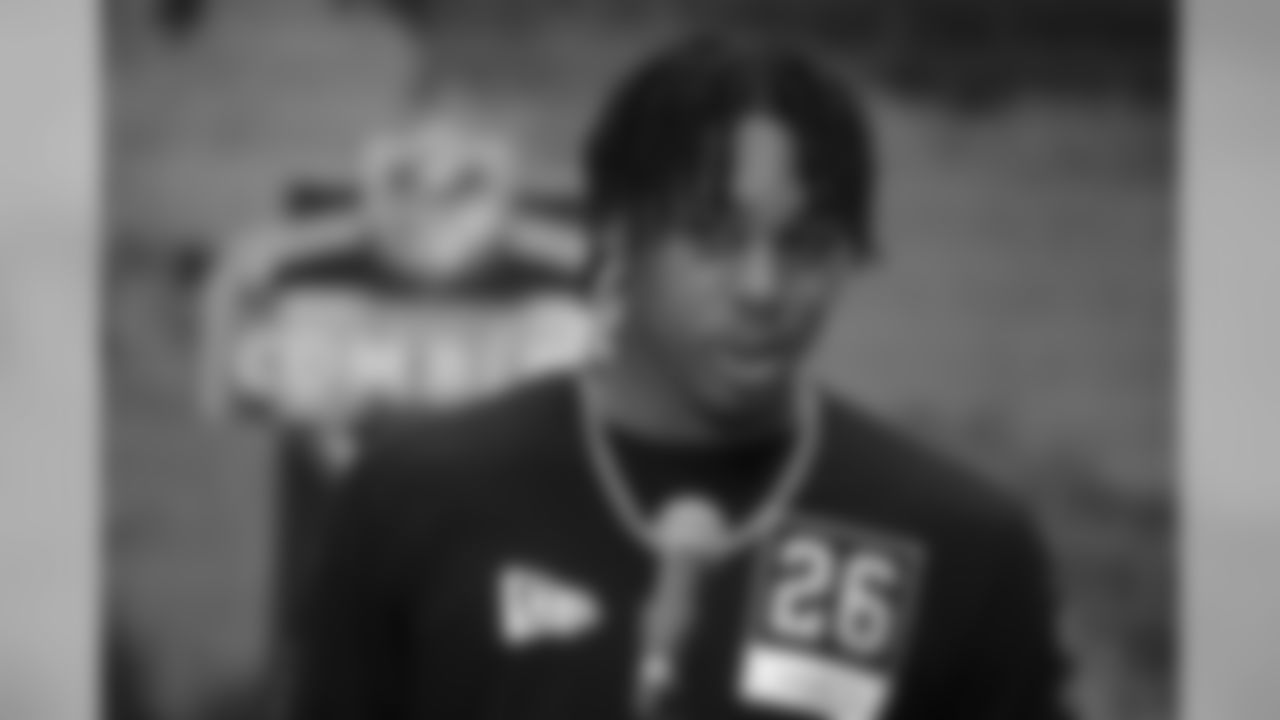
LSU wide receiver Justin Jefferson speaks during a press conference at the NFL football scouting combine in Indianapolis, Tuesday, Feb. 25, 2020. (AP Photo/Michael Conroy)
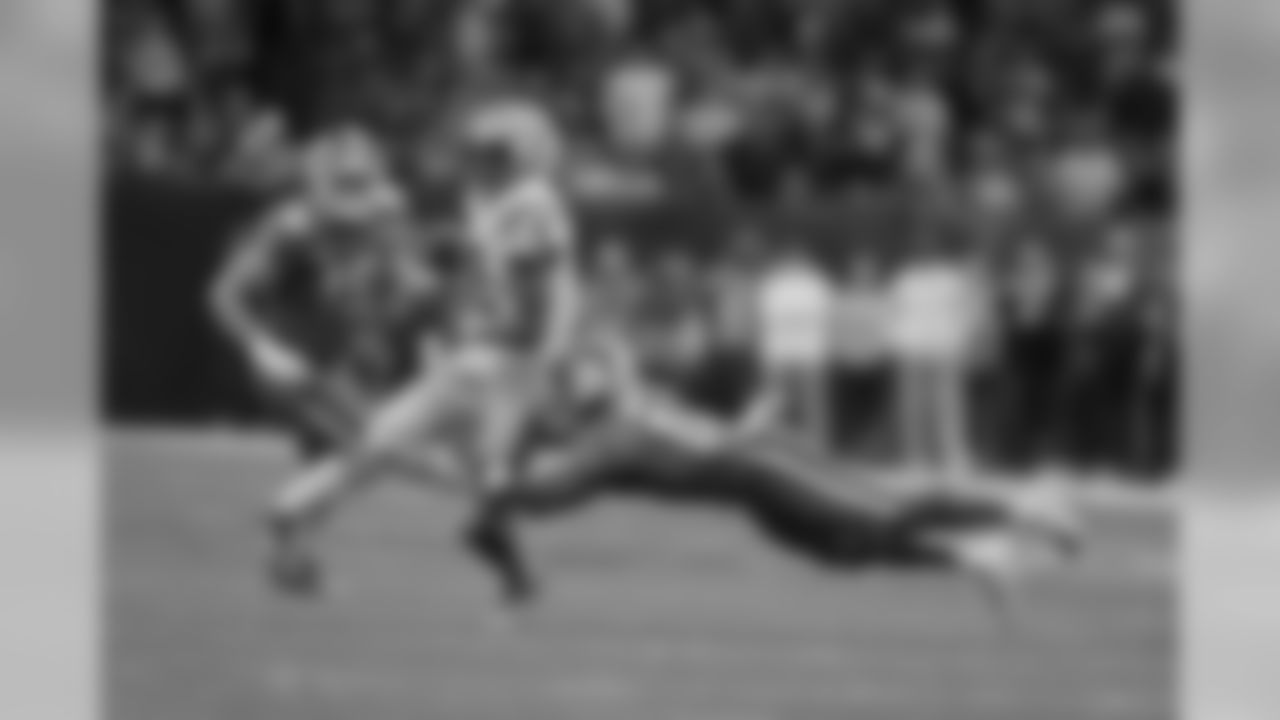
LSU wide receiver Justin Jefferson is tackled by Clemson safety K'Von Wallace during the second half of a NCAA College Football Playoff national championship game Monday, Jan. 13, 2020, in New Orleans. (AP Photo/Gerald Herbert)

LSU wide receiver Justin Jefferson runs the 40 yard dash during the NFL football scouting combine, Thursday, Feb. 27, 2020, in Indianapolis. (Aaron M. Sprecher via AP)

LSU wide receiver Justin Jefferson runs the 40-yard dash at the NFL football scouting combine in Indianapolis, Thursday, Feb. 27, 2020. (AP Photo/Charlie Neibergall)

LSU wide receiver Justin Jefferson runs the 40 yard dash during the NFL football scouting combine, Thursday, Feb. 27, 2020, in Indianapolis. (Aaron M. Sprecher via AP)

LSU wide receiver Justin Jefferson speaks during a press conference at the NFL football scouting combine in Indianapolis, Tuesday, Feb. 25, 2020. (AP Photo/Michael Conroy)

LSU wide receiver Justin Jefferson runs the 40-yard dash at the NFL football scouting combine in Indianapolis, Thursday, Feb. 27, 2020. (AP Photo/Charlie Neibergall)
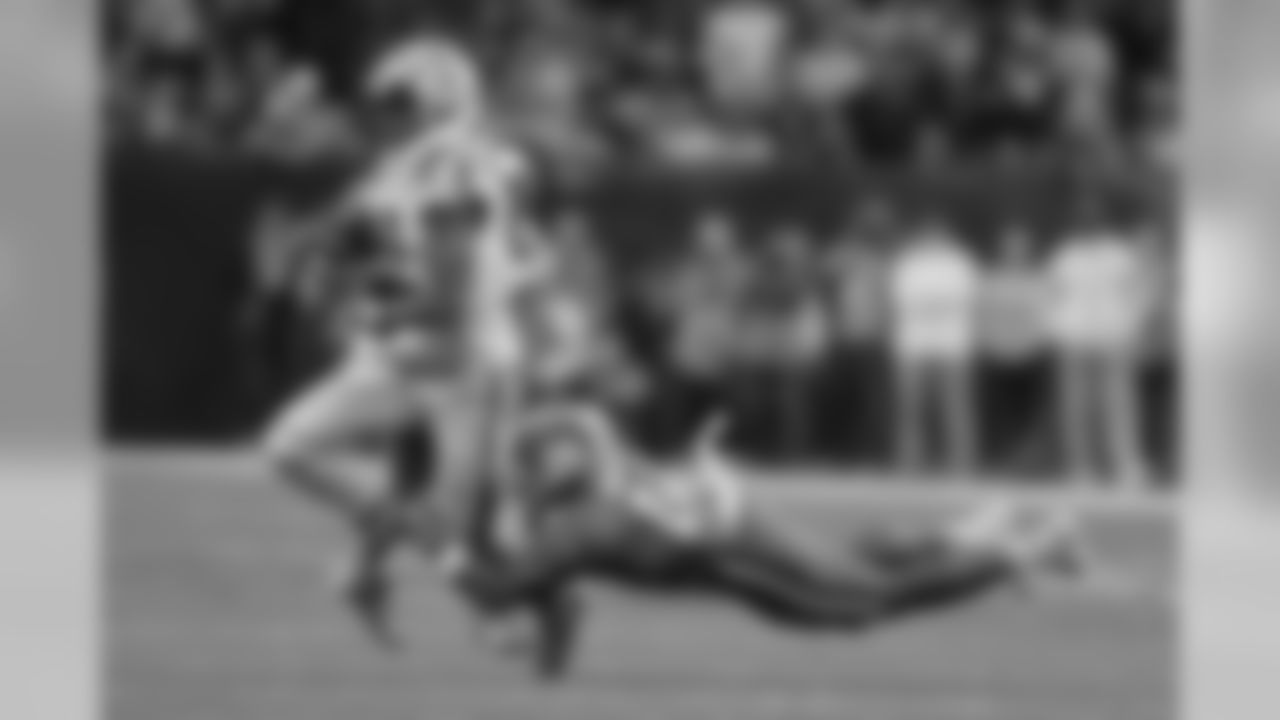
LSU wide receiver Justin Jefferson is tackled by Clemson safety K'Von Wallace during the second half of a NCAA College Football Playoff national championship game Monday, Jan. 13, 2020, in New Orleans. (AP Photo/Gerald Herbert)
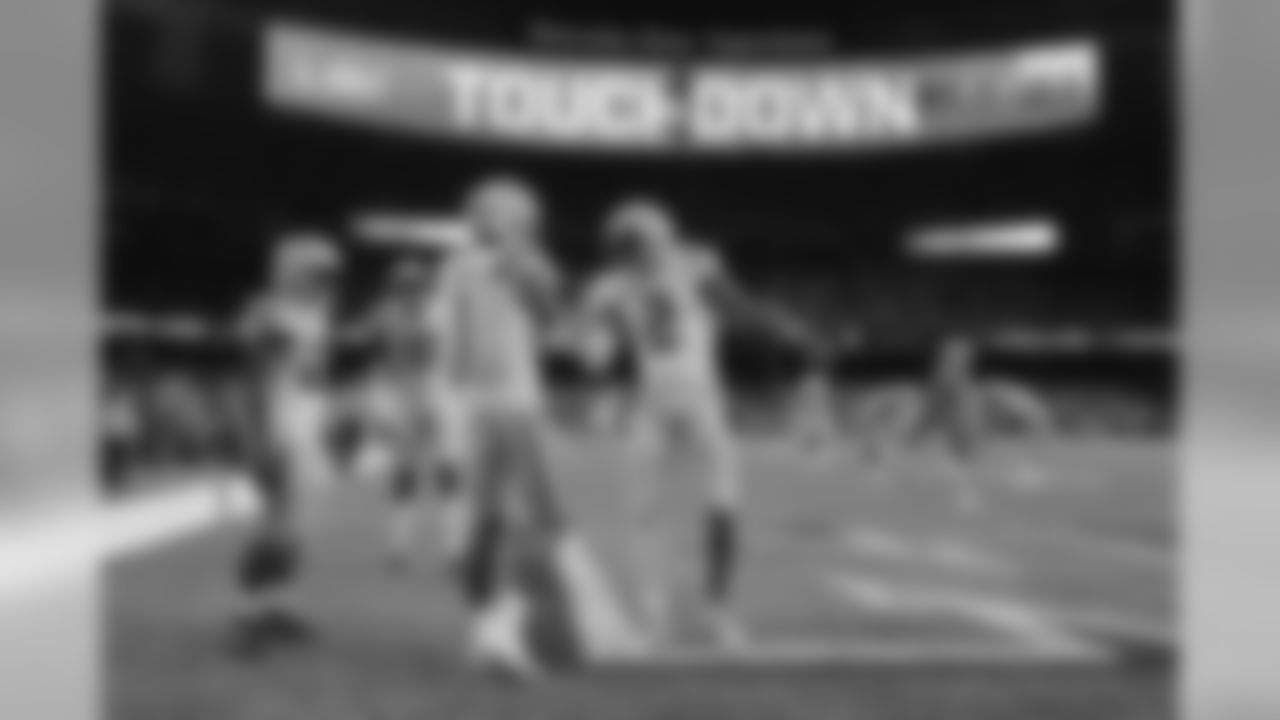
LSU wide receiver Ja'Marr Chase (1) celebrates after scoring with wide receiver Justin Jefferson during the first half of a NCAA College Football Playoff national championship game against Clemson Monday, Jan. 13, 2020, in New Orleans. (AP Photo/Gerald Herbert)

LSU wide receiver Justin Jefferson poses for a headshot during the 2020 NFL Scouting Combine, Monday, Feb. 24, 2020 in Indianapolis. (Ben Liebenberg via AP)
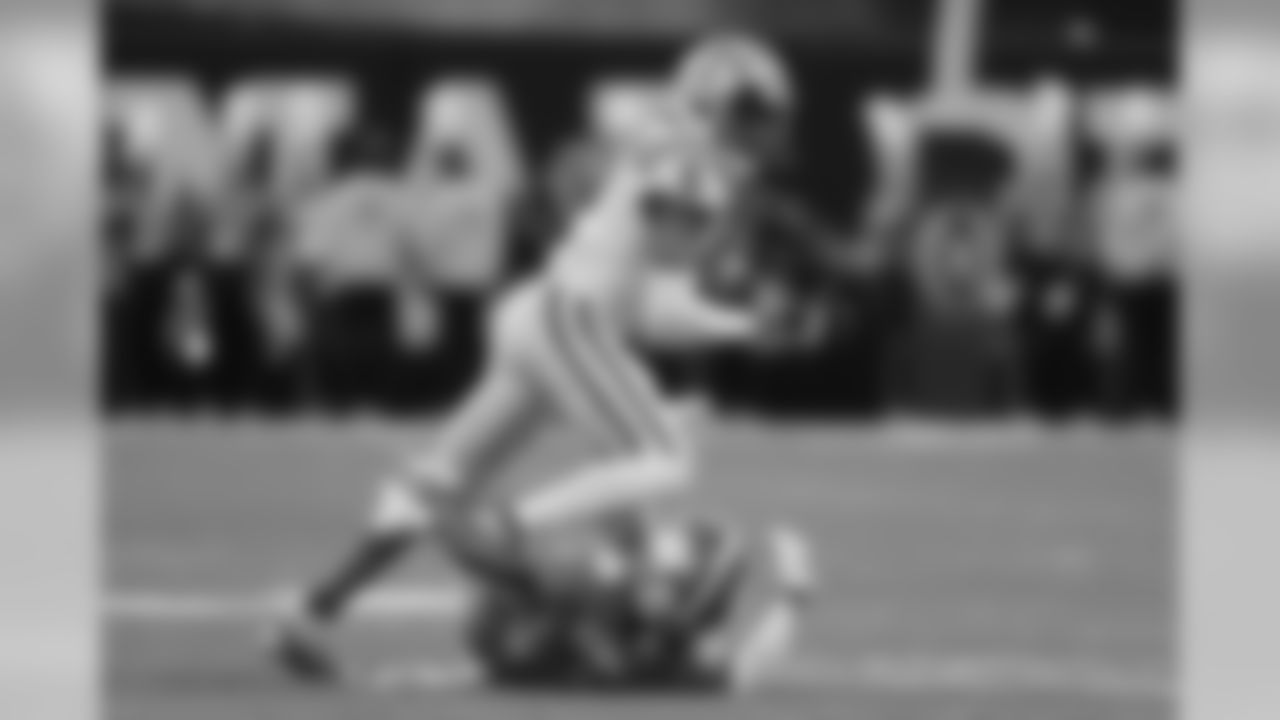
LSU wide receiver Justin Jefferson runs over Clemson cornerback Derion Kendrick during the first half of a NCAA College Football Playoff national championship game Monday, Jan. 13, 2020, in New Orleans. (AP Photo/Gerald Herbert)

LSU wide receiver Justin Jefferson (2) celebrates the touchdown by LSU tight end Thaddeus Moss (81) during the first half of the Peach Bowl NCAA semifinal college football playoff game against Oklahoma, Saturday, Dec. 28, 2019, in Atlanta. (AP Photo/John Bazemore)
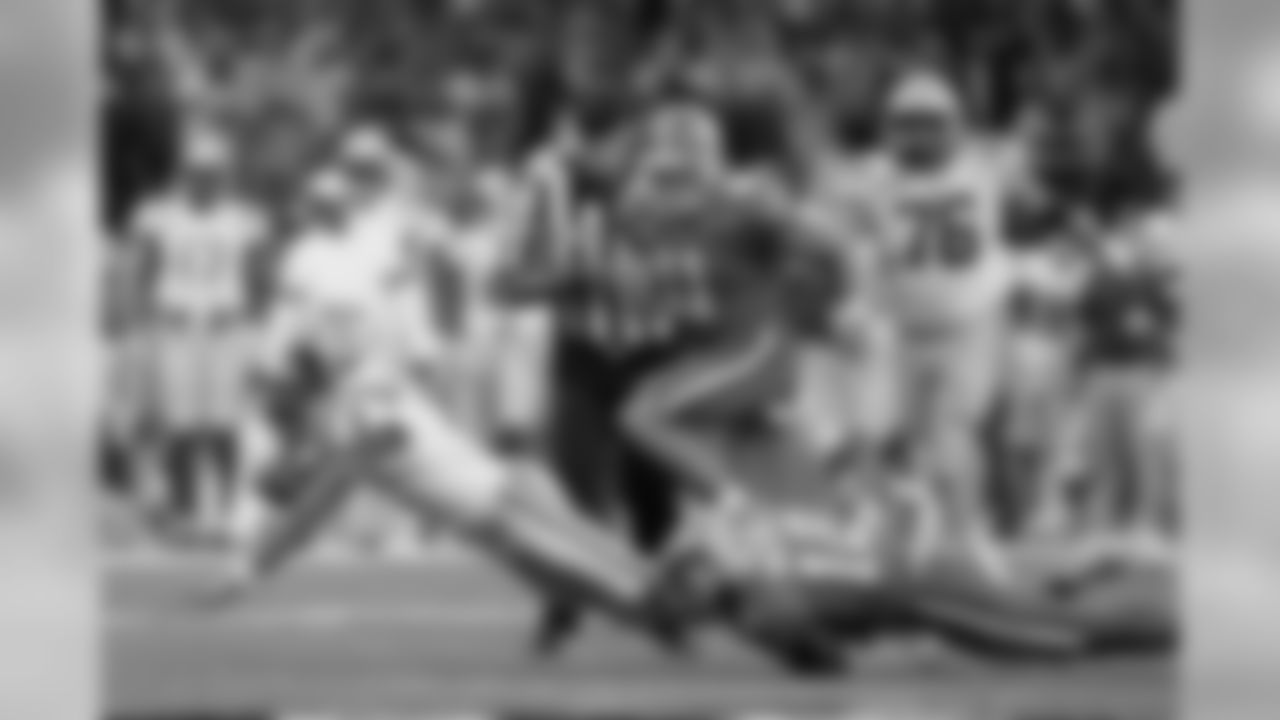
LSU wide receiver Justin Jefferson is tackled by Clemson safety K'Von Wallace during the second half of a NCAA College Football Playoff national championship game Monday, Jan. 13, 2020, in New Orleans. (AP Photo/David J. Phillip)

LSU wide receiver Justin Jefferson is tackled by Clemson during the first half of a NCAA College Football Playoff national championship game Monday, Jan. 13, 2020, in New Orleans. (AP Photo/Gerald Herbert)

LSU wide receiver Justin Jefferson is tackled by Clemson linebacker James Skalski and safety Denzel Johnson during the second half of a NCAA College Football Playoff national championship game Monday, Jan. 13, 2020, in New Orleans. (AP Photo/Eric Gay)

LSU wide receiver Justin Jefferson poses during media day for NCAA College Football Playoff national championship game Saturday, Jan. 11, 2020, in New Orleans. Clemson is scheduled to play LSU on Monday. (AP Photo/David J. Phillip).


LSU wide receiver Justin Jefferson (2) celebrates his touchdown against Oklahoma during the first half of the Peach Bowl NCAA semifinal college football playoff game, Saturday, Dec. 28, 2019, in Atlanta. LSU won 63-28. (AP Photo/Danny Karnik)

LSU wide receiver Justin Jefferson (2) celebrates a touchdown catch against Oklahoma during the first half of the Peach Bowl NCAA semifinal college football playoff game, Saturday, Dec. 28, 2019, in Atlanta.(AP Photo/John Bazemore)

LSU wide receiver Justin Jefferson (2) makes a touchdown catch against Oklahoma safety Justin Broiles (25) during the first half of the Peach Bowl NCAA semifinal college football playoff game, Saturday, Dec. 28, 2019, in Atlanta. (AP Photo/Danny Karnik)

LSU wide receiver Justin Jefferson poses during media day for NCAA College Football Playoff national championship game Saturday, Jan. 11, 2020, in New Orleans. Clemson is scheduled to play LSU on Monday. (AP Photo/David J. Phillip).

LSU wide receiver Justin Jefferson (2) runs against Georgia during the second half of the Southeastern Conference championship NCAA college football game, Saturday, Dec. 7, 2019, in Atlanta. (AP Photo/John Bazemore)

LSU wide receiver Justin Jefferson poses during media day for NCAA College Football Playoff national championship game Saturday, Jan. 11, 2020, in New Orleans. Clemson is scheduled to play LSU on Monday. (AP Photo/David J. Phillip).

LSU wide receiver Justin Jefferson leaves the field after the Peach Bowl NCAA semifinal college football playoff game against Oklahoma, Saturday, Dec. 28, 2019, in Atlanta. LSU won 63-28. (AP Photo/John Amis)

LSU wide receiver Justin Jefferson (2) celebrates his touchdown against Oklahoma during the first half of the Peach Bowl NCAA semifinal college football playoff game, Saturday, Dec. 28, 2019, in Atlanta. (AP Photo/Danny Karnik)

LSU wide receiver Justin Jefferson (2) prepares for a touchdown catch against Oklahoma safety Justin Broiles (25) during the first half of the Peach Bowl NCAA semifinal college football playoff game, Saturday, Dec. 28, 2019, in Atlanta. (AP Photo/Danny Karnik)
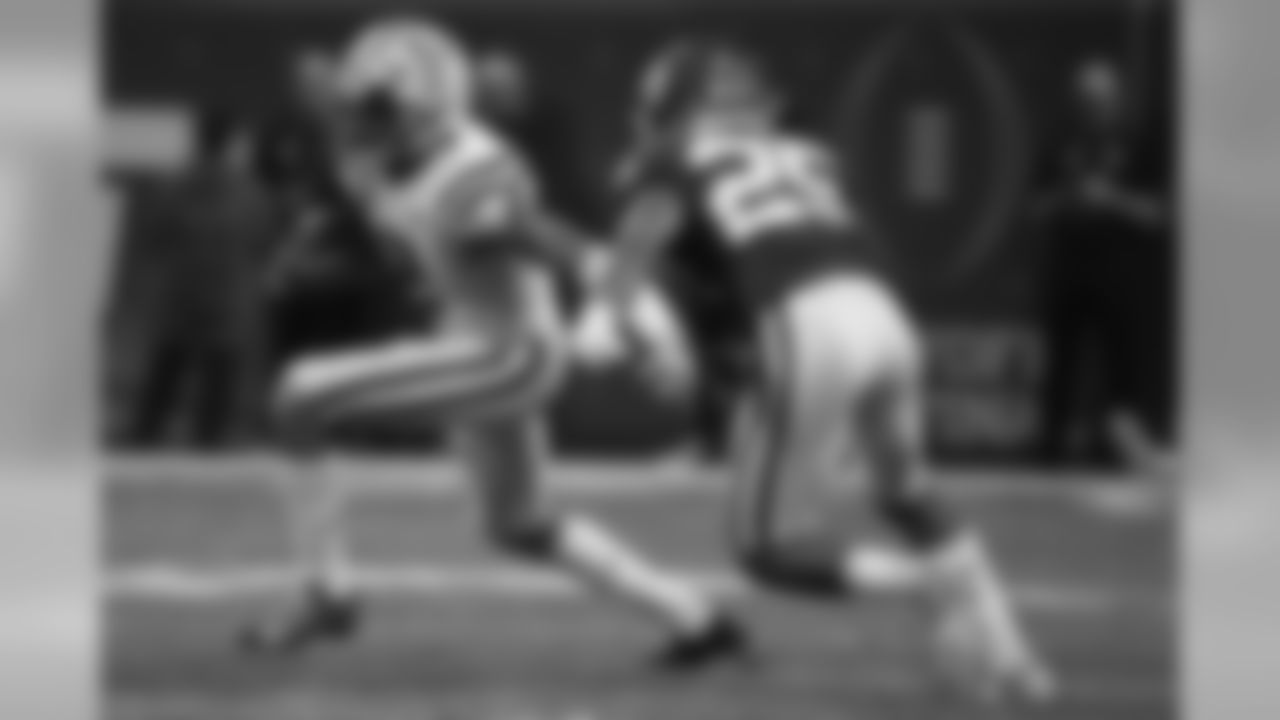
LSU wide receiver Justin Jefferson (2) runs against Oklahoma safety Justin Broiles (25) during the second half of the Peach Bowl NCAA semifinal college football playoff game, Saturday, Dec. 28, 2019, in Atlanta. (AP Photo/Danny Karnik)


LSU wide receiver Justin Jefferson (2) celebrates a touchdown catch against Oklahoma safety Justin Broiles (25) during the first half of the Peach Bowl NCAA semifinal college football playoff game, Saturday, Dec. 28, 2019, in Atlanta. (AP Photo/Danny Karnik)
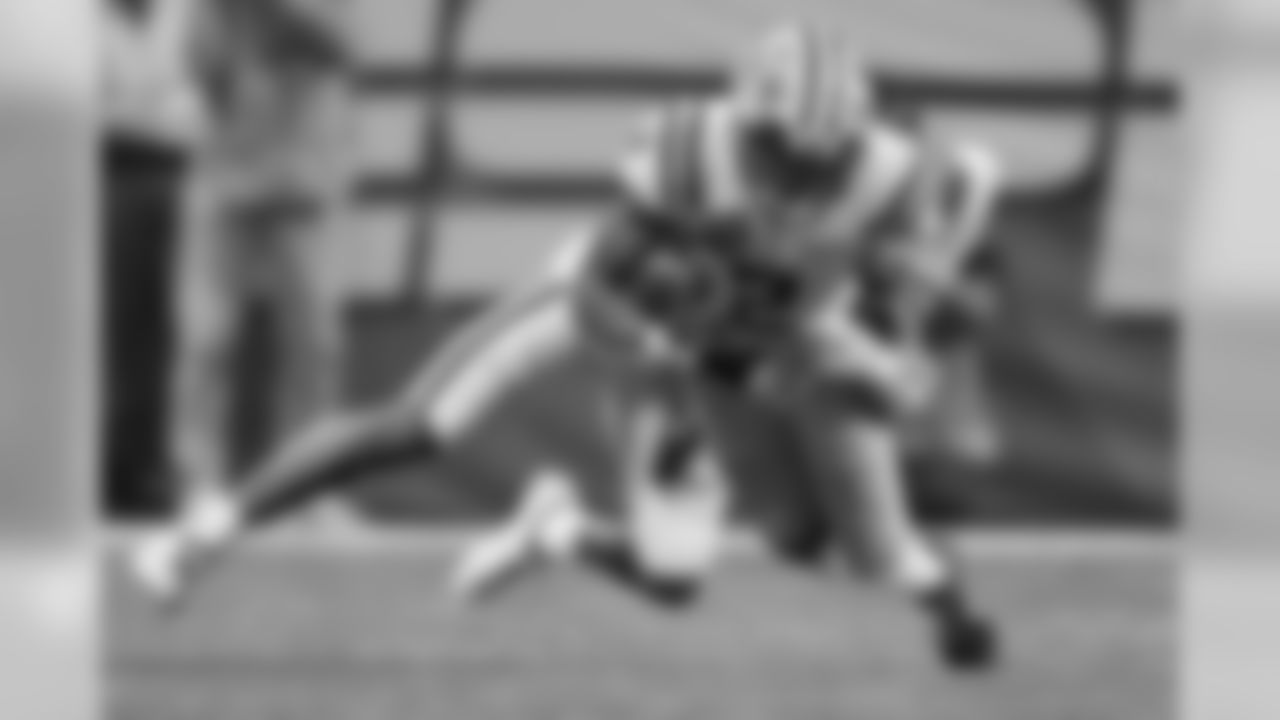
LSU wide receiver Justin Jefferson (2) runs against Oklahoma cornerback Woodi Washington (5) during the second half of the Peach Bowl NCAA semifinal college football playoff game, Saturday, Dec. 28, 2019, in Atlanta. (AP Photo/John Bazemore)

LSU wide receiver Justin Jefferson (2) makes a touchdown catch against Oklahoma safety Justin Broiles (25) during the first half of the Peach Bowl NCAA semifinal college football playoff game, Saturday, Dec. 28, 2019, in Atlanta. (AP Photo/Danny Karnik)

LSU wide receiver Justin Jefferson (2) makes a touchdown catch against Oklahoma safety Justin Broiles (25) during the first half of the Peach Bowl NCAA semifinal college football playoff game, Saturday, Dec. 28, 2019, in Atlanta. (AP Photo/Danny Karnik)
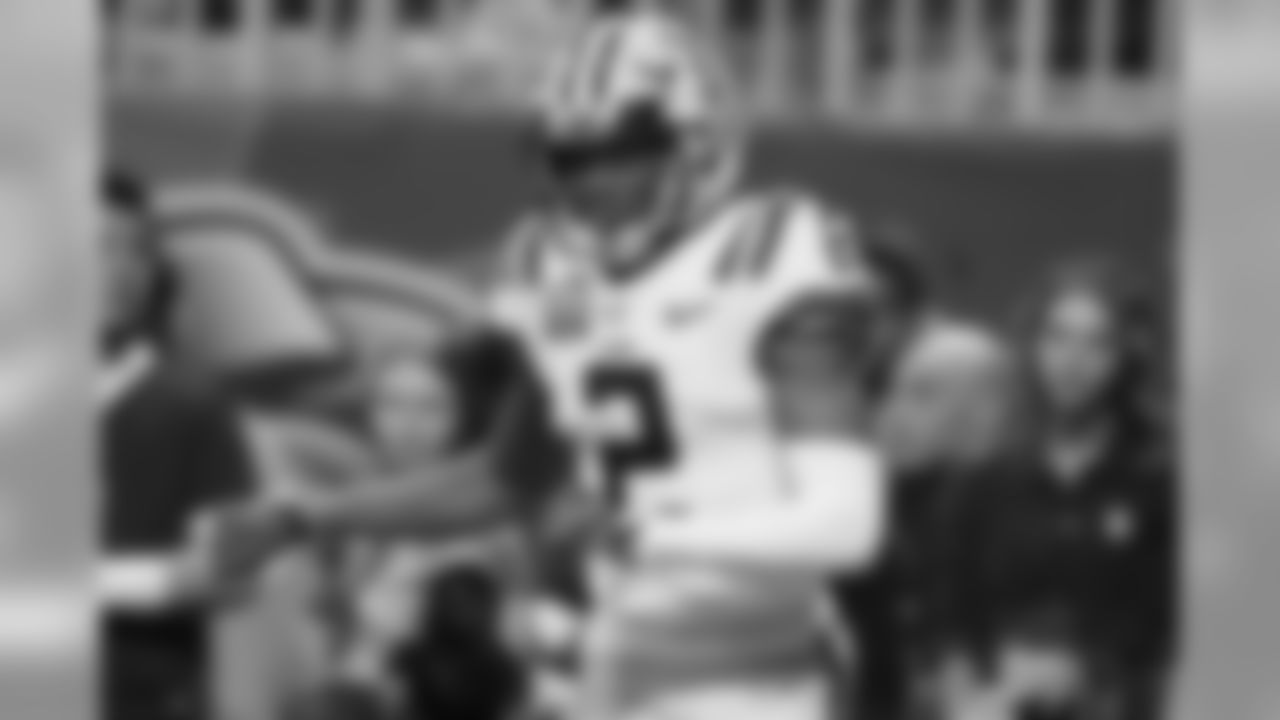
LSU wide receiver Justin Jefferson (2) celebrates his touchdown against Oklahoma during the first half of the Peach Bowl NCAA semifinal college football playoff game, Saturday, Dec. 28, 2019, in Atlanta. (AP Photo/John Bazemore)
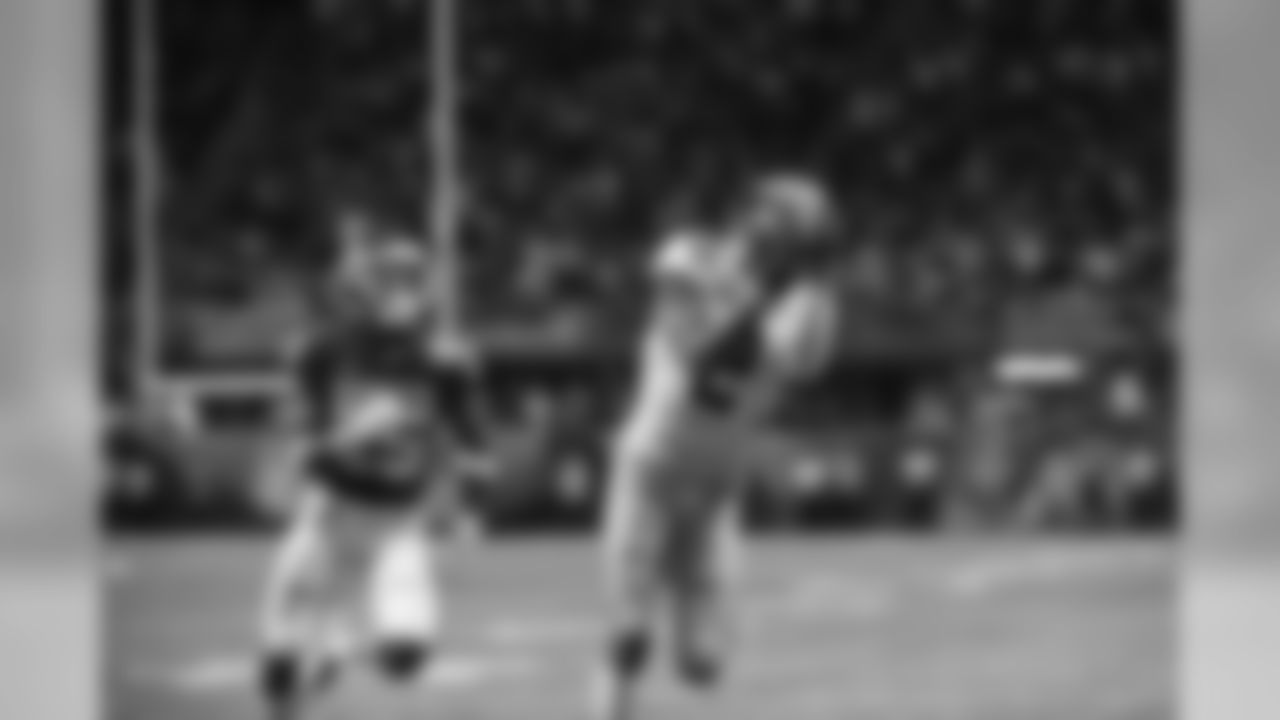
LSU wide receiver Justin Jefferson (2) makes a touchdown catch against Oklahoma safety Justin Broiles (25) during the first half of the Peach Bowl NCAA semifinal college football playoff game, Saturday, Dec. 28, 2019, in Atlanta. (AP Photo/Danny Karnik)

LSU wide receiver Justin Jefferson (2) makes the catch against Oklahoma during the first half of the Peach Bowl NCAA semifinal college football playoff game, Saturday, Dec. 28, 2019, in Atlanta. (AP Photo/Danny Karnik)

Toronto Raptors forward Rondae Hollis-Jefferson (4) gets a shot off as he's defended by Indiana Pacers forward Domantas Sabonis (11), left, and forward Justin Holiday (8) during an NBA basketball game, Monday, Dec. 23, 2019, in Indianapolis. (AP Photo/Doug McSchooler)
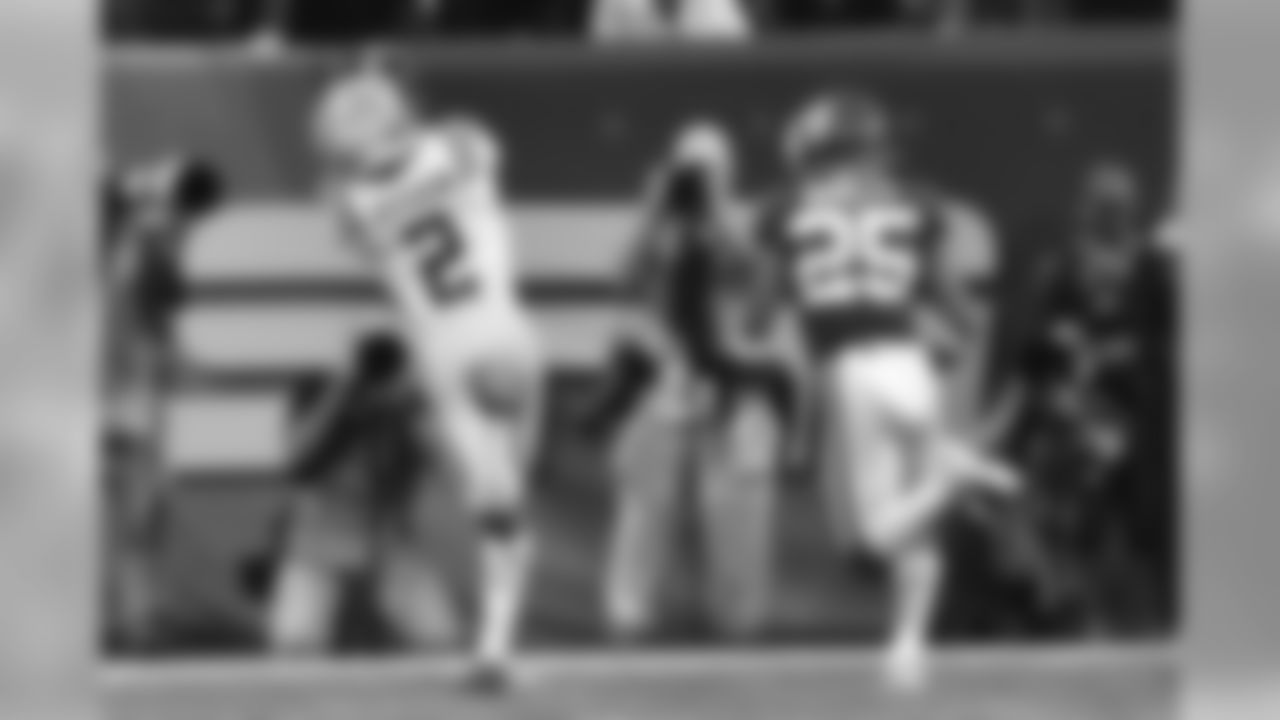
LSU wide receiver Justin Jefferson (2) prepares for a touchdown catch against Oklahoma safety Justin Broiles (25) during the first half of the Peach Bowl NCAA semifinal college football playoff game, Saturday, Dec. 28, 2019, in Atlanta. (AP Photo/John Amis)

LSU wide receiver Justin Jefferson (2) stretches for a touchdpwn against Oklahoma safety Pat Fields (10) during the first half of the Peach Bowl NCAA semifinal college football playoff game, Saturday, Dec. 28, 2019, in Atlanta. (AP Photo/John Bazemore)
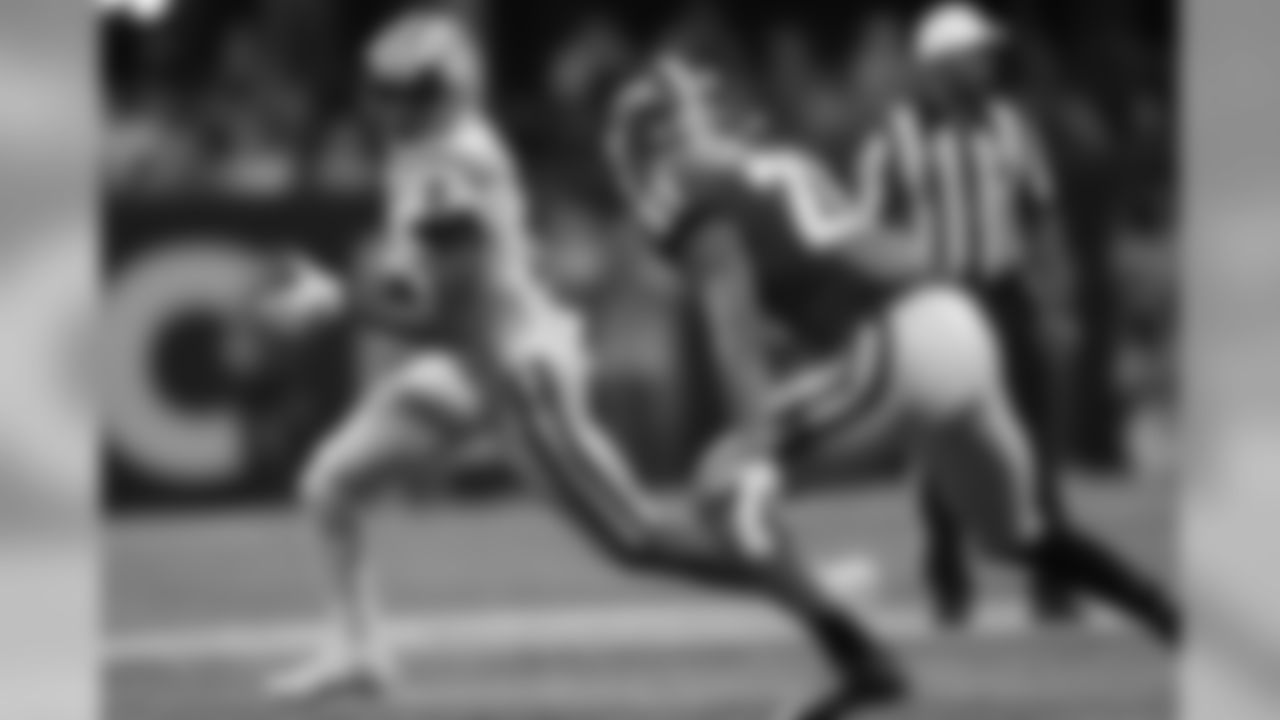
LSU wide receiver Justin Jefferson (2) runs against Georgia during the second half of the Southeastern Conference championship NCAA college football game, Saturday, Dec. 7, 2019, in Atlanta. (AP Photo/John Bazemore)

LSU wide receiver Justin Jefferson (2) stretches for a touchdpwn against Oklahoma safety Pat Fields (10) during the first half of the Peach Bowl NCAA semifinal college football playoff game, Saturday, Dec. 28, 2019, in Atlanta. (AP Photo/Danny Karnik)

LSU wide receiver Justin Jefferson (2) makes a touchdown catch against Oklahoma safety Justin Broiles (25) during the first half of the Peach Bowl NCAA semifinal college football playoff game, Saturday, Dec. 28, 2019, in Atlanta. (AP Photo/Danny Karnik)

LSU wide receiver Justin Jefferson (2) prepares for a touchdown catch against Oklahoma safety Justin Broiles (25) during the first half of the Peach Bowl NCAA semifinal college football playoff game, Saturday, Dec. 28, 2019, in Atlanta. (AP Photo/Danny Karnik)

LSU wide receiver Justin Jefferson (2) stretches for a touchdpwn against Oklahoma safety Pat Fields (10) during the first half of the Peach Bowl NCAA semifinal college football playoff game, Saturday, Dec. 28, 2019, in Atlanta. (AP Photo/John Bazemore)

LSU wide receiver Justin Jefferson (2) runs against Georgia during the first half of the Southeastern Conference championship NCAA college football game, Saturday, Dec. 7, 2019, in Atlanta. (AP Photo/John Bazemore)

LSU Tigers wide receiver Ja'Marr Chase (1) celebrates a touchdown against Arkansas with LSU wide receiver Justin Jefferson (2) in the first half of an NCAA college football game in Baton Rouge, La., Saturday, Nov. 23, 2019. (AP Photo/Matthew Hinton)
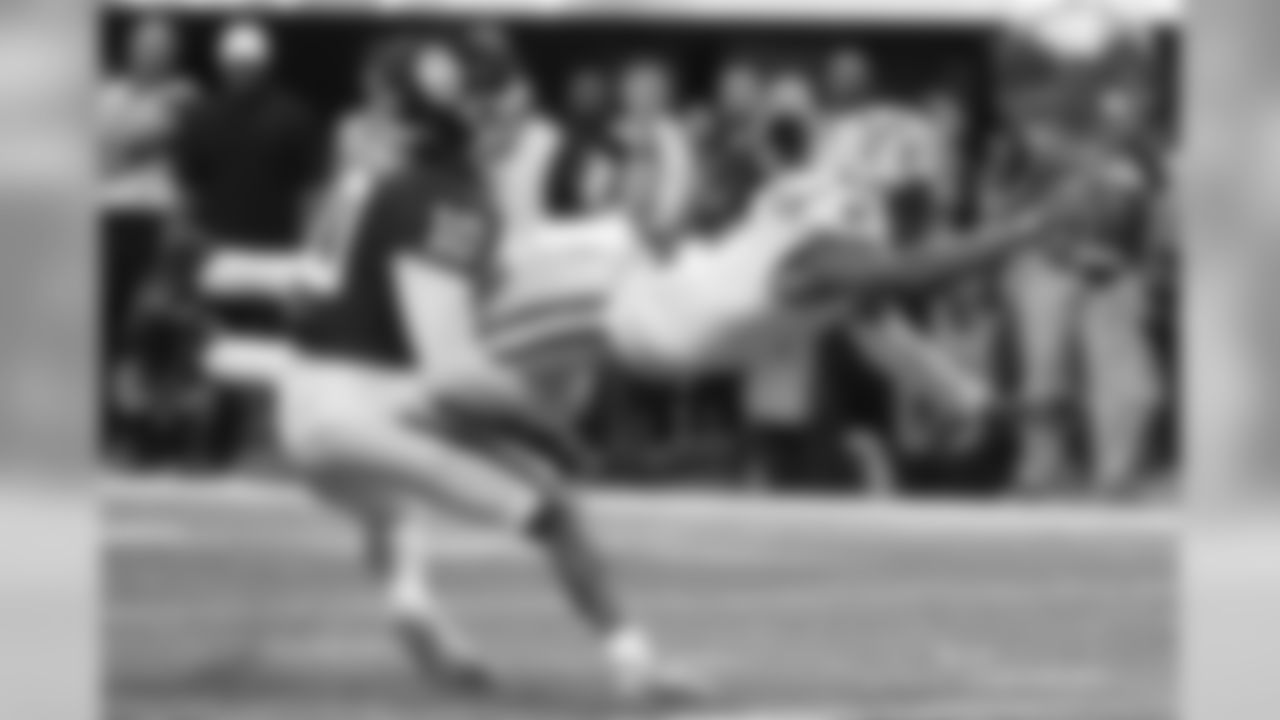
LSU wide receiver Justin Jefferson (2) stretches for a touchdpwn against Oklahoma safety Pat Fields (10) during the first half of the Peach Bowl NCAA semifinal college football playoff game, Saturday, Dec. 28, 2019, in Atlanta. (AP Photo/John Bazemore)
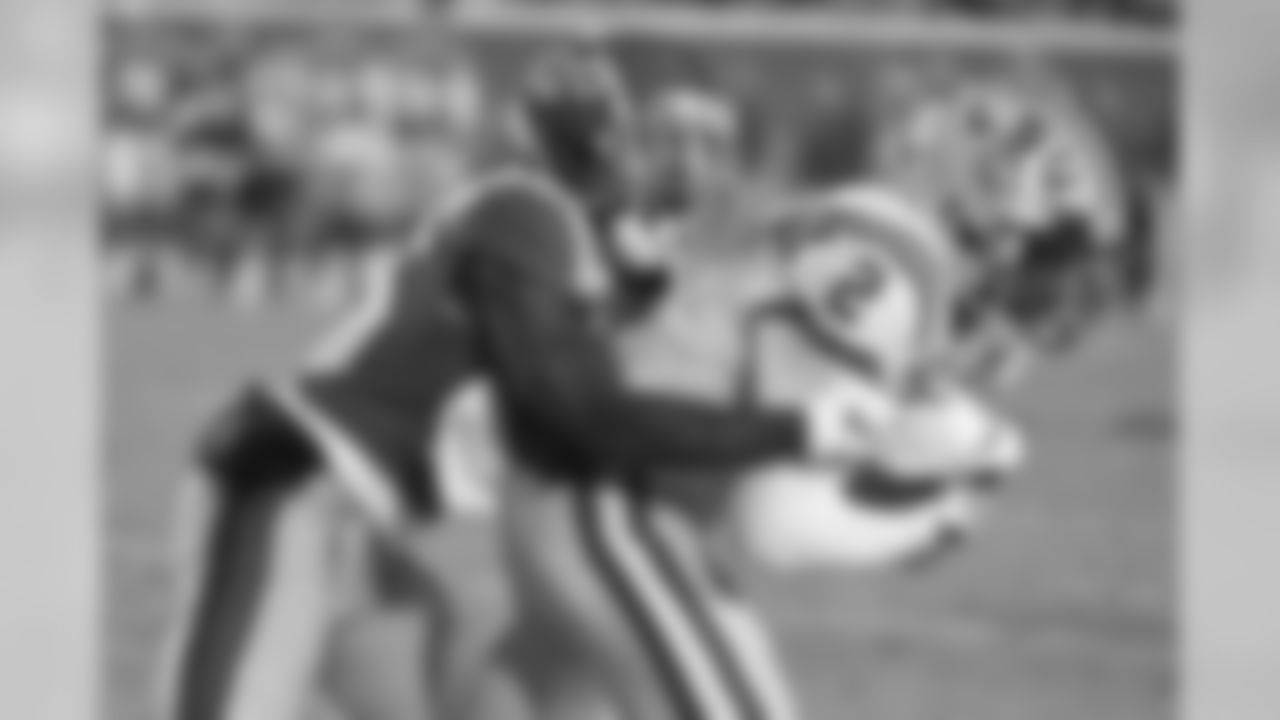
Mississippi defensive back Jalen Julius (26) tackles LSU wide receiver Justin Jefferson (2) during the first half of an NCAA college football game in Oxford, Miss., Saturday, Nov. 16, 2019. (AP Photo/Thomas Graning)
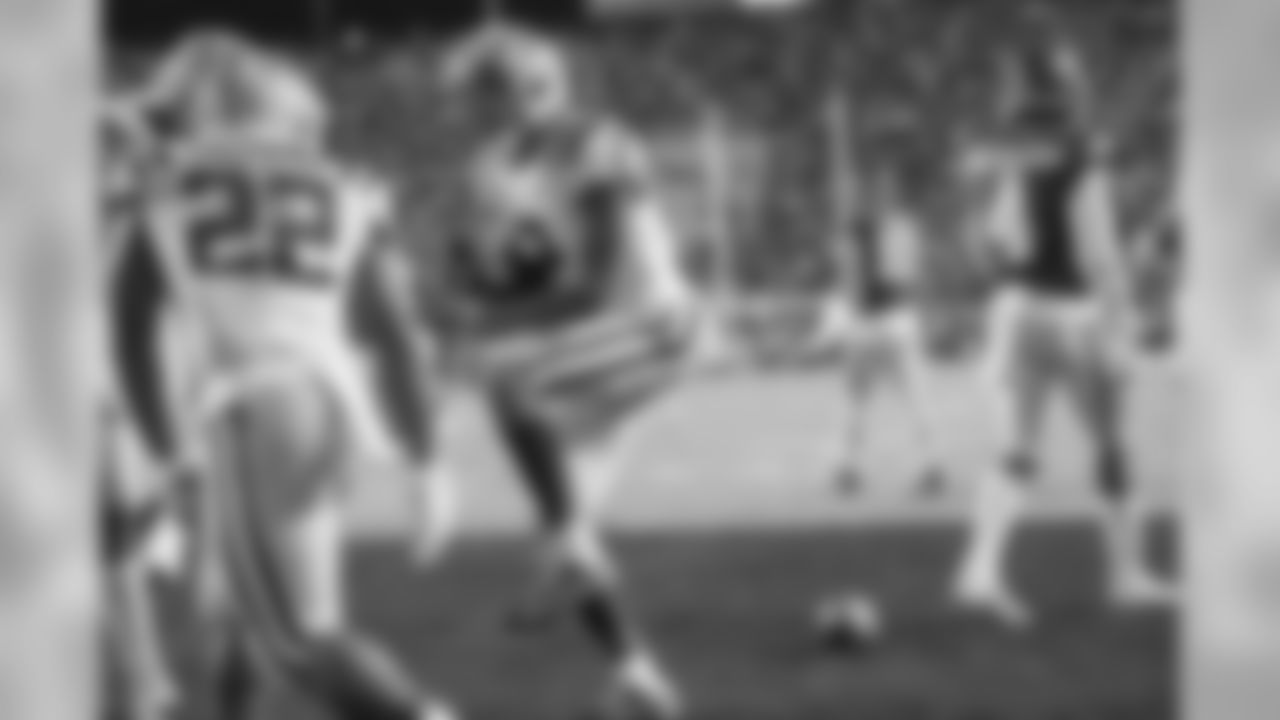
LSU wide receiver Justin Jefferson (2) celebrates a touchdown against Arkansas during the first half of an NCAA college football game in Baton Rouge, La., Saturday, Nov. 23, 2019. (AP Photo/Matthew Hinton)

LSU wide receiver Ja'Marr Chase (1) celebrates his touchdown reception with offensive tackle Saahdiq Charles (77) and wide receiver Justin Jefferson (2) in the first half of an NCAA college football game against Texas A&M in Baton Rouge, La., Saturday, Nov. 30, 2019. (AP Photo/Gerald Herbert)
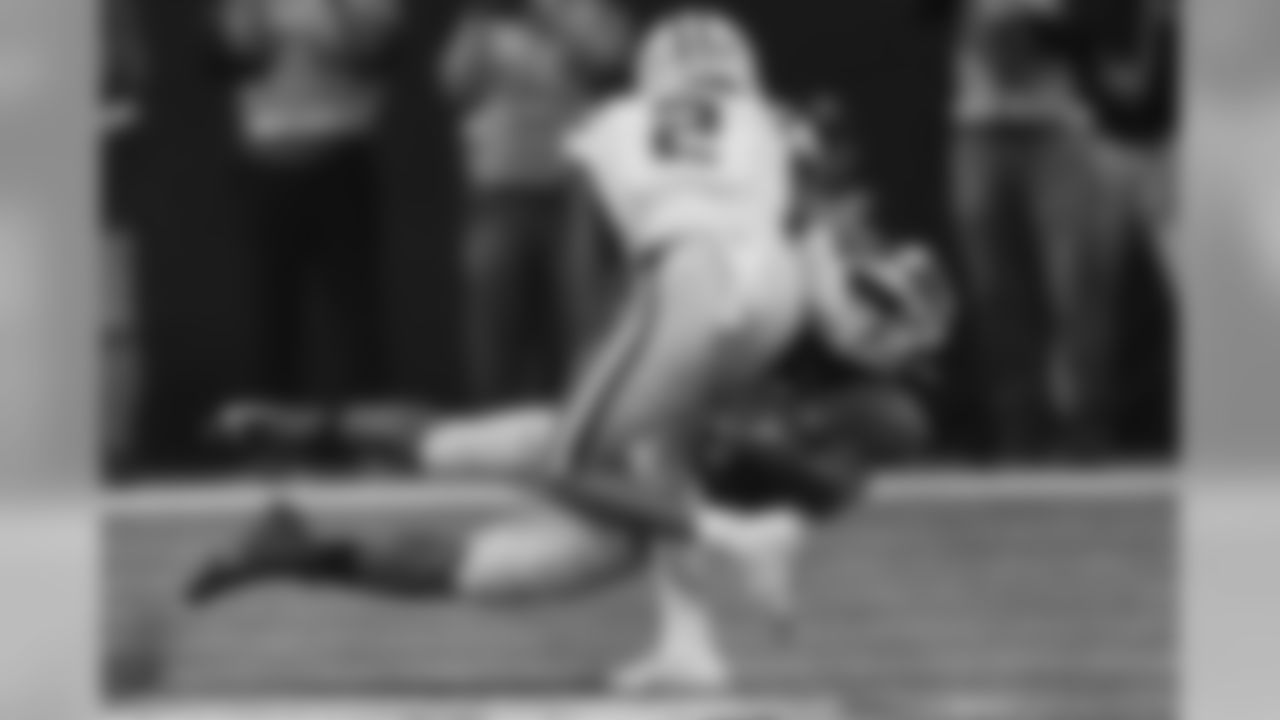
Georgia defensive back Divaad Wilson (1) tackles LSU wide receiver Justin Jefferson (2) during the second half of the Southeastern Conference championship NCAA college football game, Saturday, Dec. 7, 2019, in Atlanta. (AP Photo/Mike Stewart)
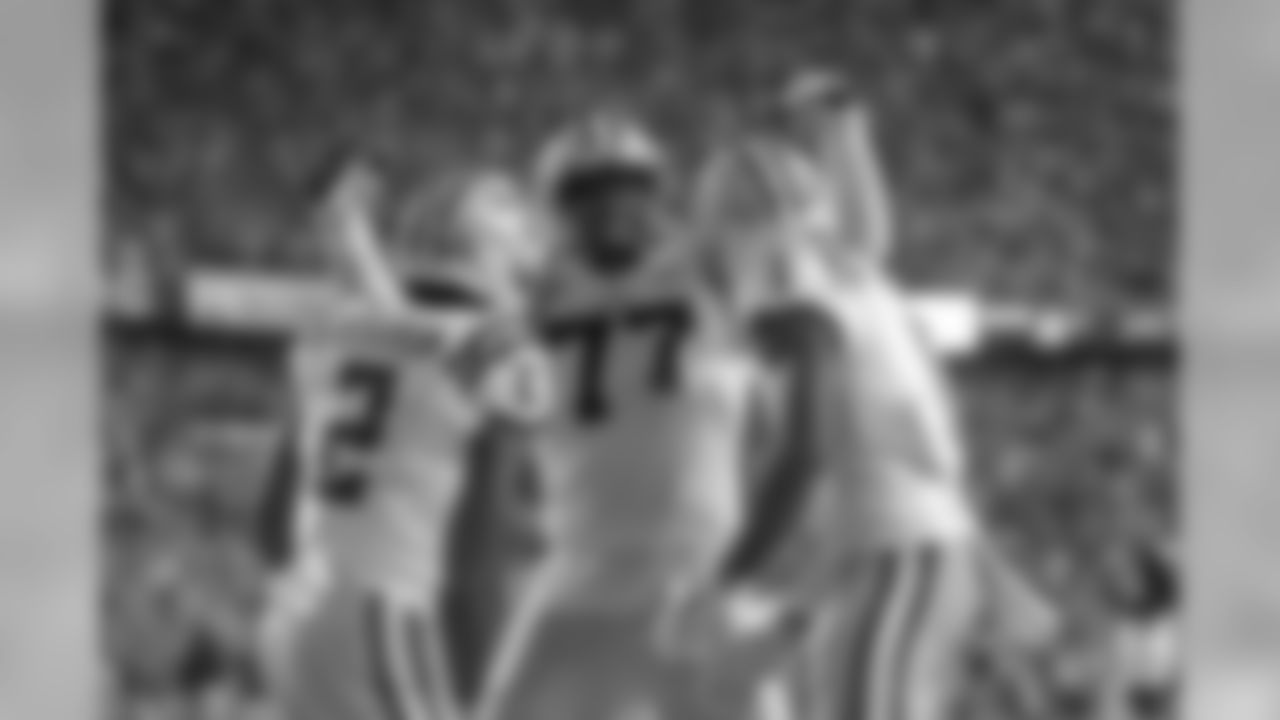
LSU wide receiver Ja'Marr Chase (1) celebrates his touchdown reception with offensive tackle Saahdiq Charles (77) and wide receiver Justin Jefferson (2) in the first half of the team's NCAA college football game against Texas A&M in Baton Rouge, La., Saturday, Nov. 30, 2019. (AP Photo/Gerald Herbert)
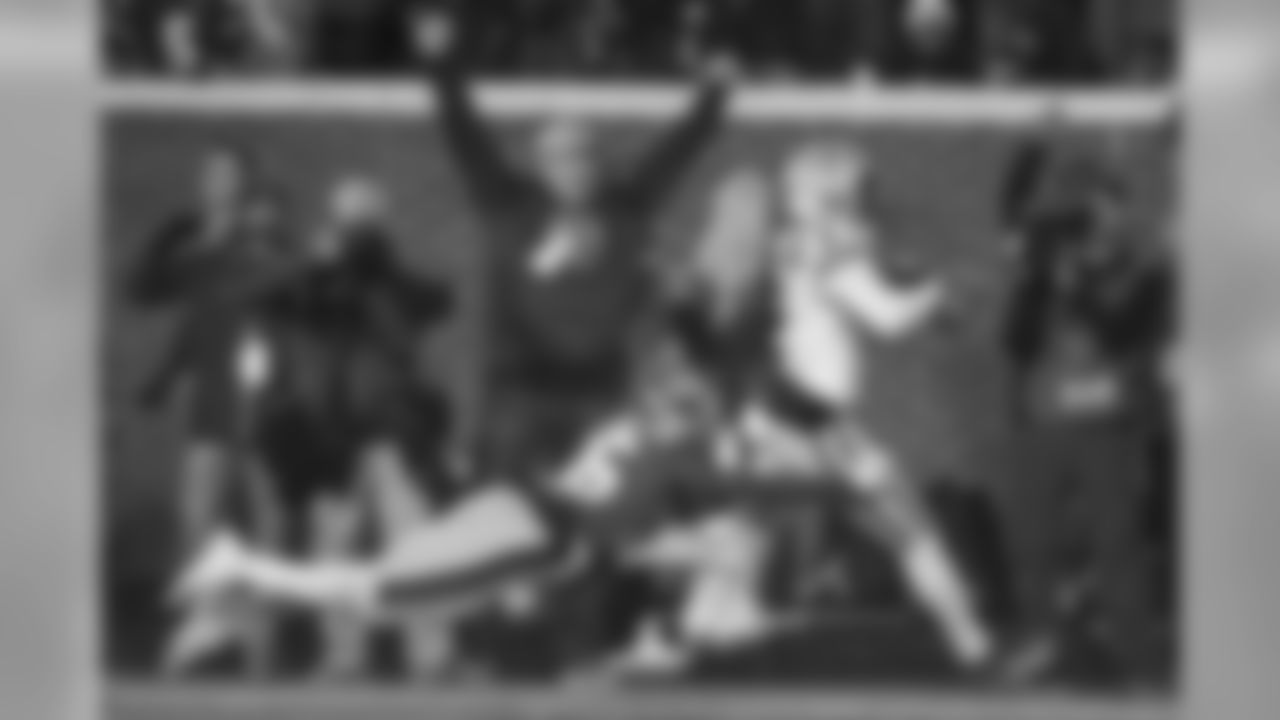
Mississippi defensive back Jalen Julius (26) tackles LSU wide receiver Justin Jefferson (2) during the second half of an NCAA college football game in Oxford, Miss., Saturday, Nov. 16, 2019. LSU won 58-37. (AP Photo/Thomas Graning)
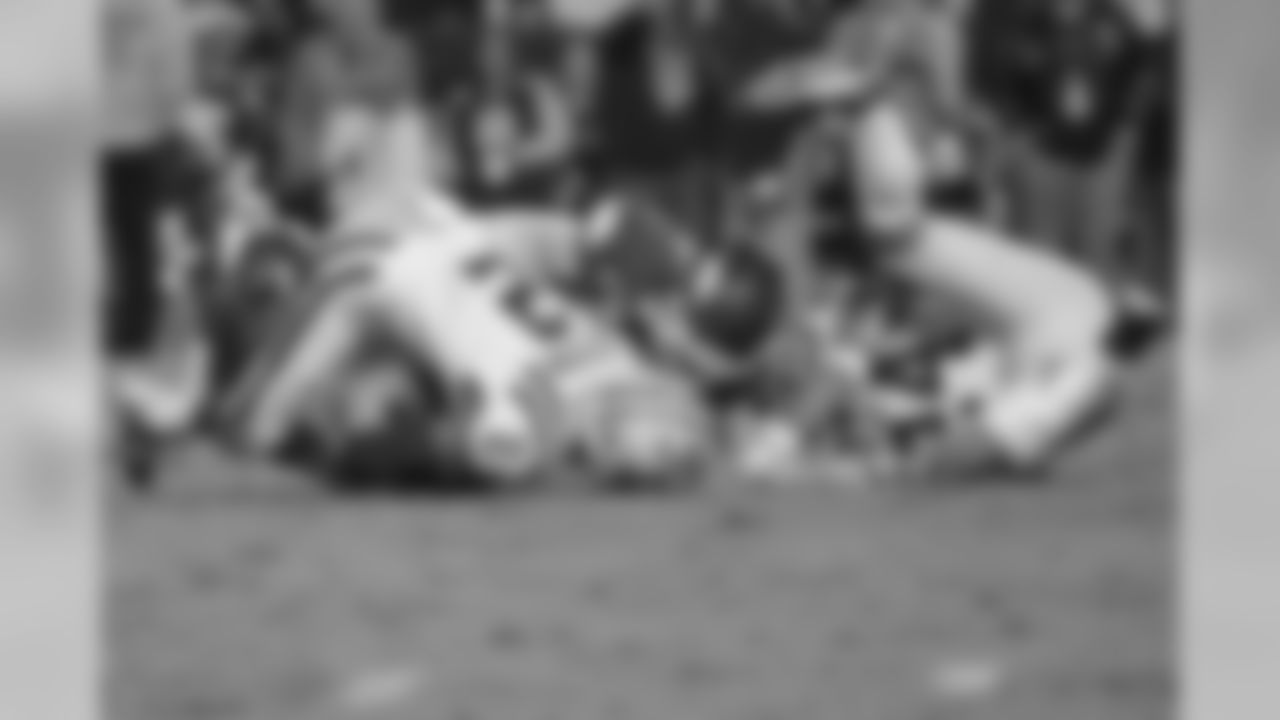
Arkansas recovers an onside kick against as the ball slips past LSU wide receiver Justin Jefferson (2) in an NCAA college football game in Baton Rouge, La., Saturday, Nov. 23, 2019. (AP Photo/Matthew Hinton)
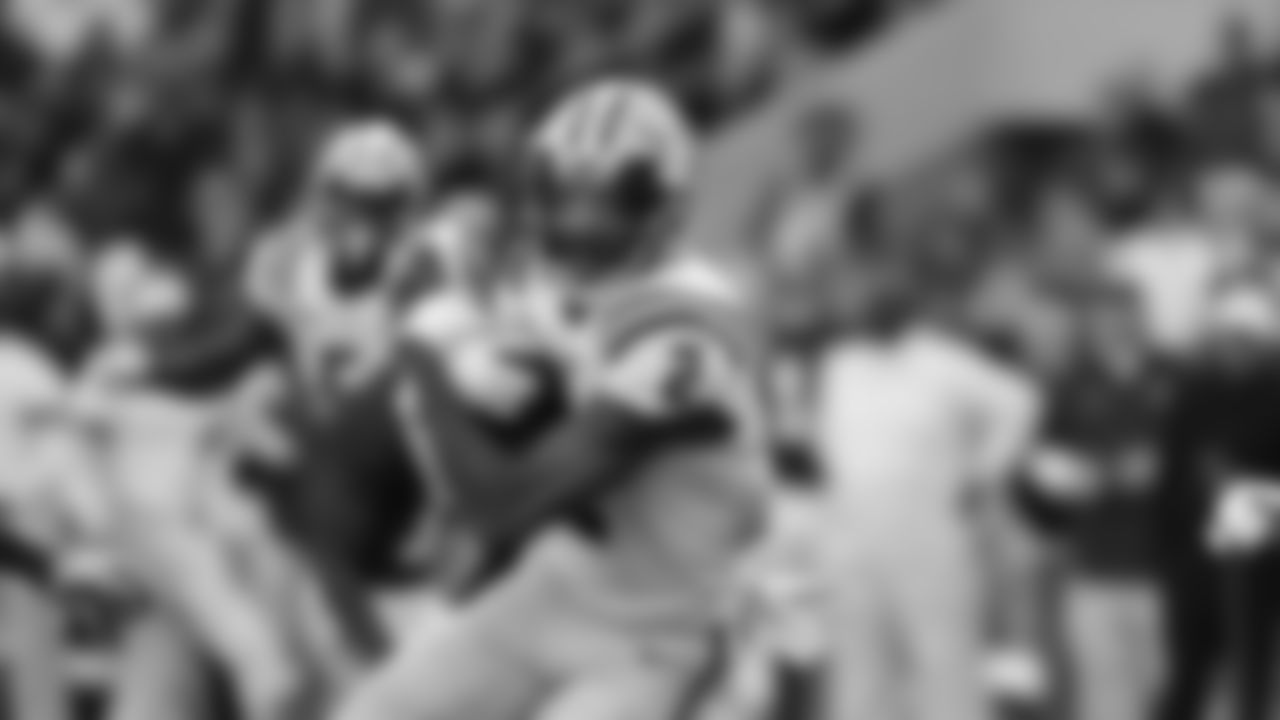
LSU wide receiver Justin Jefferson (2) is shown in action in the first half of an NCAA football game against Alabama Saturday, Nov. 9, 2019, in Tuscaloosa, Ala. (AP Photo/Vasha Hunt)
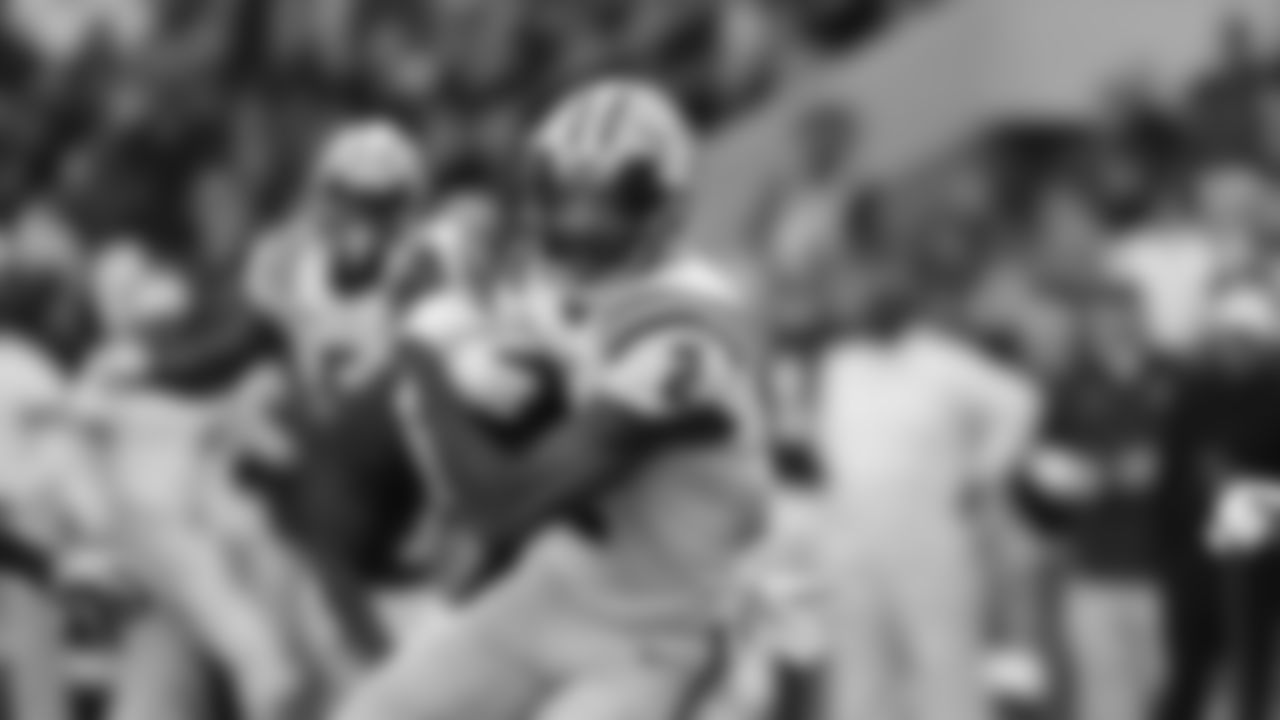
LSU wide receiver Justin Jefferson (2) is shown in action in the first half of an NCAA football game against Alabama Saturday, Nov. 9, 2019, in Tuscaloosa, Ala. (AP Photo/Vasha Hunt)

LSU wide receiver Justin Jefferson (2) scores a touchdown against Arkansas during the first half of an NCAA college football game in Baton Rouge, La., Saturday, Nov. 23, 2019. (AP Photo/Matthew Hinton)
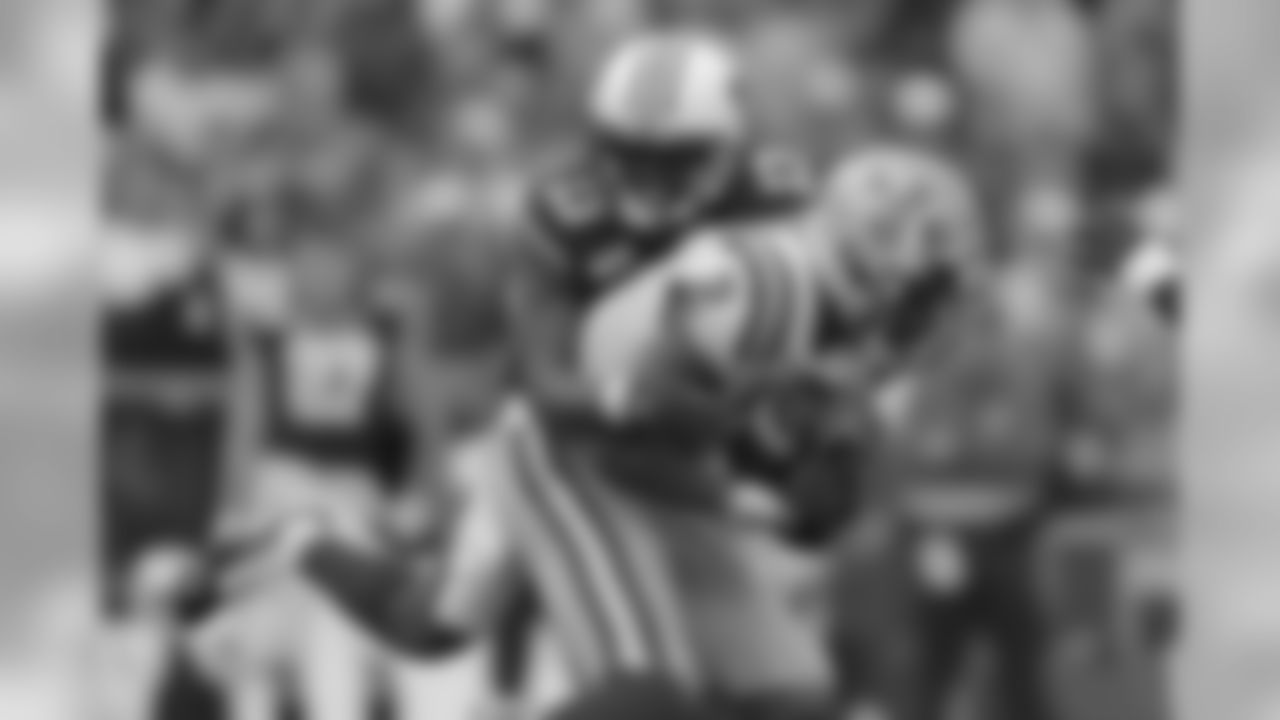
Auburn defensive back Javaris Davis (13) tackles LSU wide receiver Justin Jefferson (2) in the first half of an NCAA college football game in Baton Rouge, La., Saturday, Oct. 26, 2019. (AP Photo/Gerald Herbert)

LSU wide receiver Justin Jefferson is shown in action in the first half of an NCAA football game against Alabama Saturday, Nov. 9, 2019, in Tuscaloosa, Ala. (AP Photo/Vasha Hunt)

LSU wide receiver Justin Jefferson (2) runs towards the sidelines after a short pass reception against Mississippi State during the first half of their NCAA college football game in Starkville, Miss., Saturday, Oct. 19, 2019. LSU won 36-13. (AP Photo/Rogelio V. Solis)

LSU wide receiver Justin Jefferson (2) clinches the game for the Tigers, recovering Alabama's onside-kick attempt in the final minute of the second half of an NCAA football game Saturday, Nov. 9, 2019, in Tuscaloosa, Ala. LSU won 46-41. (AP Photo/Vasha Hunt)

LSU wide receiver Justin Jefferson (2) pulls in a long pass reception over Florida defensive back Shawn Davis (31) in the first half of an NCAA college football game in Baton Rouge, La., Saturday, Oct. 12, 2019. (AP Photo/Bill Feig)

LSU wide receiver Justin Jefferson (2) signals to the fans against Alabama in the first half of an NCAA football game Saturday, Nov. 9, 2019, in Tuscaloosa, Ala. (AP Photo/Vasha Hunt)

LSU wide receiver Justin Jefferson (2) is tackled by Alabama defensive back Xavier McKinney (15) in the first half of an NCAA college football game, Saturday, Nov. 9, 2019, in Tuscaloosa, Ala. (AP Photo/John Bazemore)
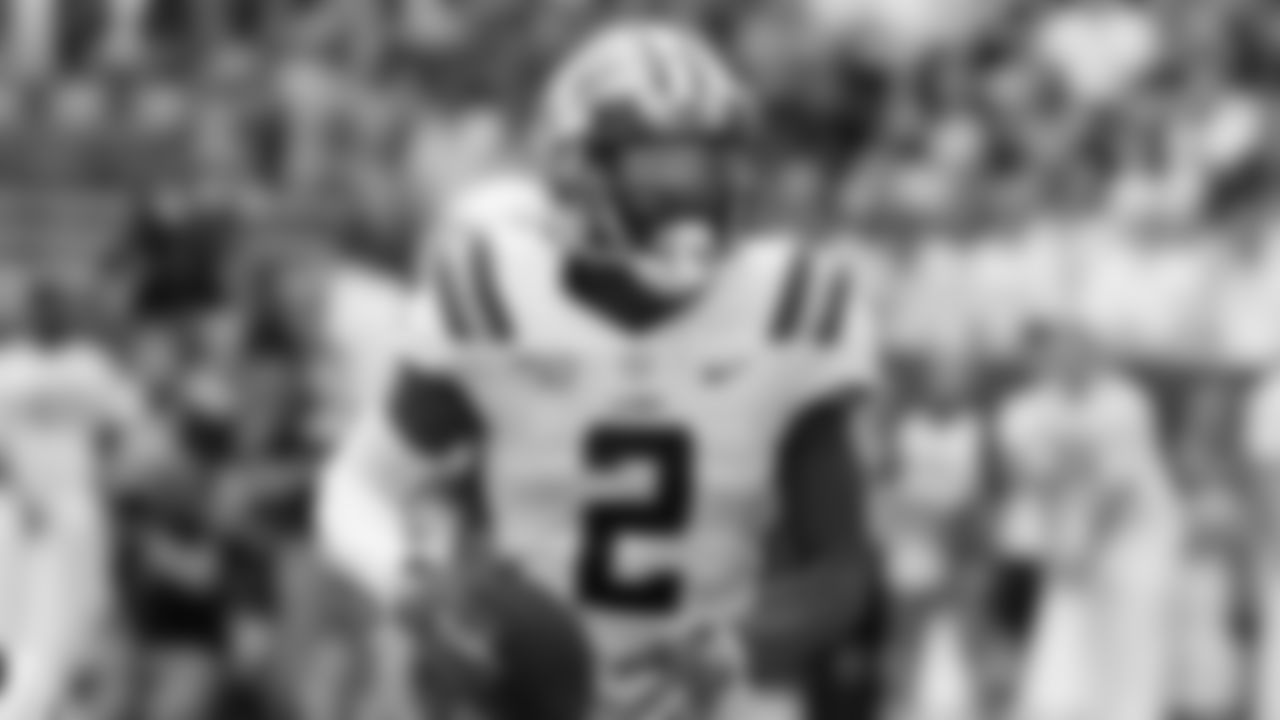
LSU wide receiver Justin Jefferson (2) runs towards the sidelines after a short pass reception against Mississippi State during the first half of their NCAA college football game in Starkville, Miss., Saturday, Oct. 19, 2019. LSU won 36-13. (AP Photo/Rogelio V. Solis)
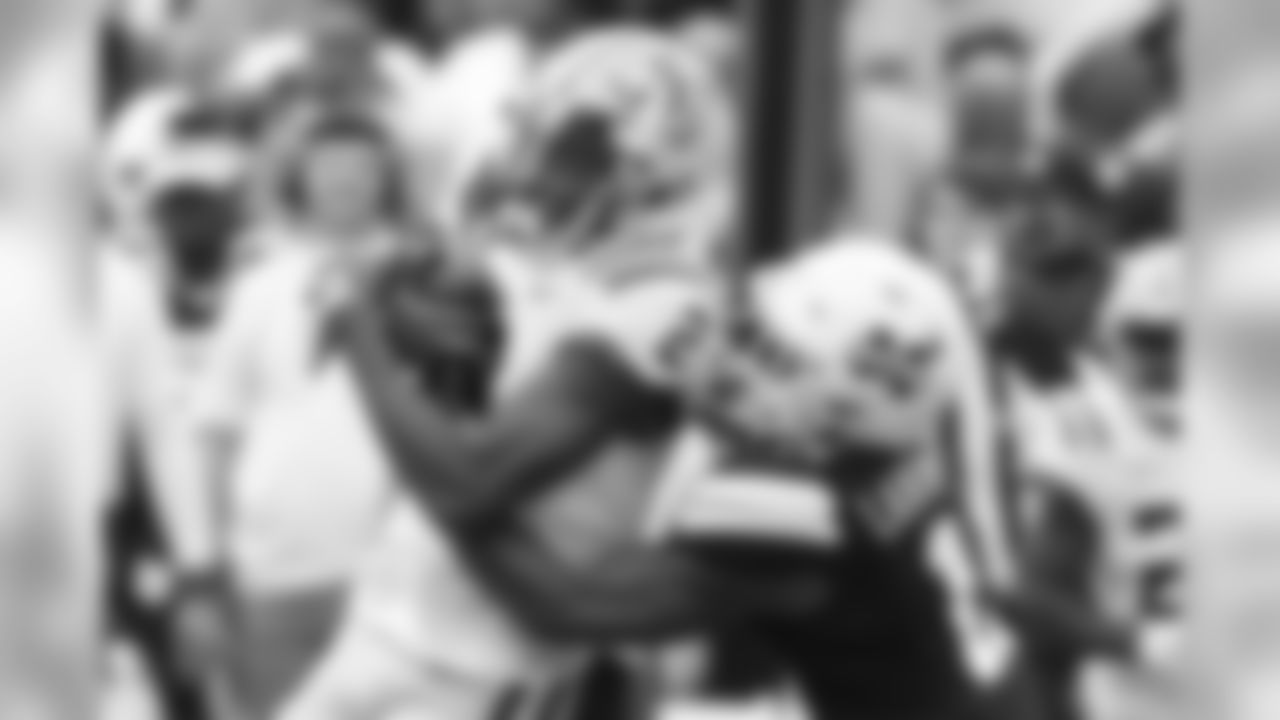
LSU wide receiver Justin Jefferson (2) cradles a pass as he is tackled by Mississippi State safety Jaquarius Landrews (11) during the first half of their NCAA college football game against Mississippi State in Starkville, Miss., Saturday, Oct. 19, 2019. LSU won 36-13. (AP Photo/Rogelio V. Solis)
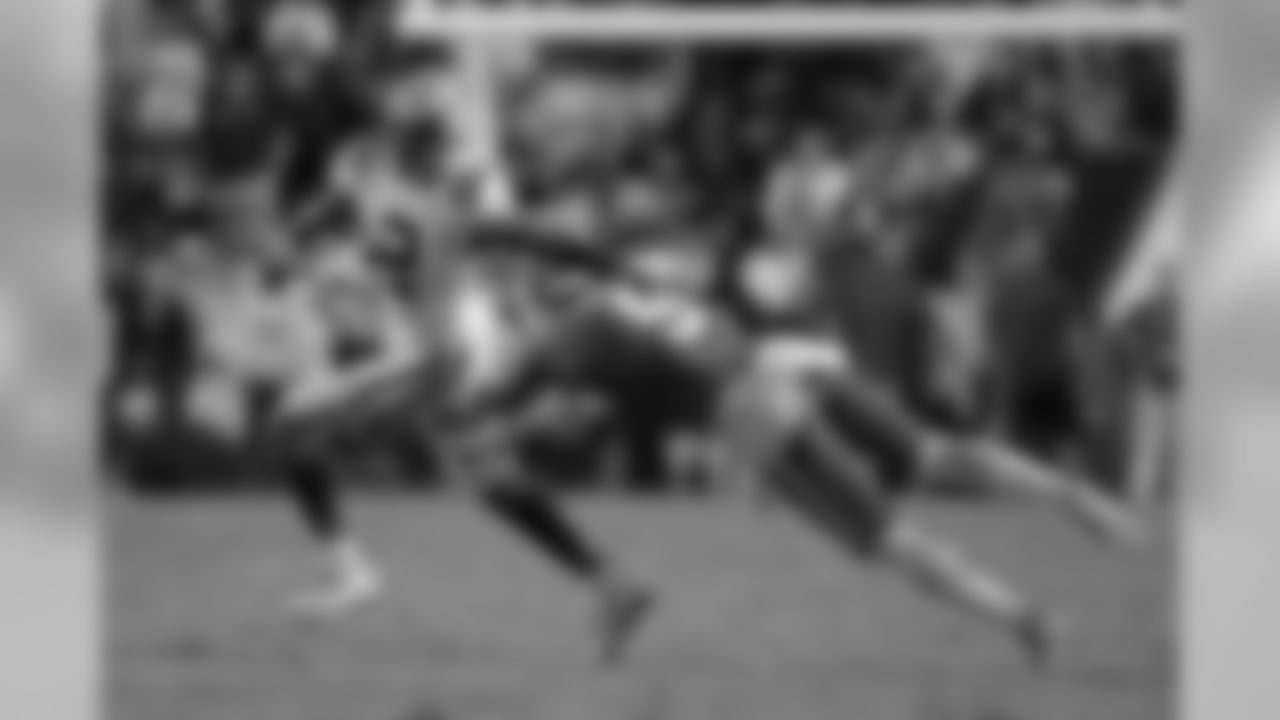
LSU wide receiver Justin Jefferson (2) carries against Florida defensive back Kaiir Elam (5) during the second half of an NCAA college football game in Baton Rouge, La., Saturday, Oct. 12, 2019. LSU won 42-28. (AP Photo/Gerald Herbert)
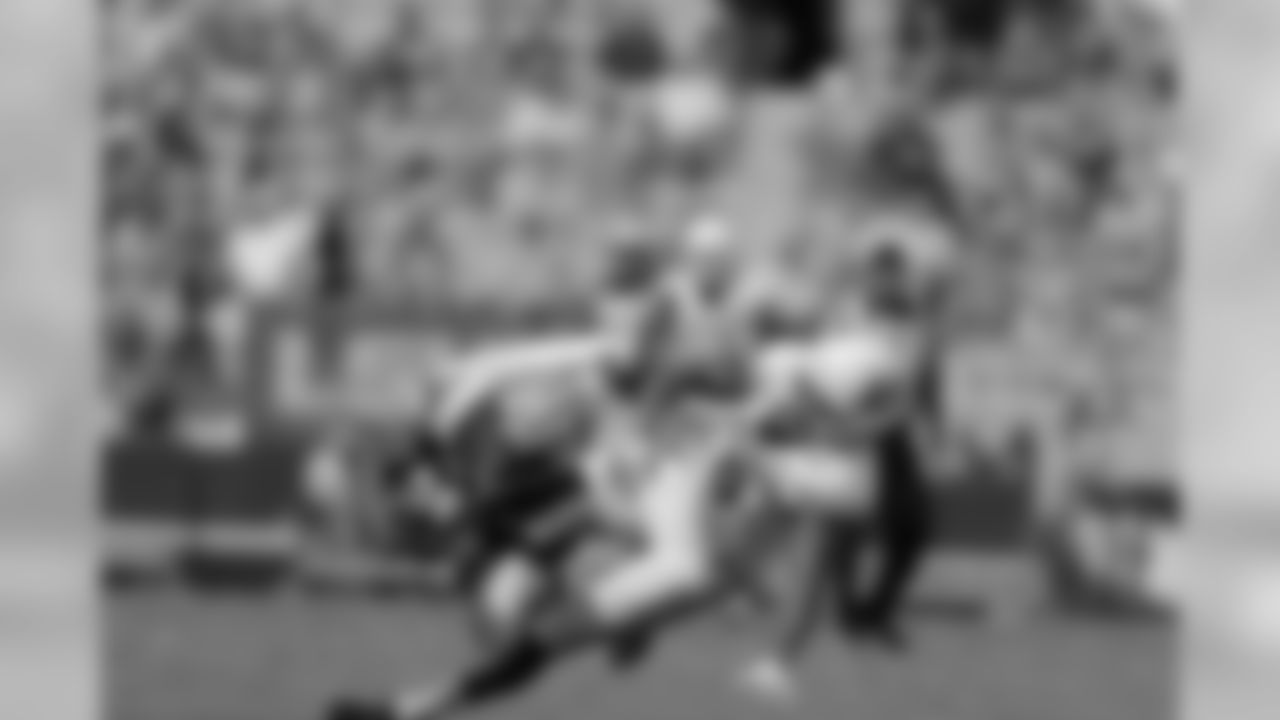
LSU wide receiver Justin Jefferson (2) pulls in a pass against Utah State cornerback Cameron Haney in the first half of an NCAA college football game in Baton Rouge, La., Saturday, Oct. 5, 2019. (AP Photo/Gerald Herbert)

LSU wide receiver Justin Jefferson (2) cradles a pass during the first half of their NCAA college football game against Mississippi State in Starkville, Miss., Saturday, Oct. 19, 2019. LSU won 36-13. (AP Photo/Rogelio V. Solis)
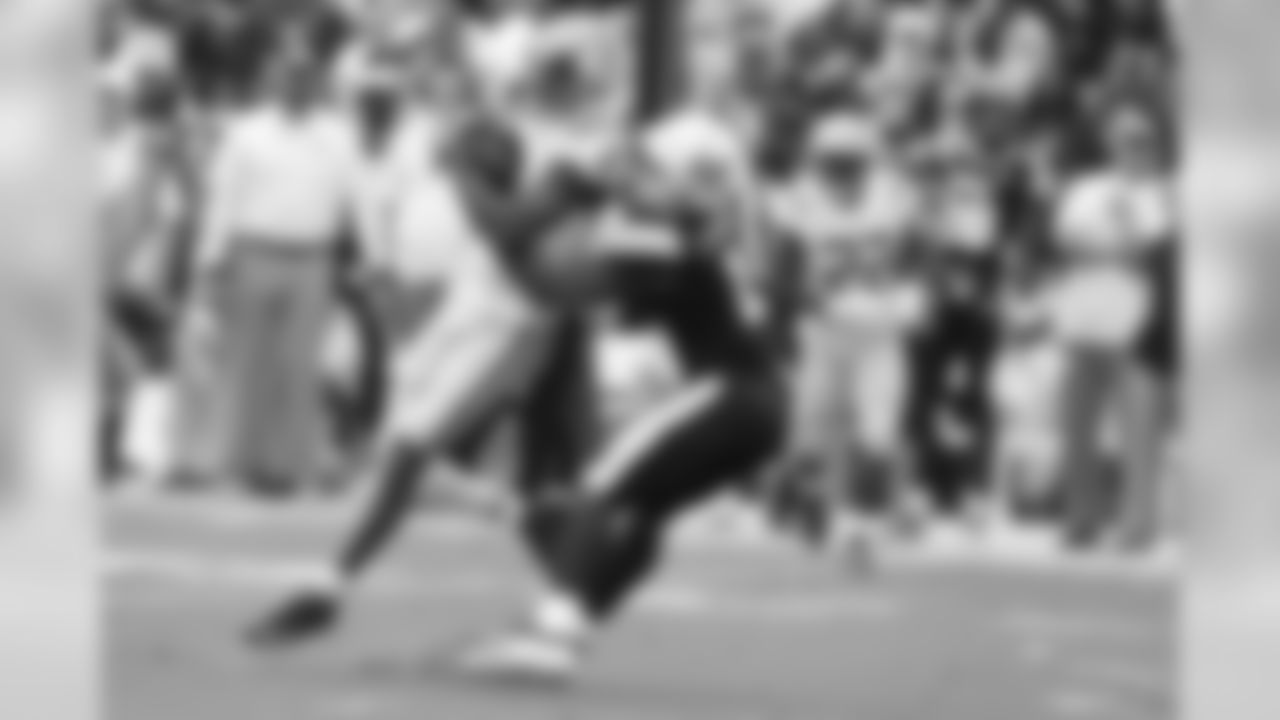
LSU wide receiver Justin Jefferson (2) cradles a pass as he is tackled by Mississippi State safety Jaquarius Landrews (11) during the first half of their NCAA college football game against Mississippi State in Starkville, Miss., Saturday, Oct. 19, 2019. LSU won 36-13. (AP Photo/Rogelio V. Solis)
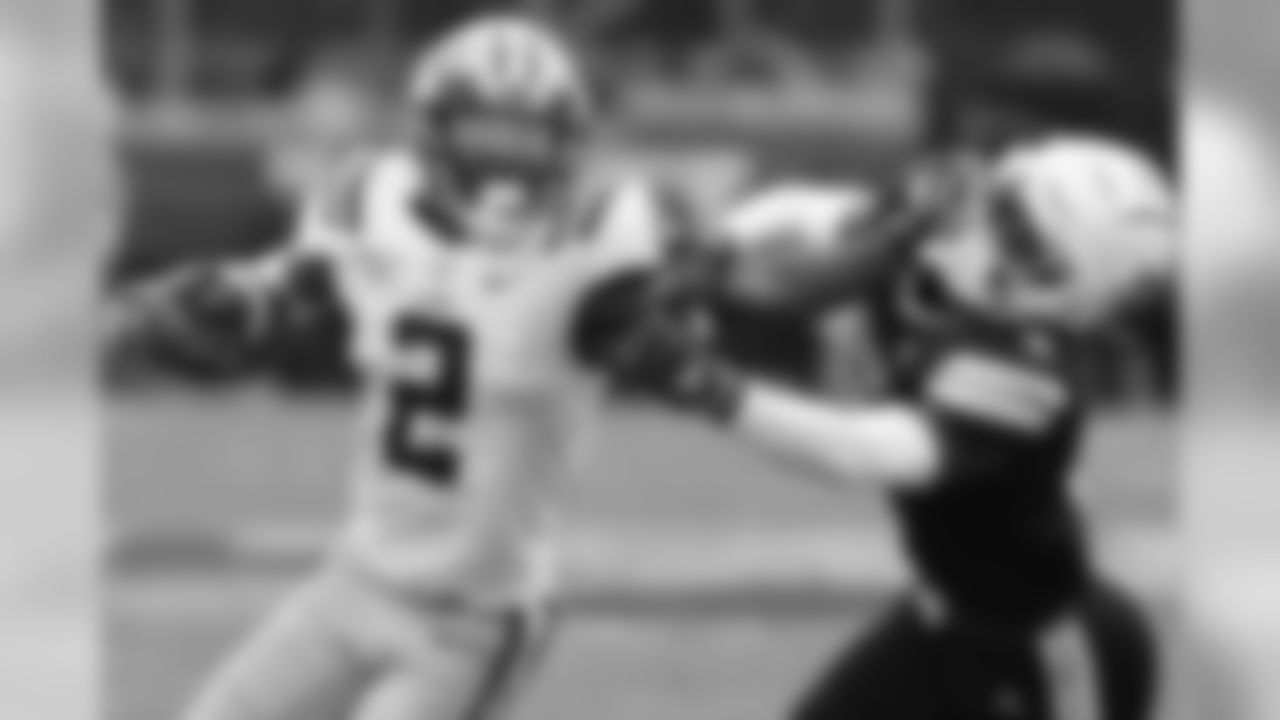
LSU wide receiver Justin Jefferson, left, fights off a tackle by Mississippi State cornerback Jarrian Jones on a short pass reception during the second half of an NCAA college football game in Starkville, Miss., Saturday, Oct. 19, 2019. LSU won 36-13. (AP Photo/Rogelio V. Solis)

LSU coach Ed Orgeron sings the alma mater with wide receiver Justin Jefferson (2); Orgeron's wife, Kelly; and other team members after LSU's win over Florida in an NCAA college football game in Baton Rouge, La., Saturday, Oct. 12, 2019. LSU won 42-28. (AP Photo/Gerald Herbert)

LSU wide receiver Justin Jefferson (2) stares down Mississippi State safety Shawn Preston Jr. (12) as he scores on a 12-yard touchdown reception during the second half of their NCAA college football game in Starkville, Miss., Saturday, Oct. 19, 2019. LSU won 36-13. (AP Photo/Rogelio V. Solis)
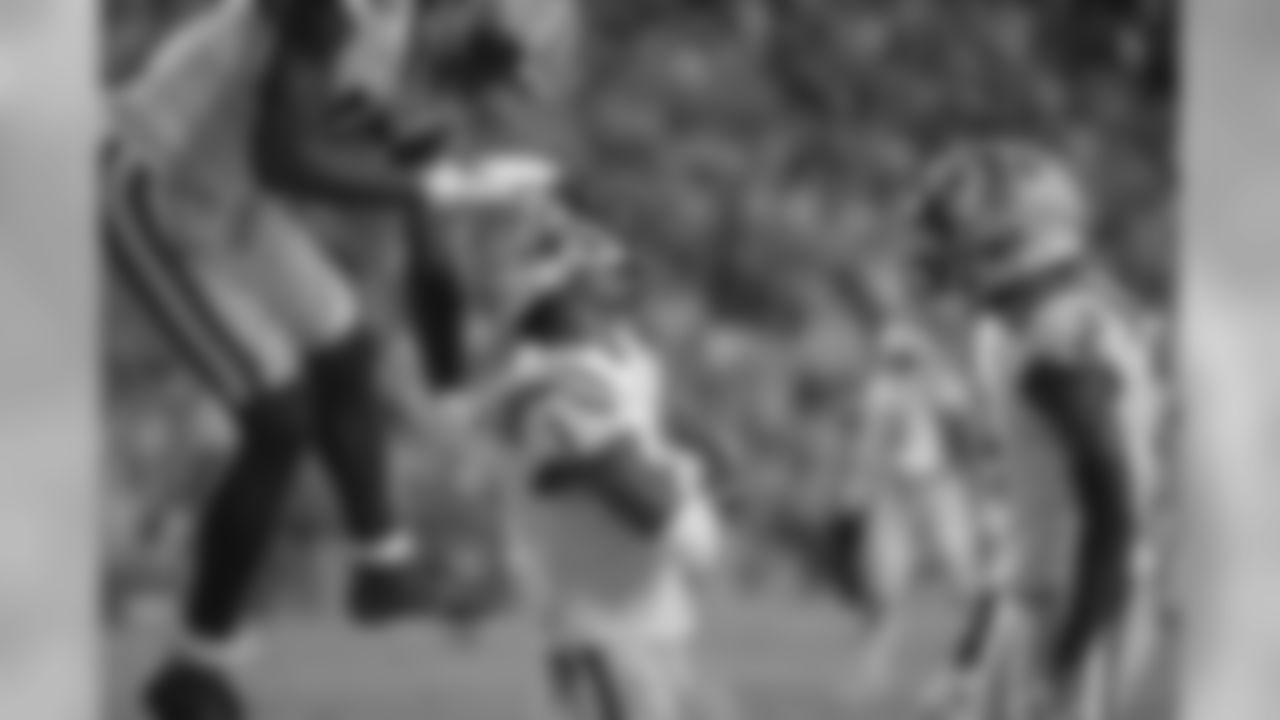
LSU wide receiver Ja'Marr Chase (1) celebrates his touchdown reception with wide receiver Josh Hammond (10) and wide receiver Justin Jefferson (2) in the second half of an NCAA college football game against Florida in Baton Rouge, La., Saturday, Oct. 12, 2019. LSU won 42-28. (AP Photo/Gerald Herbert)
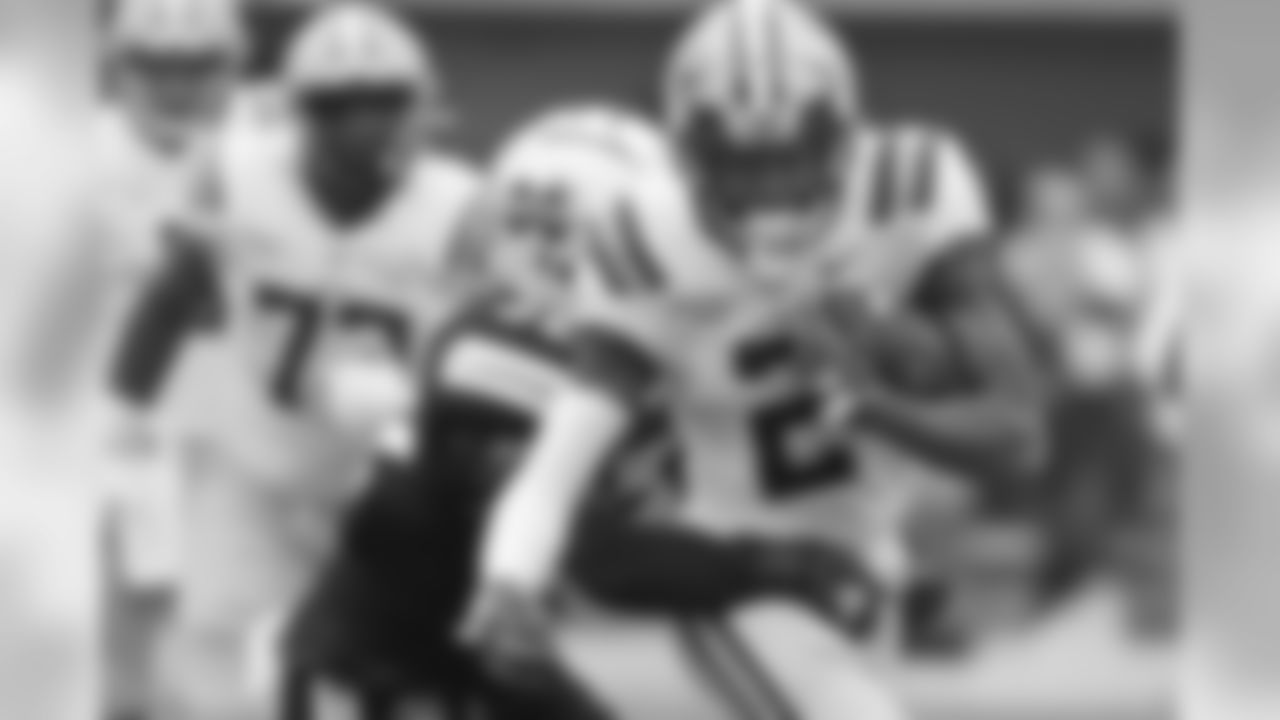
LSU wide receiver Justin Jefferson (2) tries to fight off a tackle by Mississippi State safety Brian Cole II (32) after a pass reception during the first half of their NCAA college football game in Starkville, Miss., Saturday, Oct. 19, 2019. (AP Photo/Rogelio V. Solis)

LSU wide receiver Justin Jefferson (2) runs a route in the first half of an NCAA college football game against Utah State in Baton Rouge, La., Saturday, Oct. 5, 2019. LSU won 42-6. (AP Photo/Gerald Herbert)

LSU wide receiver Justin Jefferson (2) catches a pass over Florida defensive back Shawn Davis (31) in the first half of an NCAA college football game in Baton Rouge, La., Saturday, Oct. 12, 2019. (AP Photo/Gerald Herbert)
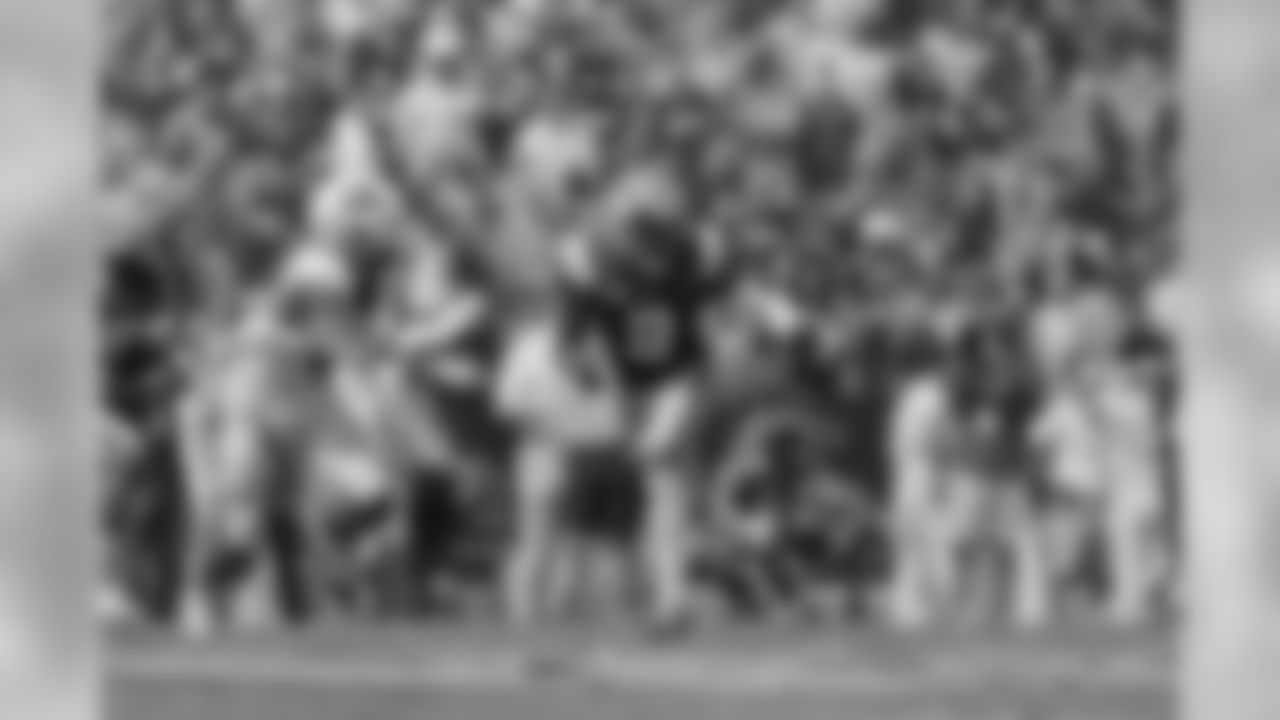
LSU wide receiver Justin Jefferson (2) runs a route in the first half of an NCAA college football game against Utah State in Baton Rouge, La., Saturday, Oct. 5, 2019. (AP Photo/Gerald Herbert)

LSU wide receiver Justin Jefferson (2) reacts after catching a pass in the first half of an NCAA college football game against Utah State in Baton Rouge, La., Saturday, Oct. 5, 2019. (AP Photo/Gerald Herbert)

LSU wide receiver Justin Jefferson (2) pulls in a pass against Utah State cornerback Cameron Haney in the first half of an NCAA college football game in Baton Rouge, La., Saturday, Oct. 5, 2019. (AP Photo/Gerald Herbert)

LSU wide receiver Justin Jefferson (2) celebrates his touchdown reception with running back Clyde Edwards-Helaire (22) as Utah State cornerback DJ Williams (7) walks to the sideline in the second half of an NCAA college football game in Baton Rouge, La., Saturday, Oct. 5, 2019. LSU won 42-6. (AP Photo/Gerald Herbert)

LSU wide receiver Justin Jefferson (2) pulls in a touchdown reception over Utah State cornerback DJ Williams (7) in the second half of an NCAA college football game in Baton Rouge, La., Saturday, Oct. 5, 2019. LSU won 42-6. (AP Photo/Gerald Herbert)

LSU wide receiver Justin Jefferson (2) runs a pass route in the first half of an NCAA college football game against Utah State in Baton Rouge, La., Saturday, Oct. 5, 2019. LSU won 42-6. (AP Photo/Gerald Herbert)

LSU wide receiver Justin Jefferson (2) pulls in a touchdown reception over Utah State cornerback DJ Williams (7) in the second half of an NCAA college football game in Baton Rouge, La., Saturday, Oct. 5, 2019. LSU won 42-6. (AP Photo/Gerald Herbert)

Utah State cornerback DJ Williams (7) walks to the sideline as LSU wide receiver Justin Jefferson (2) and running back Clyde Edwards-Helaire (22) celebrate Jefferson's touchdown reception in the second half of an NCAA college football game in Baton Rouge, La., Saturday, Oct. 5, 2019. LSU won 42-6. (AP Photo/Gerald Herbert)

LSU wide receiver Justin Jefferson (2) pulls in a touchdown reception over Utah State cornerback DJ Williams (7) in the second half of an NCAA college football game in Baton Rouge, La., Saturday, Oct. 5, 2019. LSU won 42-6. (AP Photo/Gerald Herbert)

LSU wide receiver Justin Jefferson (2) pulls in a touchdown reception over Utah State cornerback DJ Williams (7) in the second half of an NCAA college football game in Baton Rouge, La., Saturday, Oct. 5, 2019. LSU won 42-6. (AP Photo/Gerald Herbert)

LSU wide receiver Justin Jefferson (2) pulls in a pass against Utah State cornerback Cameron Haney in the first half of an NCAA college football game in Baton Rouge, La., Saturday, Oct. 5, 2019. (AP Photo/Gerald Herbert)

LSU wide receiver Justin Jefferson (2) works out during their NCAA college football practice in Baton Rouge, La., Wednesday, Aug. 7, 2019. (AP Photo/Gerald Herbert)

LSU wide receiver Terrace Marshall Jr. (6) celebrates a touchdown catch with teammate Justin Jefferson (2) in the first half of an NCAA college football game against Northwestern State, Saturday, Sept. 14, 2019, in Baton Rouge, La. (AP Photo/Patrick Dennis)

LSU wide receiver Derrick Dillon (19) celebrates his touchdown reception with wide receiver Justin Jefferson (2) in the first half of an NCAA college football game against Utah State in Baton Rouge, La., Saturday, Oct. 5, 2019. (AP Photo/Gerald Herbert)

LSU wide receiver Justin Jefferson (2) pulls in a pass against Utah State cornerback Cameron Haney in the first half of an NCAA college football game in Baton Rouge, La., Saturday, Oct. 5, 2019. (AP Photo/Gerald Herbert)
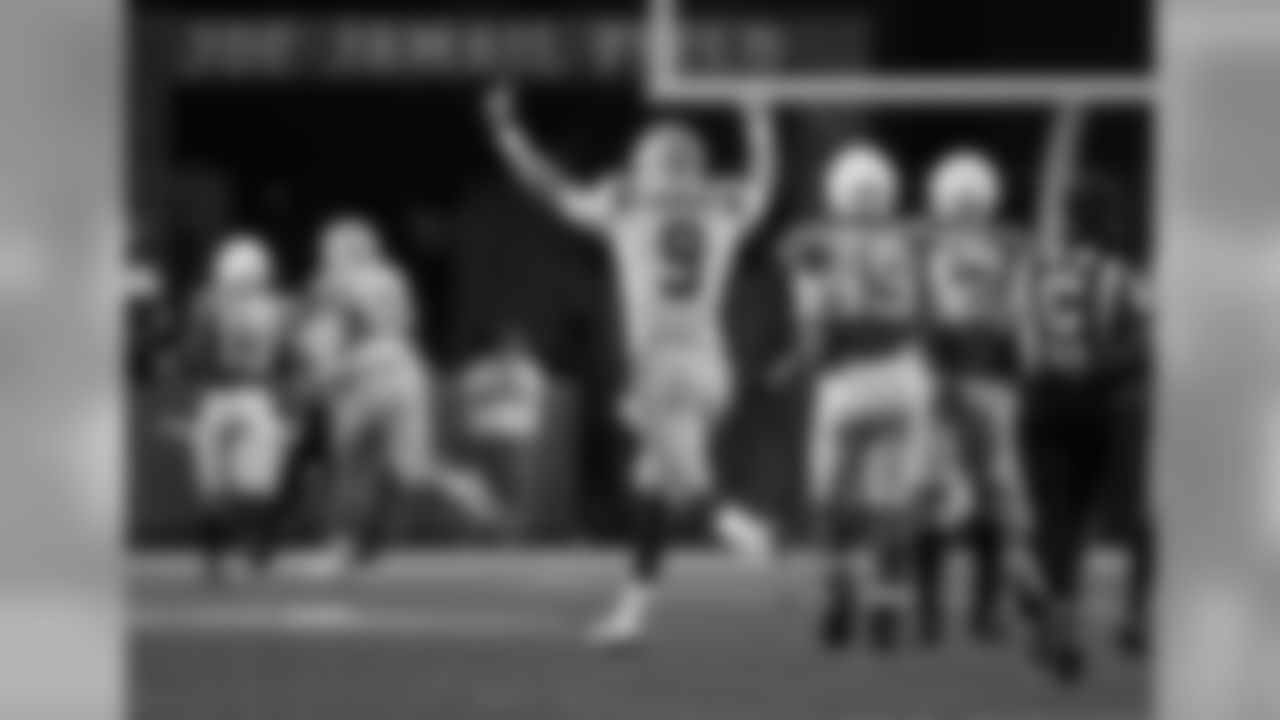
LSU quarterback Joe Burrow (9) celebrates after connecting with wide receiver Justin Jefferson for a touchdown against Texas during the second half of an NCAA college football game Saturday, Sept. 7, 2019, in Austin, Texas. (AP Photo/Eric Gay)
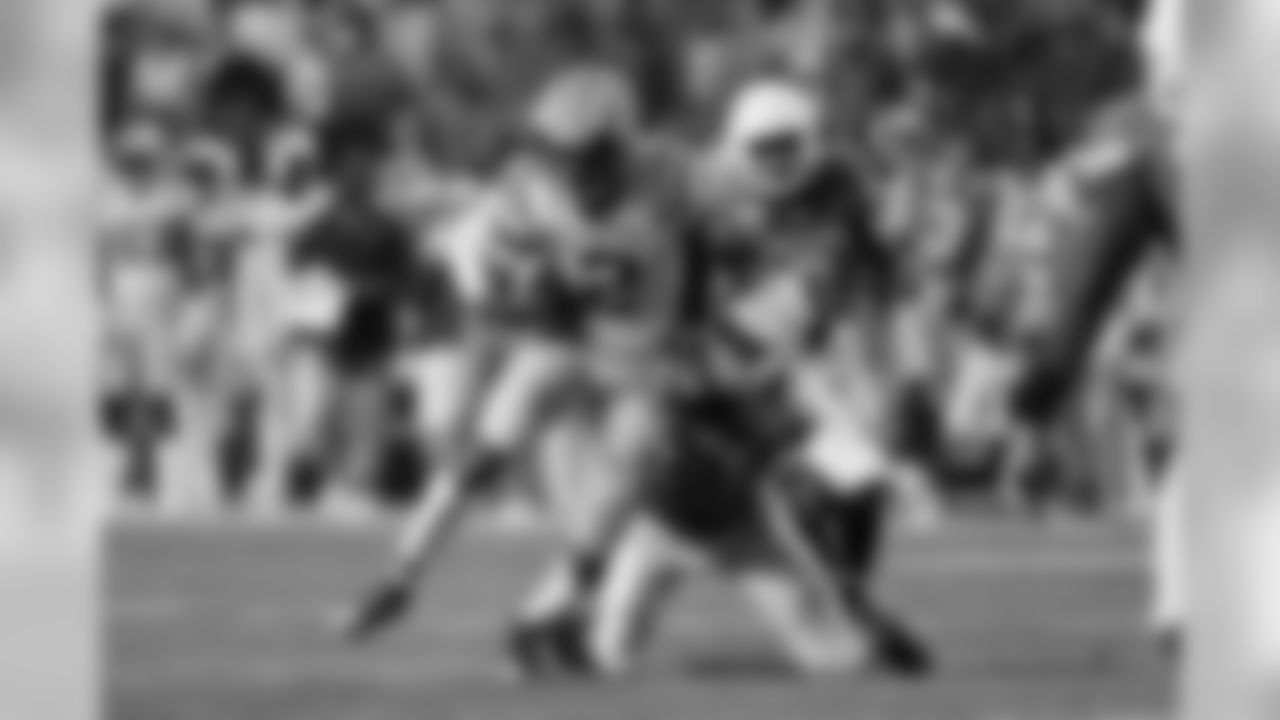
LSU wide receiver Justin Jefferson (2) during the second half of an NCAA college football game, Saturday, Sept. 7, 2019, in Austin, Texas. (AP Photo/Eric Gay)

LSU wide receiver Justin Jefferson (2) is tackled by Utah State safety Shaq Bond (4), linebacker Kevin Meitzenheimer (33) and linebacker David Woodward in the first half of an NCAA college football game in Baton Rouge, La., Saturday, Oct. 5, 2019. (AP Photo/Gerald Herbert)
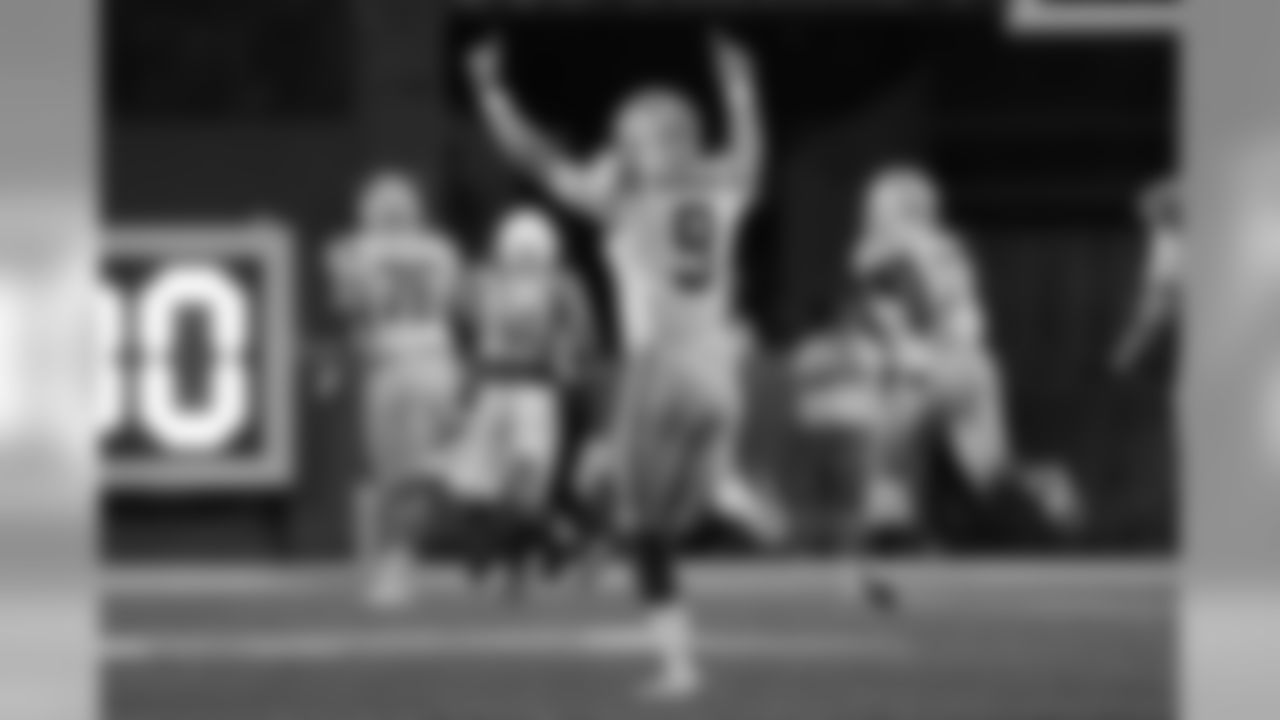
LSU quarterback Joe Burrow (9) celebrates after connecting with teammate wide receiver Justin Jefferson (2) for a touchdown against Texas during the second half of an NCAA college football game, Saturday, Sept. 7, 2019, in Austin, Texas. (AP Photo/Eric Gay)

LSU wide receiver Justin Jefferson (2) pulls in a catch for a touchdown over Texas defensive back Josh Thompson (29) during the first half of an NCAA college football game Saturday, Sept. 7, 2019, in Austin, Texas. (AP Photo/Eric Gay)
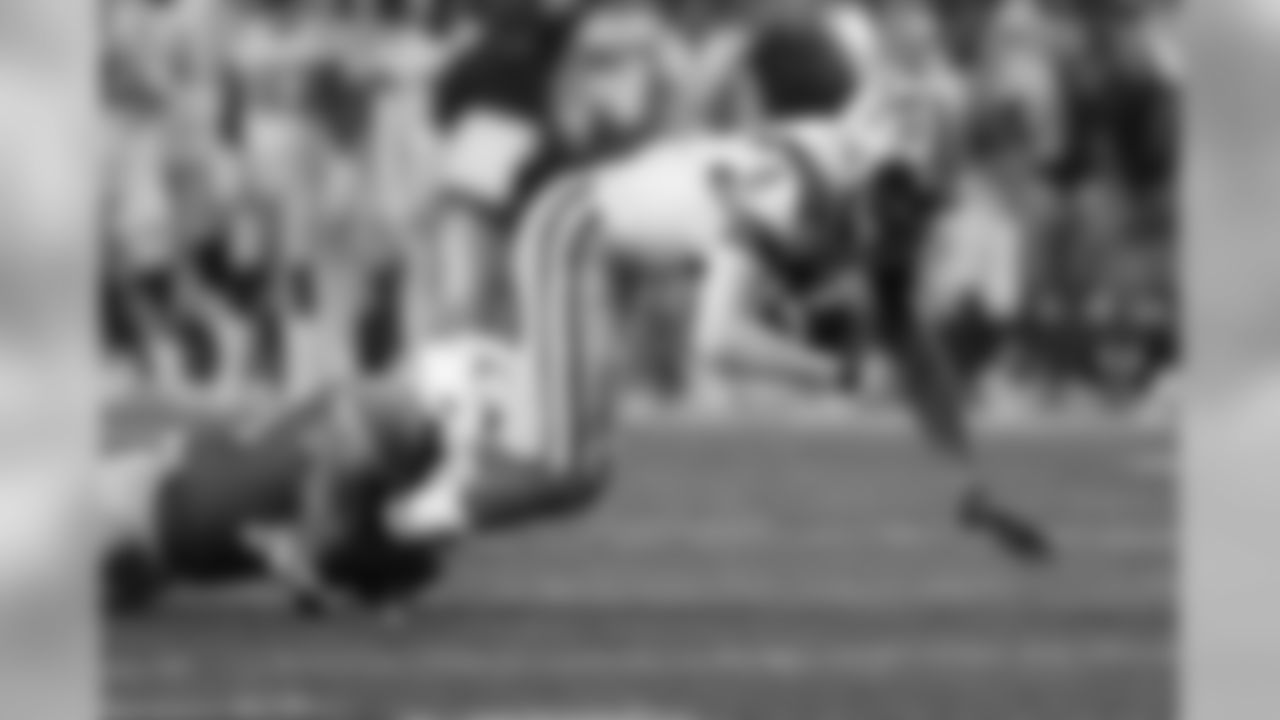
LSU wide receiver Justin Jefferson (2) is stopped by Texas defensive back Brandon Jones (19) during the first half of an NCAA college football game Saturday, Sept. 7, 2019, in Austin, Texas. (AP Photo/Eric Gay)
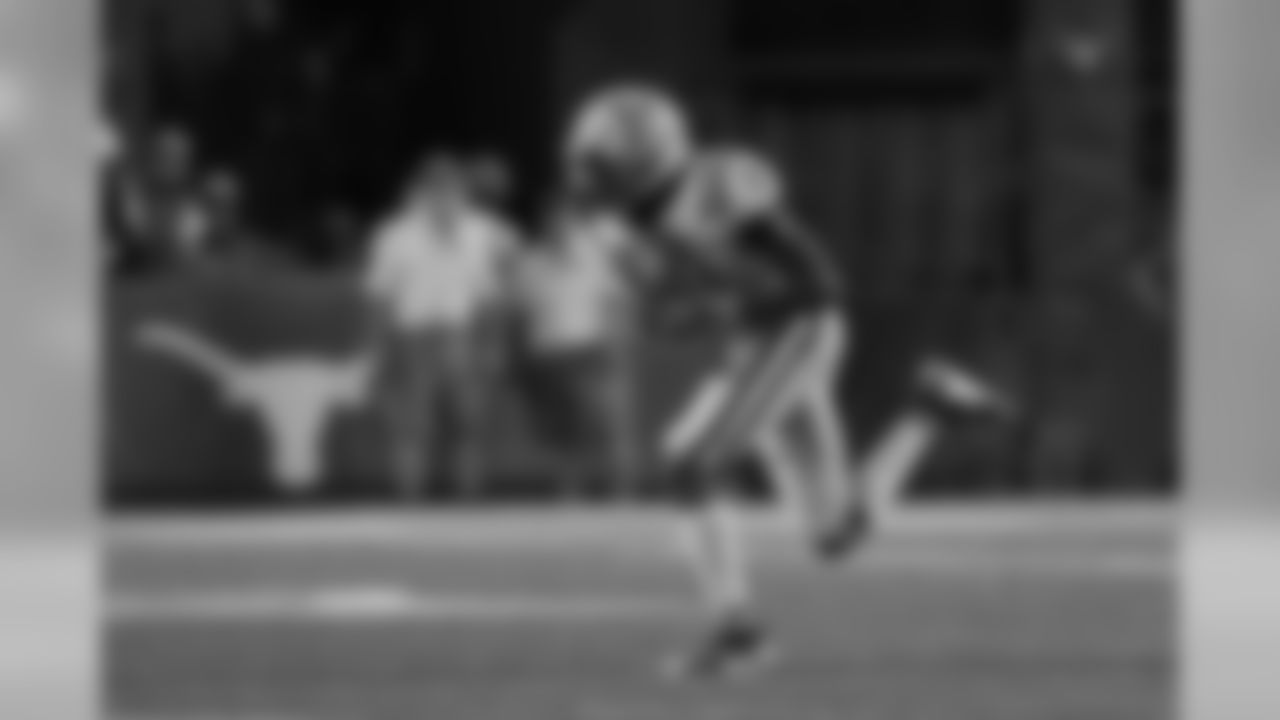
LSU wide receiver Justin Jefferson (2) catches a pass and runs for a touchdown against Texas during the second half of an NCAA college football game Saturday, Sept. 7, 2019, in Austin, Texas. (AP Photo/Eric Gay)

LSU wide receiver Justin Jefferson (2) catches a pass in front of Texas defensive back Caden Sterns (7) and runs for a touchdown during the second half of an NCAA college football game Saturday, Sept. 7, 2019, in Austin, Texas. (AP Photo/Eric Gay)

LSU wide receiver Justin Jefferson, center, and other LSU players warm up before an NCAA college football game against Texas, Saturday, Sept. 7, 2019, in Austin, Texas. (AP Photo/Eric Gay)
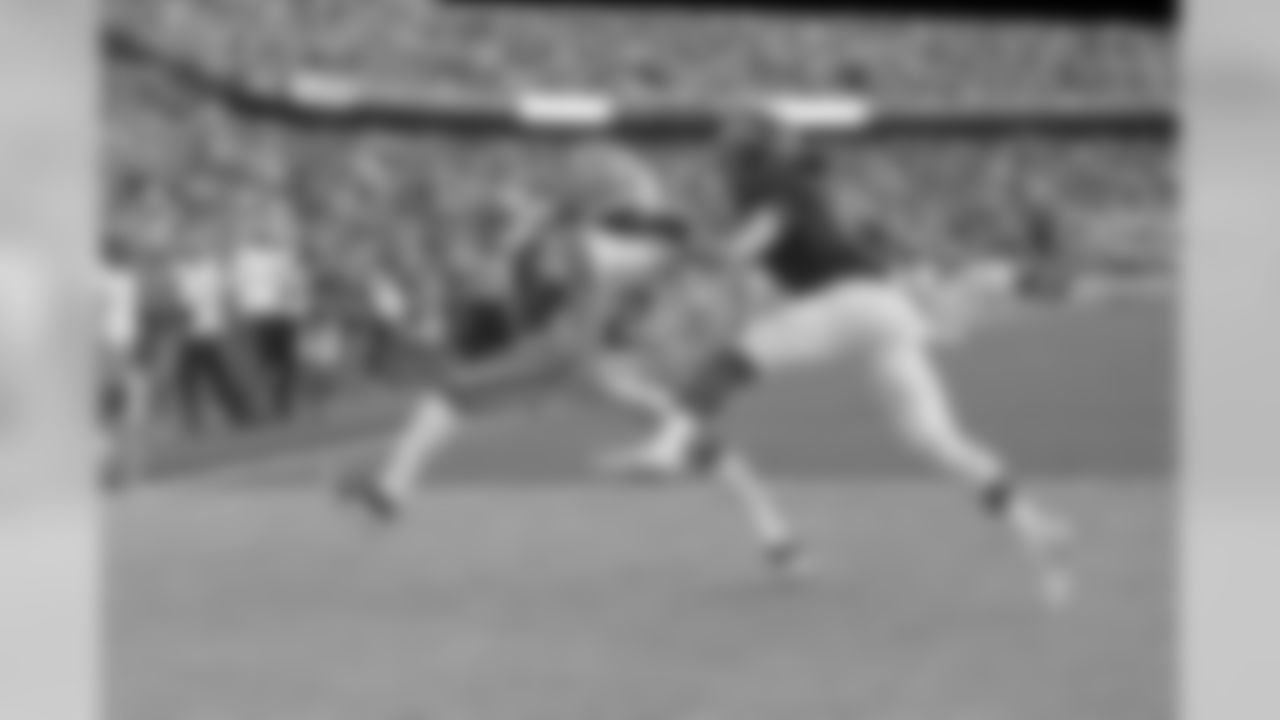
LSU Tigers wide receiver Justin Jefferson (2) catches a 9-yard touchdown as Georgia Southern Eagles linebacker Jay Bowdry (5) defends in the first quarter during an NCAA football game between the Georgia Southern Eagles and Louisiana State University Tigers in Baton Rouge, La., Saturday, Aug. 31, 2019. (AP Photo/Michael Democker)

LSU wide receiver Justin Jefferson (2) pulls in a catch for a touchdown over Texas defensive back Josh Thompson (29) during the first half of an NCAA college football game Saturday, Sept. 7, 2019, in Austin, Texas. (AP Photo/Eric Gay)
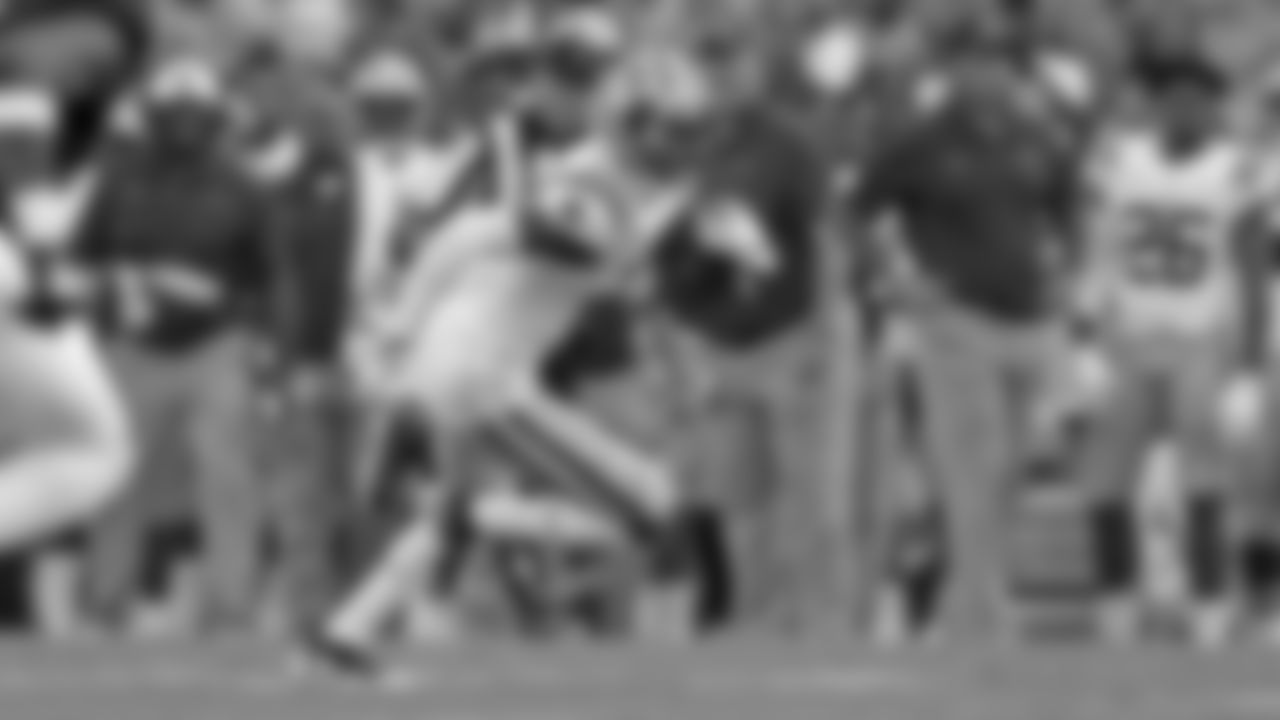
LSU Tigers wide receiver Justin Jefferson (2) during an NCAA football game between the Georgia Southern Eagles and Louisiana State University Tigers in Baton Rouge, La., Saturday, Aug. 31, 2019. (AP Photo/Michael Democker)

LSU wide receiver Justin Jefferson (2) makes a reception in the third quarter as Georgia Southern safety Kenderick Duncan Jr. (27) defends during an NCAA college football game in Baton Rouge, La., Saturday, Aug. 31, 2019. (AP Photo/Michael Democker)
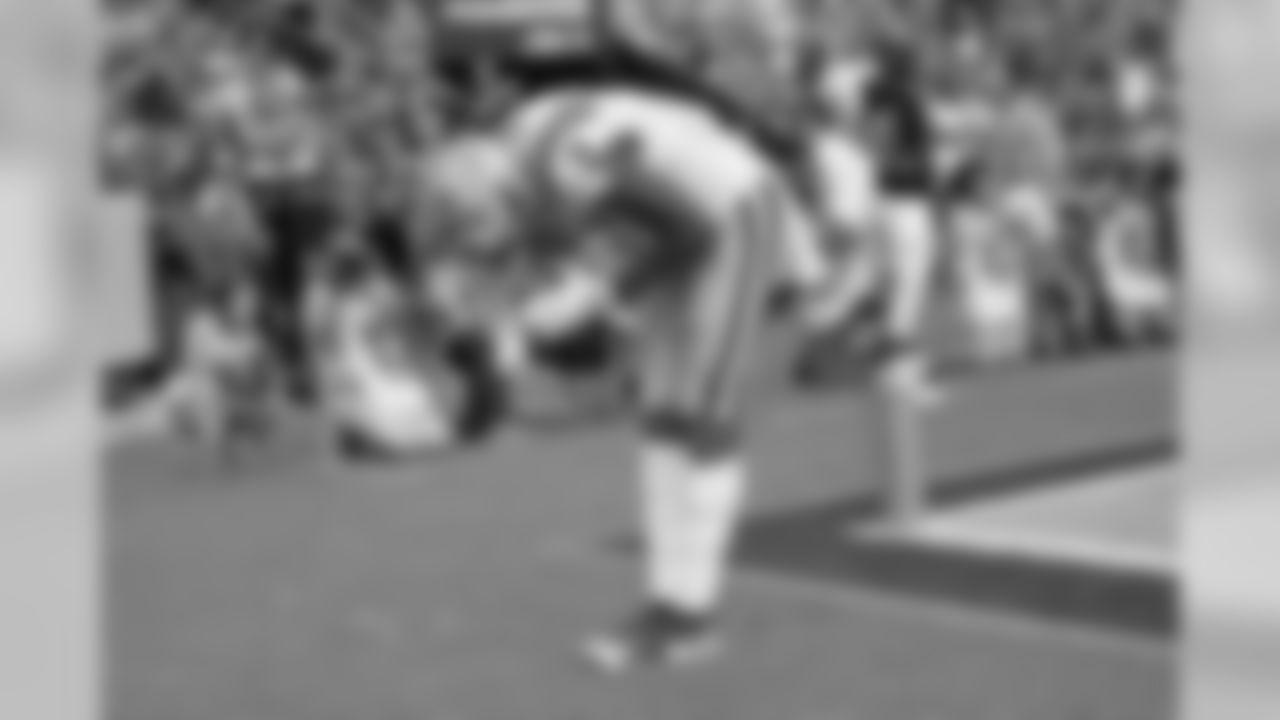
LSU Tigers wide receiver Justin Jefferson (2) bows to the crowd after he catches a 9-yard touchdown in the first quarter during an NCAA football game between the Georgia Southern Eagles and Louisiana State University Tigers in Baton Rouge, La., Saturday, Aug. 31, 2019. (AP Photo/Michael Democker)
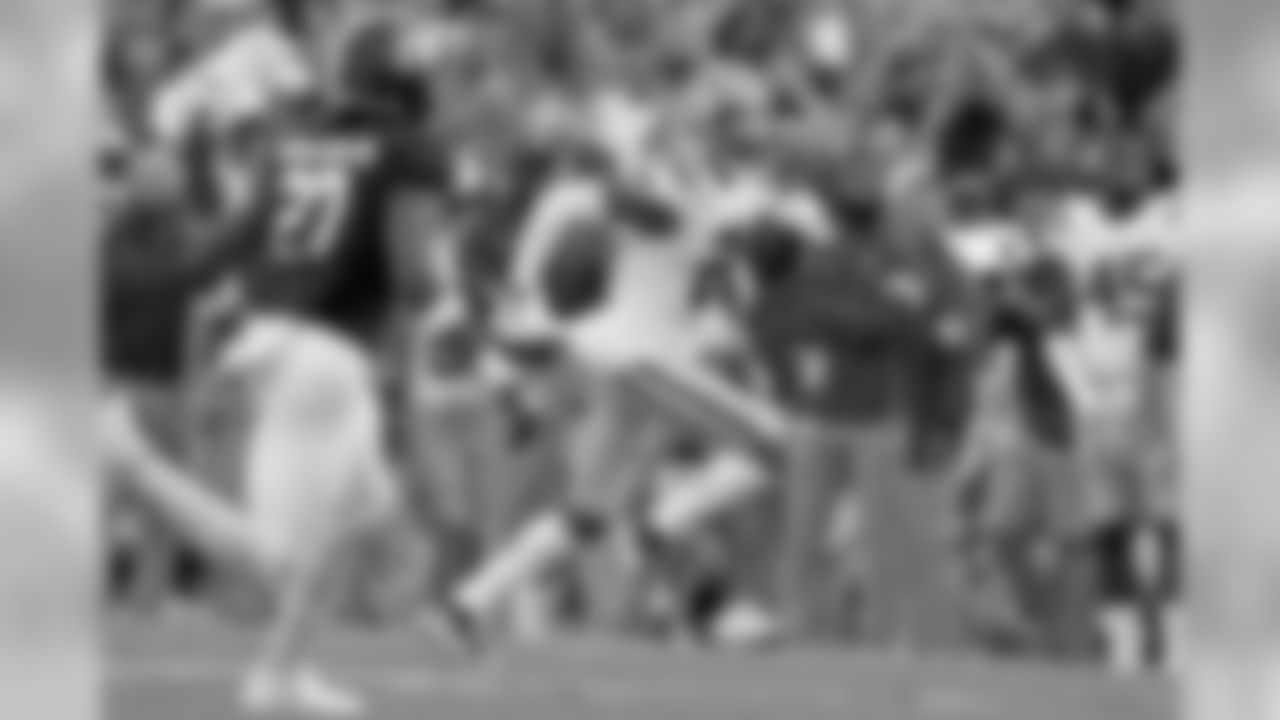
LSU Tigers wide receiver Justin Jefferson (2) takes a pass up the sidelines in the first quarter during an NCAA football game between the Georgia Southern Eagles and Louisiana State University Tigers in Baton Rouge, La., Saturday, Aug. 31, 2019. (AP Photo/Michael Democker)

Orlando Magic forward Amile Jefferson (11) goes up for a shot between Atlanta Hawks guard Justin Anderson (1) and forward John Collins (20) during the second half of an NBA basketball game Friday, April 5, 2019, in Orlando, Fla. (AP Photo/Phelan M. Ebenhack)

LSU wide receiver Justin Jefferson (2) catches a 9-yard touchdown as Georgia Southern linebacker Jay Bowdry (5) defends in the first quarter of an NCAA college football game in Baton Rouge, La., Saturday, Aug. 31, 2019. (AP Photo/Michael Democker)
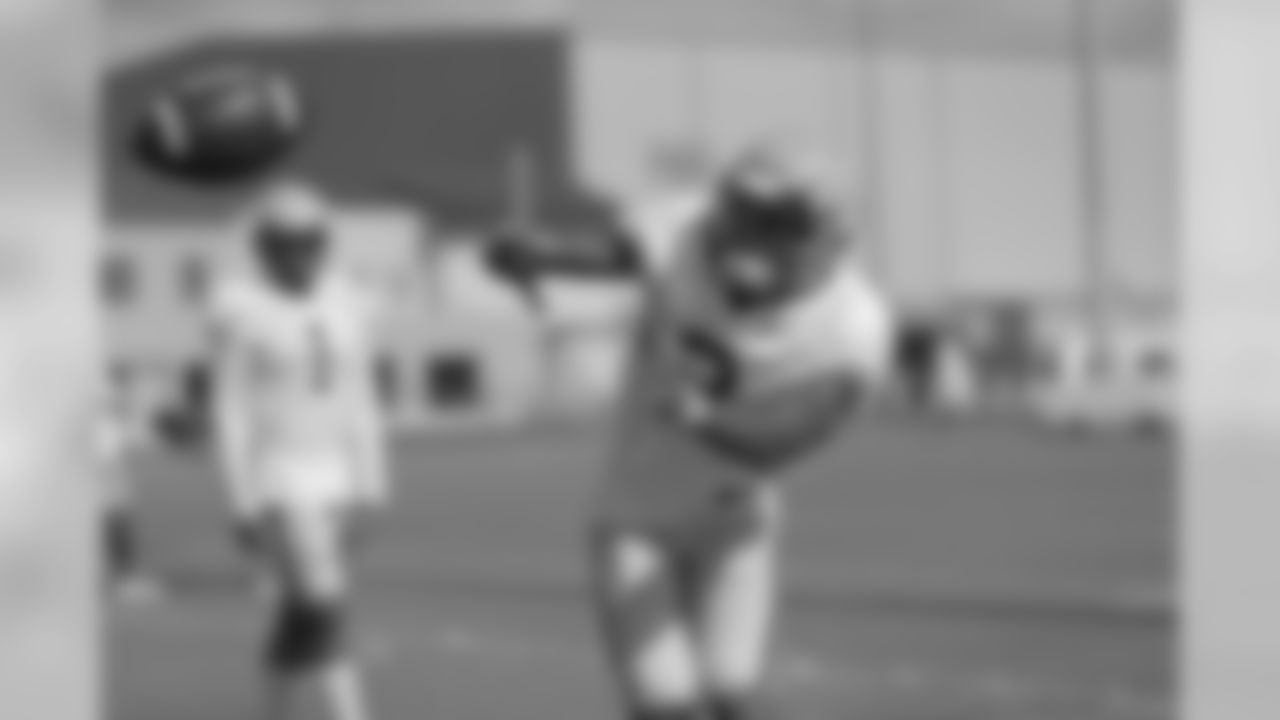
LSU wide receiver Justin Jefferson (2) works out during their NCAA college football practice in Baton Rouge, La., Wednesday, Aug. 7, 2019. (AP Photo/Gerald Herbert)
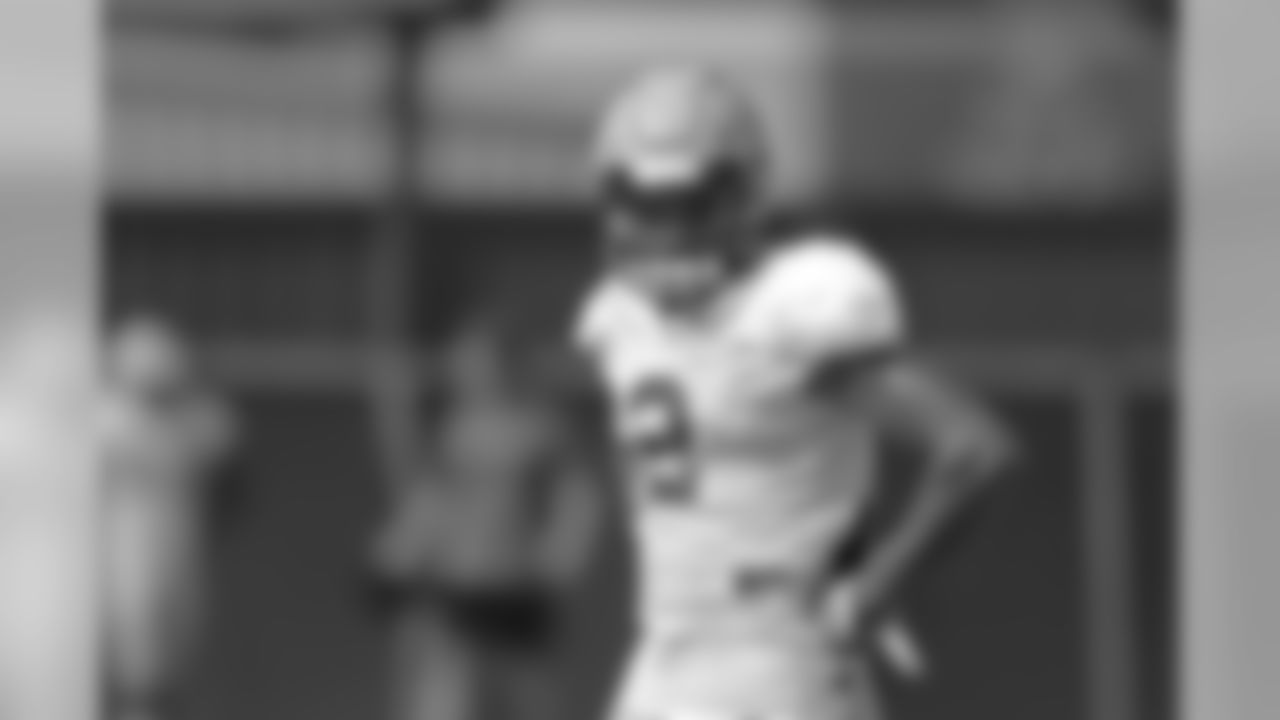
LSU wide receiver Justin Jefferson (2) works out during their NCAA college football practice in Baton Rouge, La., Wednesday, Aug. 7, 2019. (AP Photo/Gerald Herbert)

LSU wide receiver Justin Jefferson (2) catches a 9-yard touchdown as Georgia Southern linebacker Jay Bowdry (5) defends in the first quarter of an NCAA college football game in Baton Rouge, La., Saturday, Aug. 31, 2019. (AP Photo/Michael Democker)
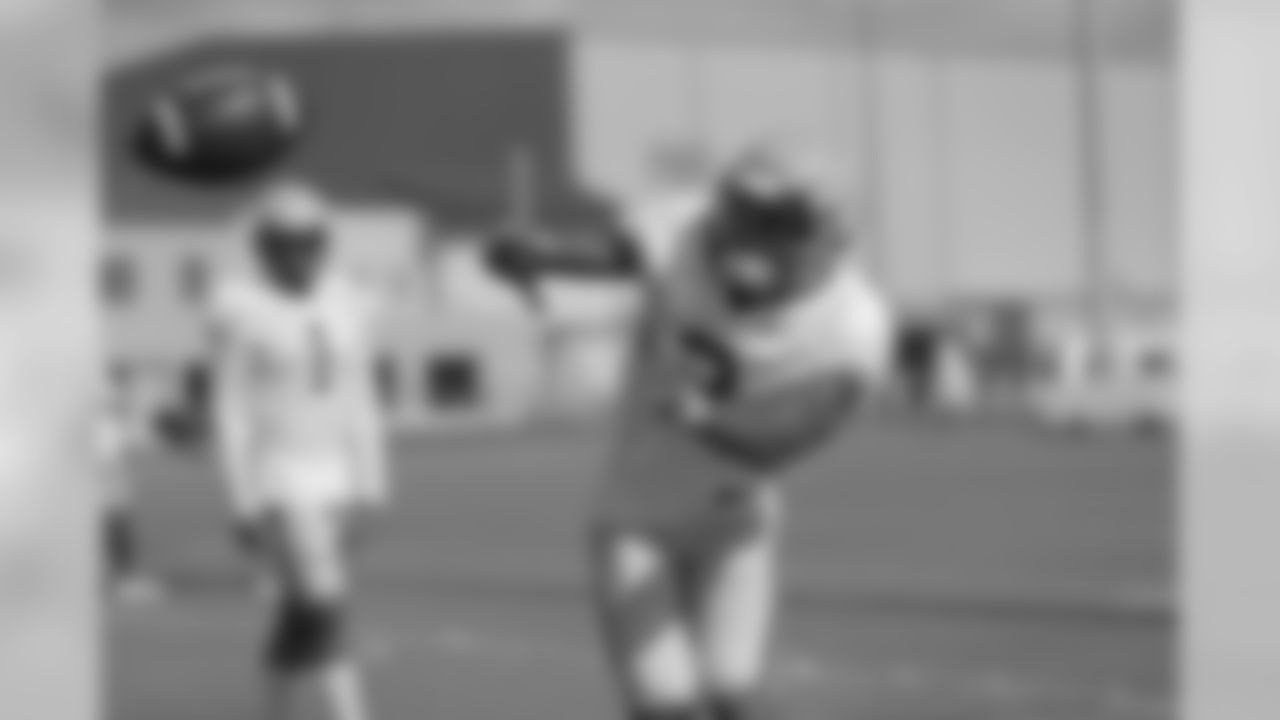
LSU wide receiver Justin Jefferson (2) works out during their NCAA college football practice in Baton Rouge, La., Wednesday, Aug. 7, 2019. (AP Photo/Gerald Herbert)

LSU wide receiver Justin Jefferson (2) works out during their NCAA college football practice in Baton Rouge, La., Wednesday, Aug. 7, 2019. (AP Photo/Gerald Herbert)
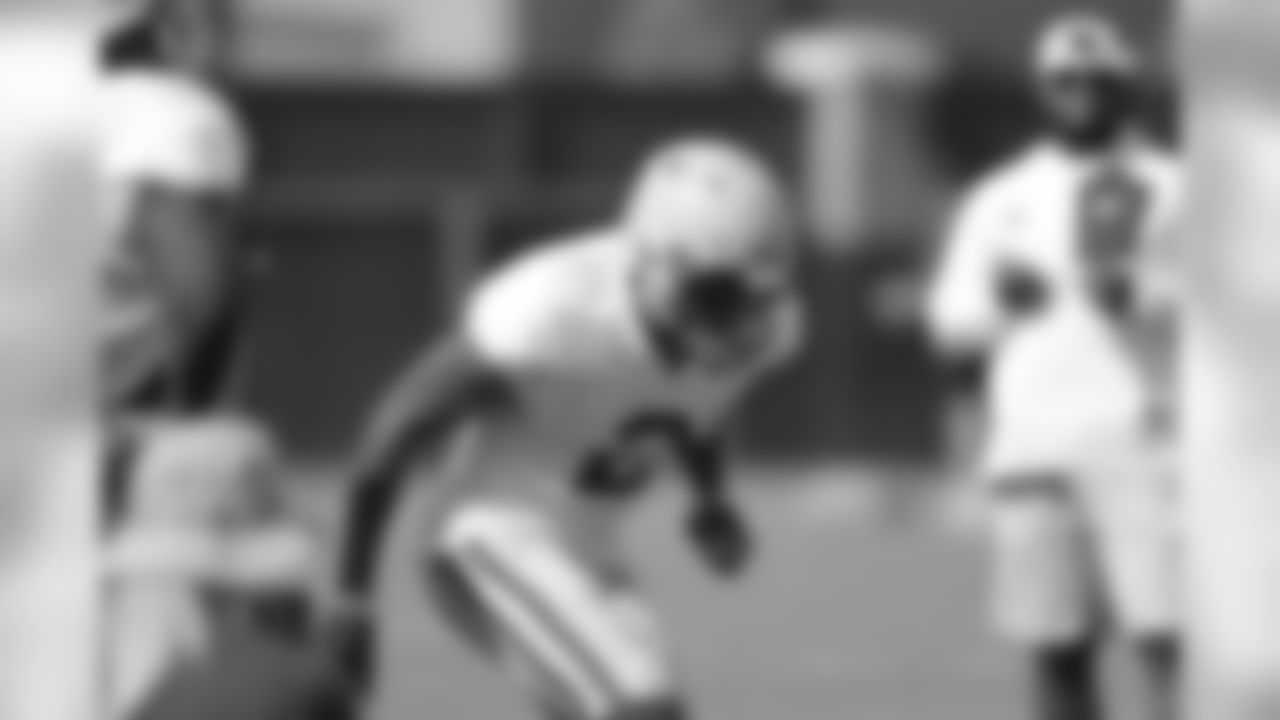
LSU wide receiver Justin Jefferson (2) works out during their NCAA college football practice in Baton Rouge, La., Wednesday, Aug. 7, 2019. (AP Photo/Gerald Herbert)

LSU wide receiver Justin Jefferson (2) works out during their NCAA college football practice in Baton Rouge, La., Wednesday, Aug. 7, 2019. (AP Photo/Gerald Herbert)

LSU wide receiver Justin Jefferson (2) works out during their NCAA college football practice in Baton Rouge, La., Wednesday, Aug. 7, 2019. (AP Photo/Gerald Herbert)

UCF defensive back Nevelle Clarke (14) breaks up the pass intended for LSU wide receiver Justin Jefferson in the first half during the Fiesta Bowl NCAA college football game, Tuesday, Jan. 1, 2019, in Glendale, AZ. (AP Photo/Rick Scuteri)
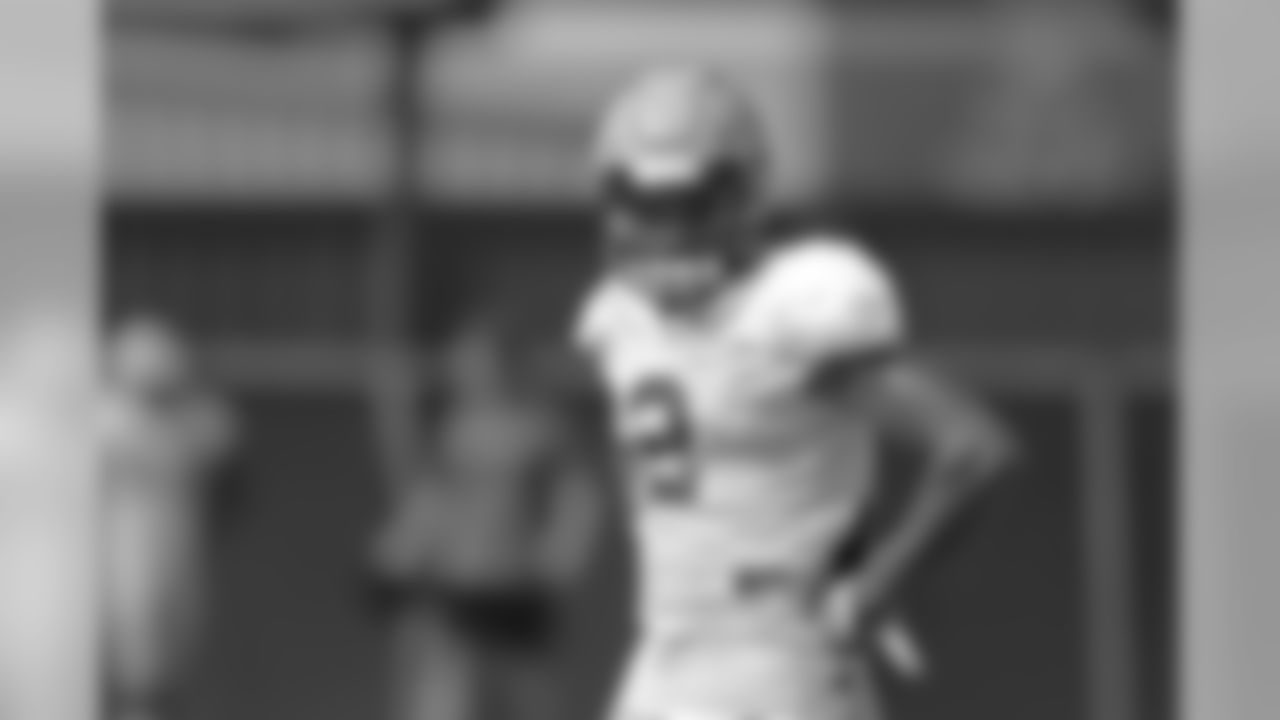
LSU wide receiver Justin Jefferson (2) works out during their NCAA college football practice in Baton Rouge, La., Wednesday, Aug. 7, 2019. (AP Photo/Gerald Herbert)

LSU wide receiver Justin Jefferson (2) works out during their NCAA college football practice in Baton Rouge, La., Wednesday, Aug. 7, 2019. (AP Photo/Gerald Herbert)

LSU wide receiver Justin Jefferson (2) works out during their NCAA college football practice in Baton Rouge, La., Wednesday, Aug. 7, 2019. (AP Photo/Gerald Herbert)

LSU wide receiver Justin Jefferson (2) in the first half during the Fiesta Bowl NCAA college football game against UCF, Tuesday, Jan. 1, 2019, in Glendale, AZ. (AP Photo/Rick Scuteri)
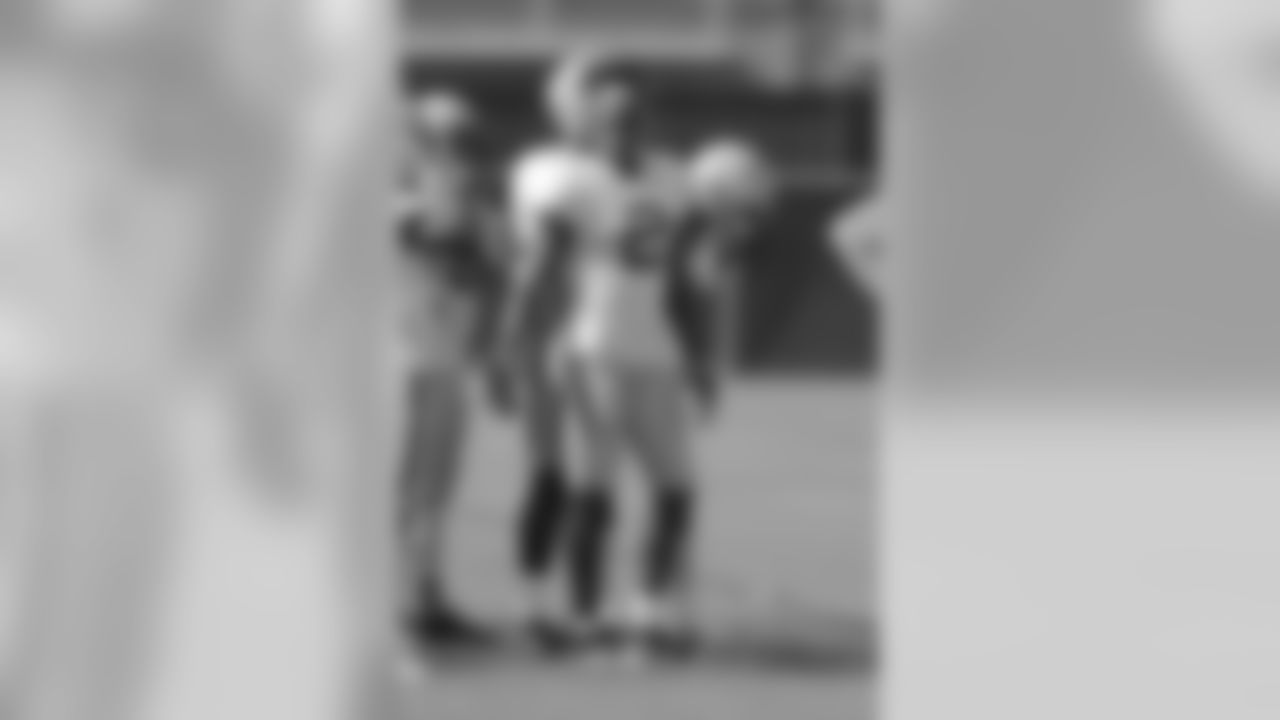
LSU wide receiver Justin Jefferson (2) works out during their NCAA college football practice in Baton Rouge, La., Wednesday, Aug. 7, 2019. (AP Photo/Gerald Herbert)

LSU wide receiver Justin Jefferson (2) in the first half during the Fiesta Bowl NCAA college football game against UCF, Tuesday, Jan. 1, 2019, in Glendale, AZ. (AP Photo/Rick Scuteri)

LSU wide receiver Justin Jefferson (2) works out during their NCAA college football practice in Baton Rouge, La., Wednesday, Aug. 7, 2019. (AP Photo/Gerald Herbert)

LSU wide receiver Justin Jefferson drops the ball in the endzone in front of UCF defensive back Richie Grant (27) in the second half of the Fiesta Bowl NCAA college football game, Tuesday, Jan. 1, 2019, in Glendale, AZ. LSU won 40-32. (AP Photo/Rick Scuteri)

UCF defensive back Nevelle Clarke (14) breaks up the pass intended for LSU wide receiver Justin Jefferson in the first half during the Fiesta Bowl NCAA college football game, Tuesday, Jan. 1, 2019, in Glendale, Ariz. (AP Photo/Rick Scuteri)
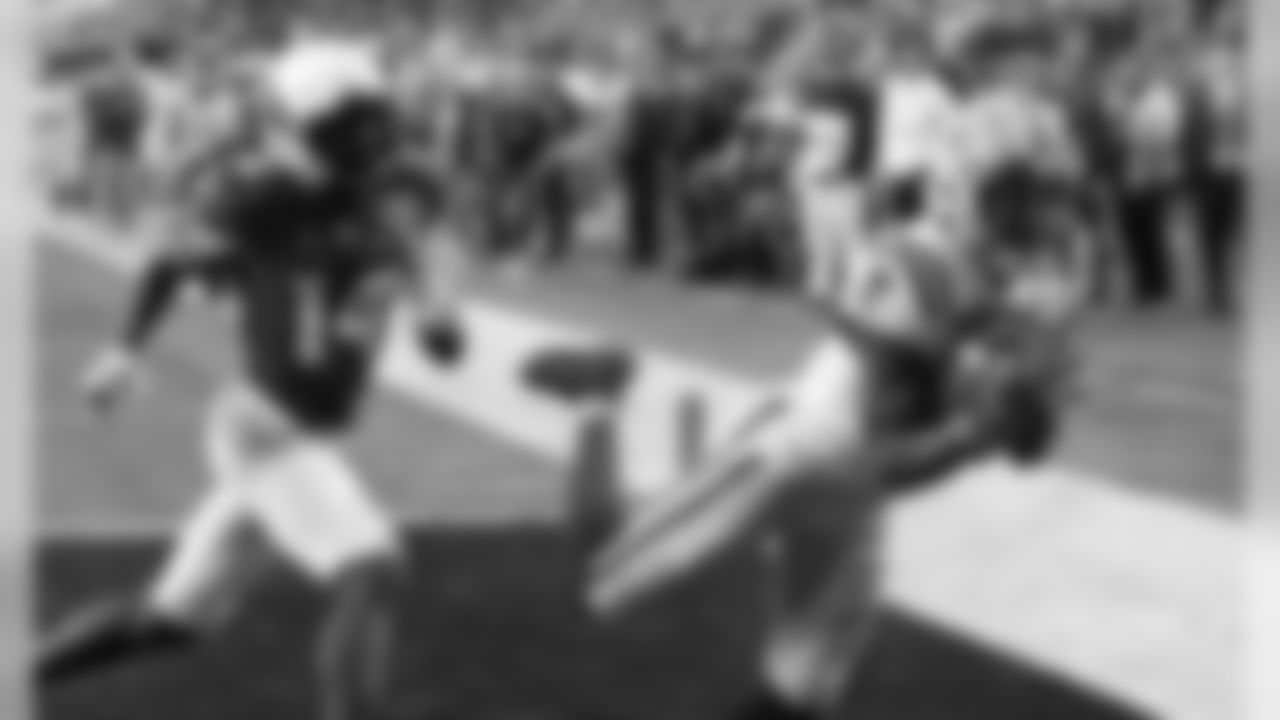
LSU wide receiver Justin Jefferson (2) makes a touchdown catch against UCF defensive back Nevelle Clarke (14) during the first half of a Fiesta Bowl NCAA college football game Tuesday, Jan. 1, 2019, in Glendale, Ariz. (AP Photo/Ross D. Franklin)

LSU wide receiver Justin Jefferson (2) drops a long pass near the end zone as Rice cornerback Collin Whitaker pursues in the first half of an NCAA college football game in Baton Rouge, La., Saturday, Nov. 17, 2018. (AP Photo/Gerald Herbert)

LSU wide receiver Justin Jefferson (2) in the first half during the Fiesta Bowl NCAA college football game against UCF, Tuesday, Jan. 1, 2019, in Glendale, AZ. (AP Photo/Rick Scuteri)

LSU wide receiver Justin Jefferson (2) fumbles a punt as UCF wide receiver Jacob Harris (87) moves in to recover the ball during the second half of the Fiesta Bowl NCAA college football game Tuesday, Jan. 1, 2019, in Glendale, Ariz. LSU defeated UCF 40-32. (AP Photo/Ross D. Franklin)

LSU wide receiver Justin Jefferson (2) catches a touchdown in front of UCF defensive back Nevelle Clarke in the first half during the Fiesta Bowl NCAA college football game, Tuesday, Jan. 1, 2019, in Glendale, Ariz. (AP Photo/Rick Scuteri)

LSU wide receiver Justin Jefferson (2) makes a touchdown catch against UCF defensive back Nevelle Clarke (14) during the first half of a Fiesta Bowl NCAA college football game Tuesday, Jan. 1, 2019, in Glendale, Ariz. (AP Photo/Ross D. Franklin)
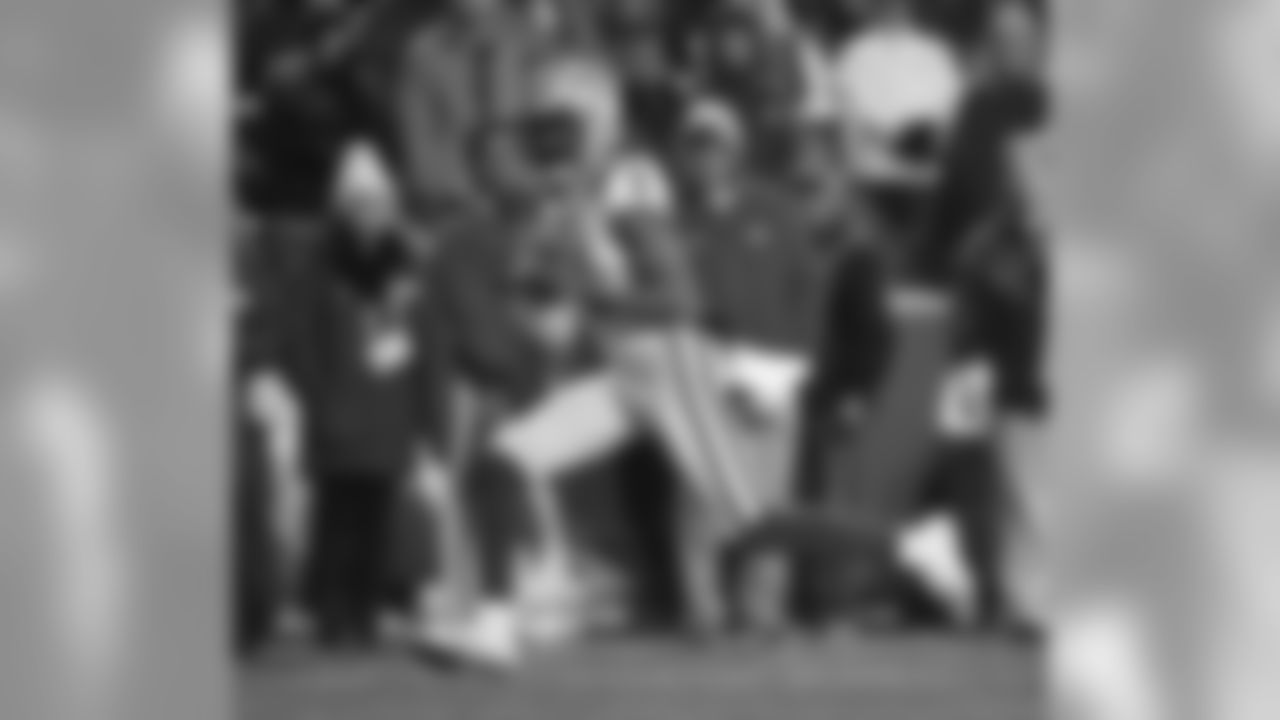
LSU receiver Justin Jefferson (2) makes a touchdown catch in front of Arkansas defender Kamren Curl during the first half of an NCAA college football game, Saturday, Nov. 10, 2018, in Fayetteville, Ark. (AP Photo/Michael Woods)

LSU wide receiver Justin Jefferson (2) pulls in a first down reception against Alabama defensive back Deionte Thompson (14) and defensive back Patrick Surtain II (2) in the first half of an NCAA college football game in Baton Rouge, La., Saturday, Nov. 3, 2018. (AP Photo/Gerald Herbert)
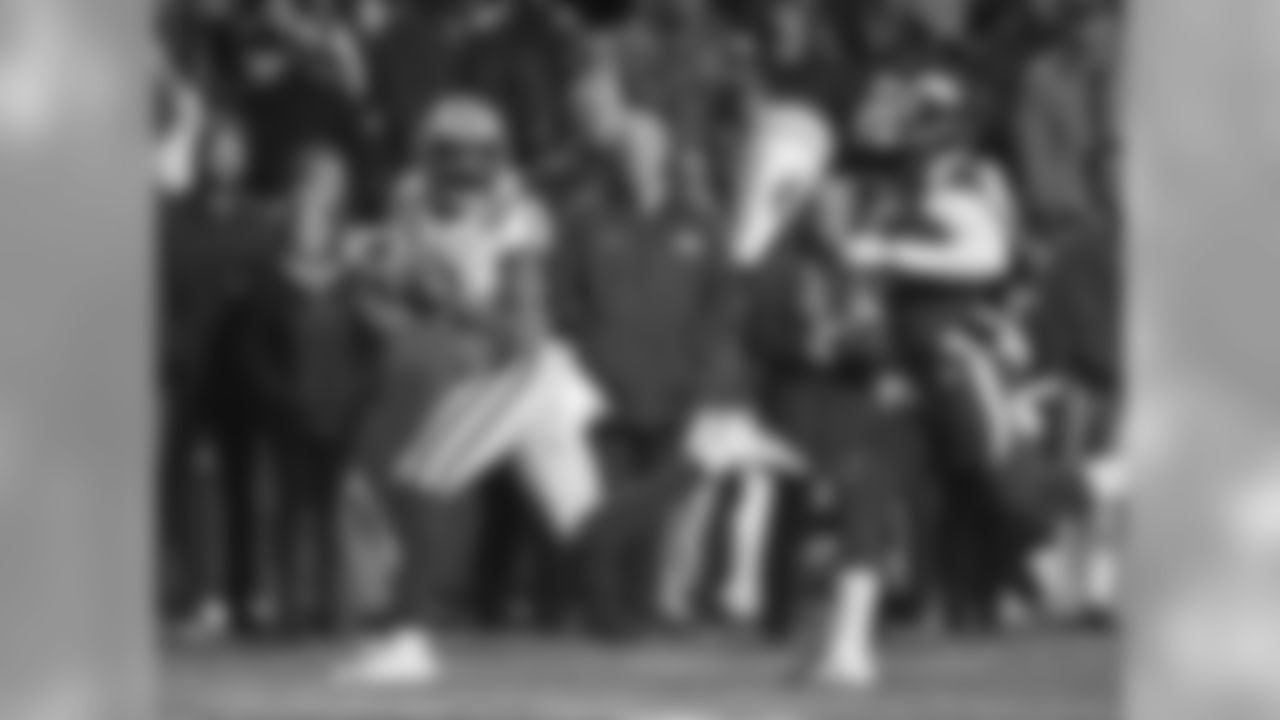
LSU receiver Justin Jefferson (2) makes a touchdown catch in front of Arkansas defender Kamren Curl during the first half of an NCAA college football game, Saturday, Nov. 10, 2018, in Fayetteville, Ark. LSU won, 24-17. (AP Photo/Michael Woods)

LSU receiver Justin Jefferson (2) makes a touchdown catch in front of Arkansas defender Kamren Curl during the first half of an NCAA college football game, Saturday, Nov. 10, 2018, in Fayetteville, Ark. (AP Photo/Michael Woods)
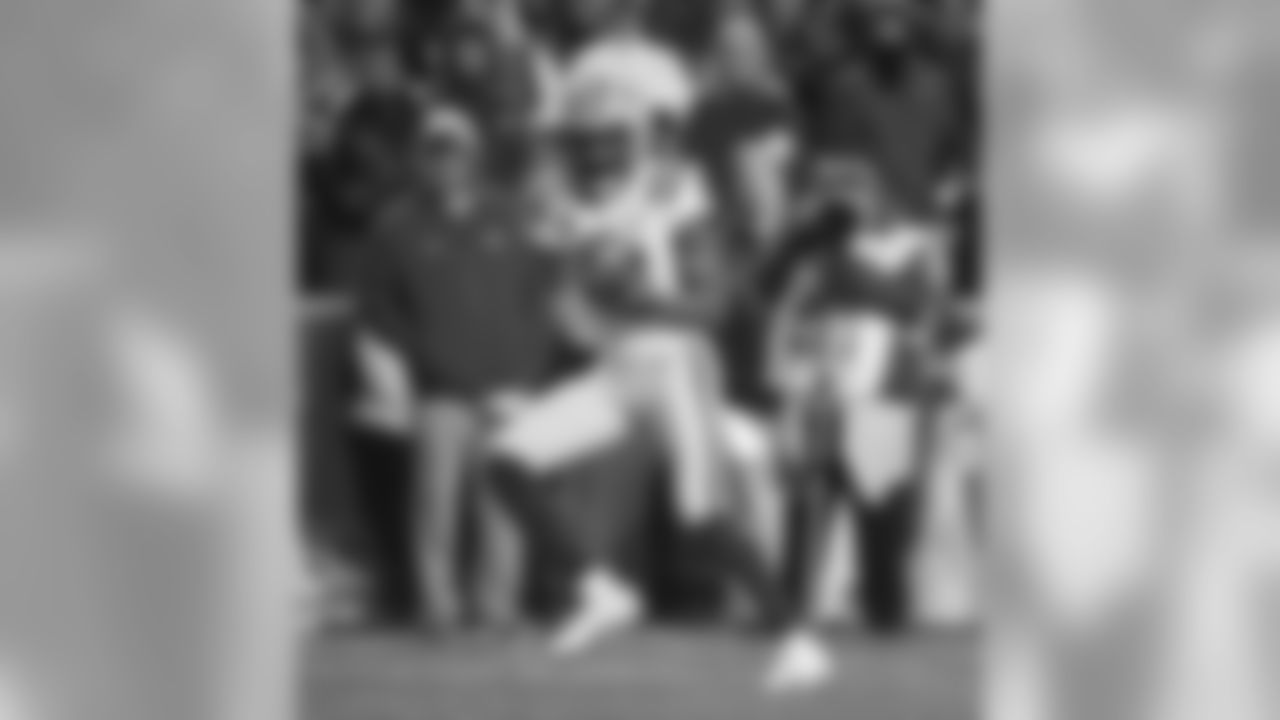
LSU receiver Justin Jefferson (2) makes a touchdown catch in front of Arkansas defender Kamren Curl during the first half of an NCAA college football game, Saturday, Nov. 10, 2018, in Fayetteville, Ark. (AP Photo/Michael Woods)

LSU receiver Justin Jefferson (2) celebrates with teammates Tory Carter (44) Foster Moreau (18) and Terrace Marshall Jr. (6) after scoring a touchdown against Arkansas during the first half of an NCAA college football game, Saturday, Nov. 10, 2018, in Fayetteville, Ark. (AP Photo/Michael Woods)
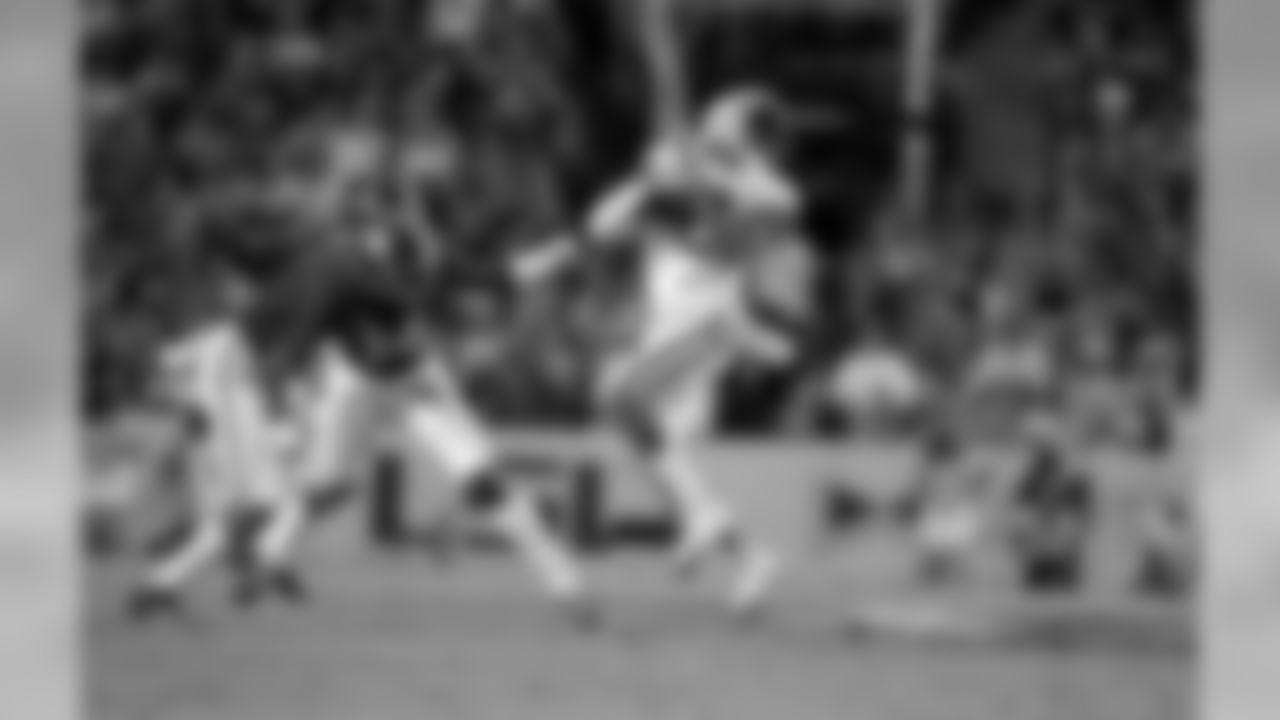
LSU wide receiver Justin Jefferson (2) pulls in a first down reception against Alabama defensive back Deionte Thompson (14) and defensive back Patrick Surtain II (2) in the first half of an NCAA college football game in Baton Rouge, La., Saturday, Nov. 3, 2018. (AP Photo/Gerald Herbert)
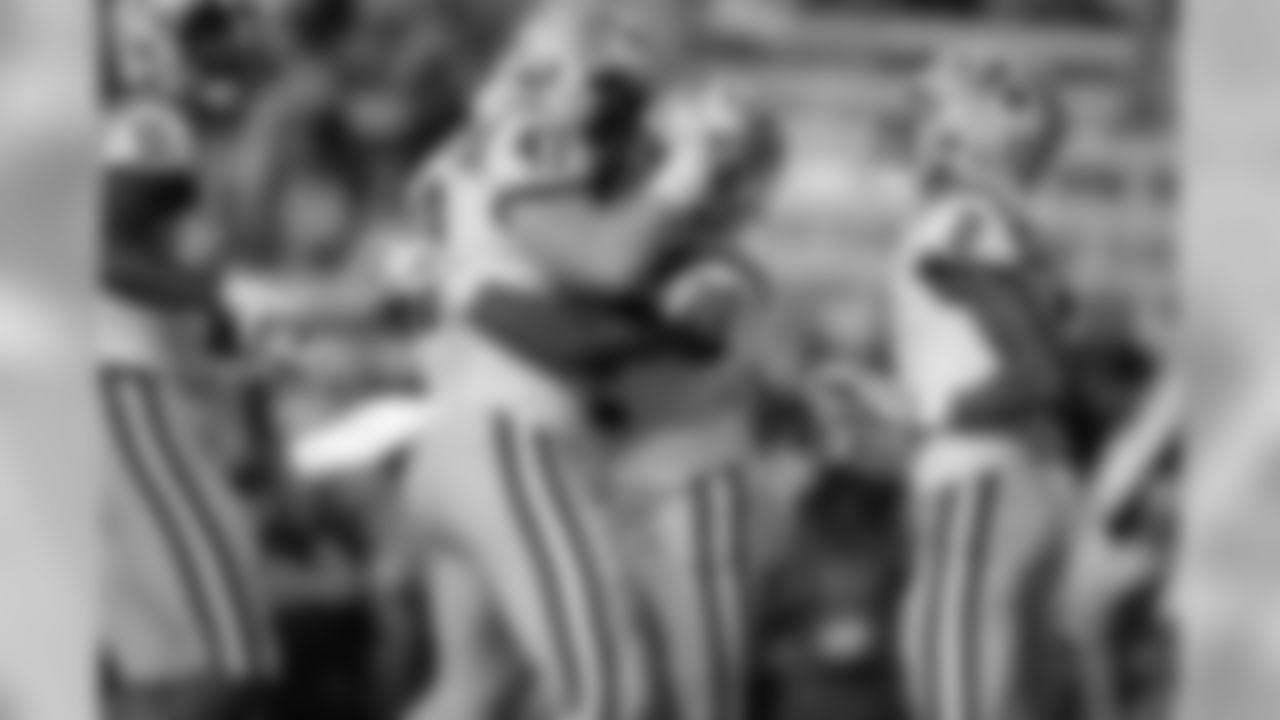
LSU running back Clyde Edwards-Helaire (22) celebrates his touchdown with fullback Trey Gallman (47) and wide receiver Justin Jefferson (2) in the second half of an NCAA college football game against Southeastern Louisiana in Baton Rouge, La., Saturday, Sept. 8, 2018. LSU won 31-0. (AP Photo/Gerald Herbert)
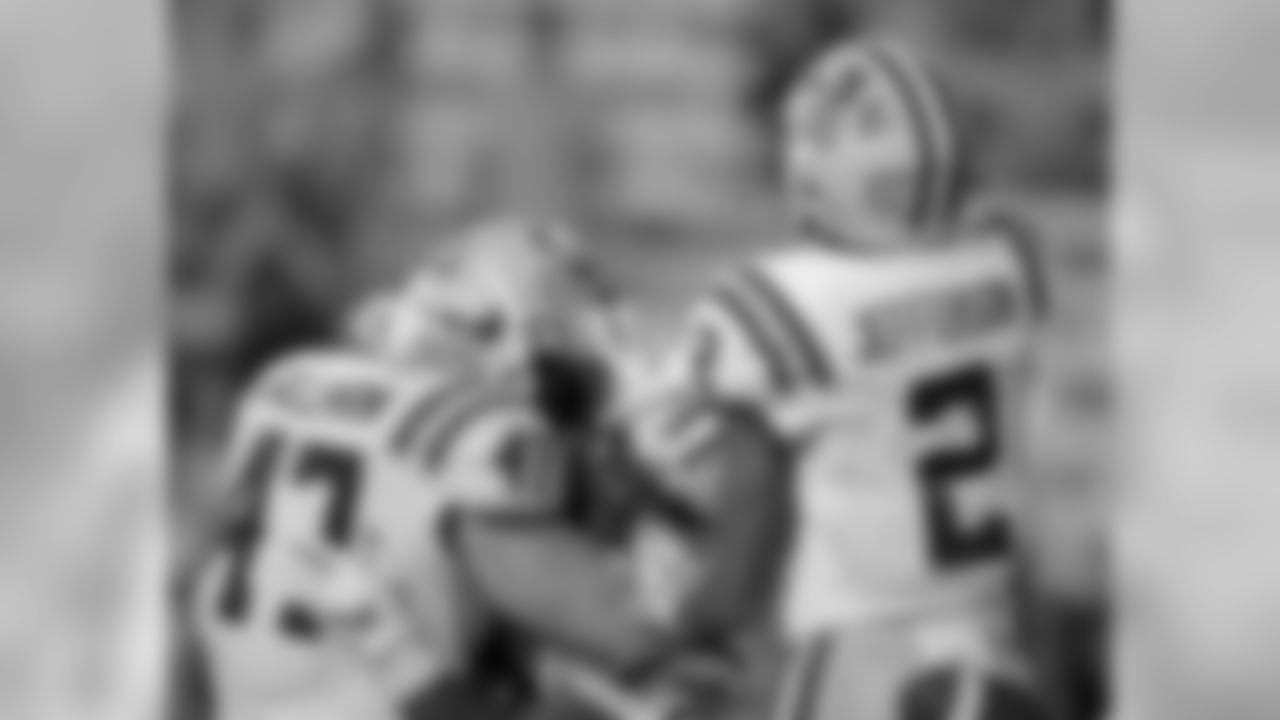
LSU running back Clyde Edwards-Helaire celebrates his touchdown with fullback Trey Gallman (47) and wide receiver Justin Jefferson (2) in the second half of an NCAA college football game in Baton Rouge, La., Saturday, Sept. 8, 2018. LSU won 31-0. (AP Photo/Gerald Herbert)
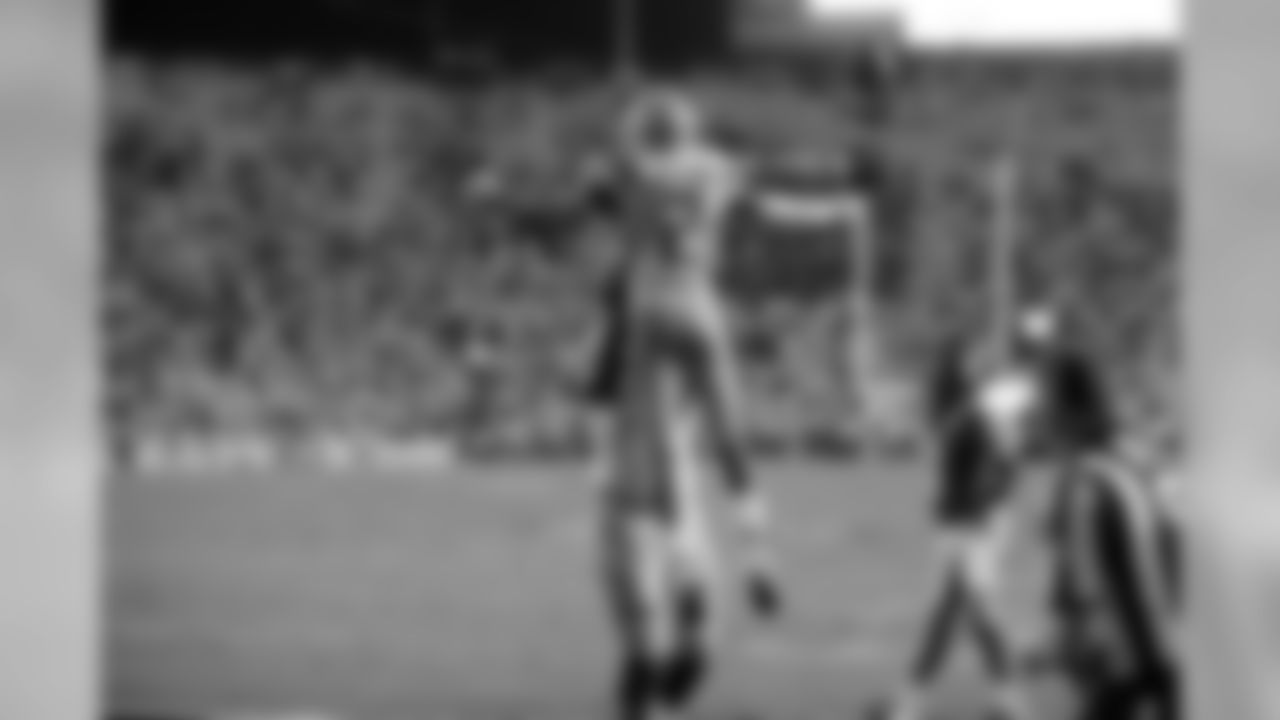
LSU wide receiver Justin Jefferson (2) celebrates his touchdown reception in the second half of an NCAA college football game against Mississippi in Baton Rouge, La., Saturday, Sept. 29, 2018. LSU won 45-16. (AP Photo/Gerald Herbert)

LSU wide receiver Justin Jefferson (2) is tackled by Georgia defensive back J.R. Reed (20) and teammates during the second half of an NCAA college football game in Baton Rouge, La., Saturday, Oct. 13, 2018. (AP Photo/Matthew Hinton)

LSU wide receiver Justin Jefferson (2) is caught by Miami defensive backs Michael Jackson (28) and Jhavonte Dean (6) after taking a pass for a first down during the first half of an NCAA college football game Sunday, Sept. 2, 2018, in Arlington, Texas. (AP Photo/Ron Jenkins)

LSU wide receiver Justin Jefferson (2) celebrates a gain in an NCAA college football game against Georgia in Baton Rouge, La., Saturday, Oct. 13, 2018. (AP Photo/Matthew Hinton)
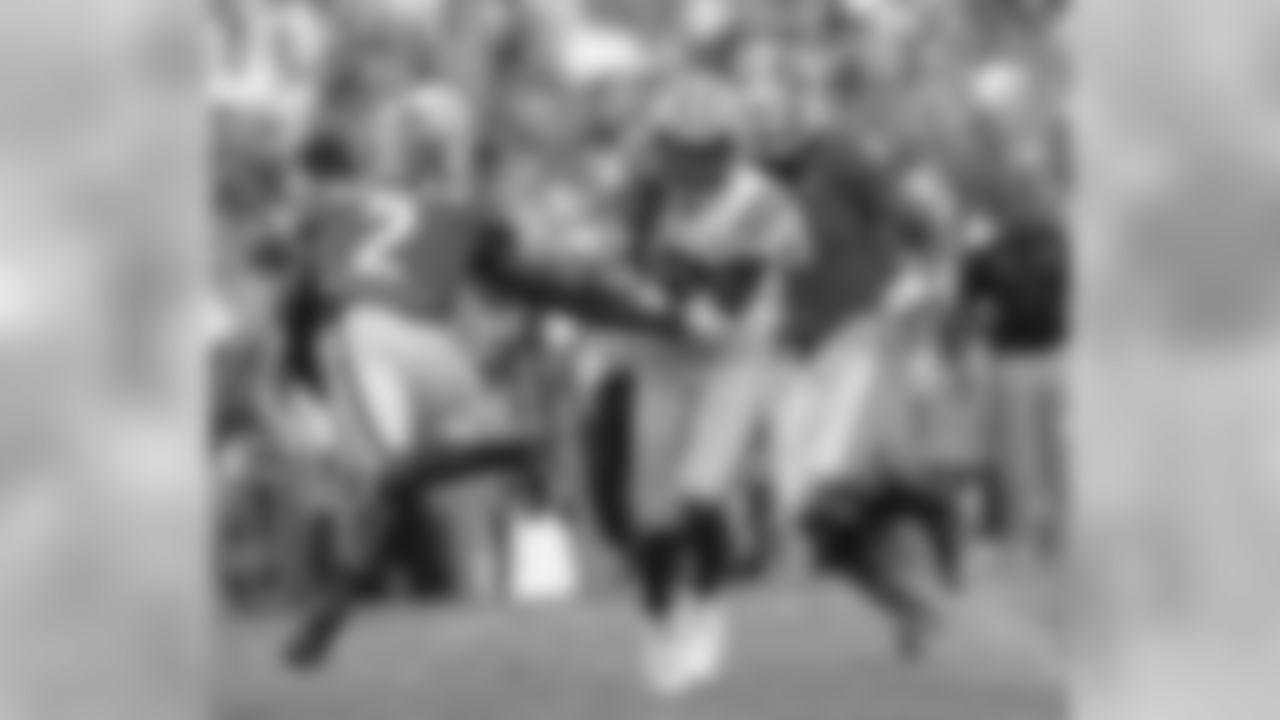
LSU wide receiver Justin Jefferson (2) makes a reception against Georgia defensive back Richard LeCounte (2) during the second half of an NCAA college football game in Baton Rouge, La., Saturday, Oct. 13, 2018. (AP Photo/Matthew Hinton)

LSU wide receiver Justin Jefferson (2) celebrates his touchdown reception in the second half of an NCAA college football game against Mississippi in Baton Rouge, La., Saturday, Sept. 29, 2018. LSU won 45-16. (AP Photo/Gerald Herbert)

LSU wide receiver Justin Jefferson (2) reacts after scoring a touchdown against Louisiana Tech in the first half of an NCAA college football game against in Baton Rouge, La., Saturday, Sept. 22, 2018. (AP Photo/Tyler Kaufman)

LSU wide receiver Justin Jefferson (2) catches a pass over Florida defensive back C.J. McWilliams, right, during the first half of an NCAA college football game, Saturday, Oct. 6, 2018, in Gainesville, Fla. (AP Photo/John Raoux)
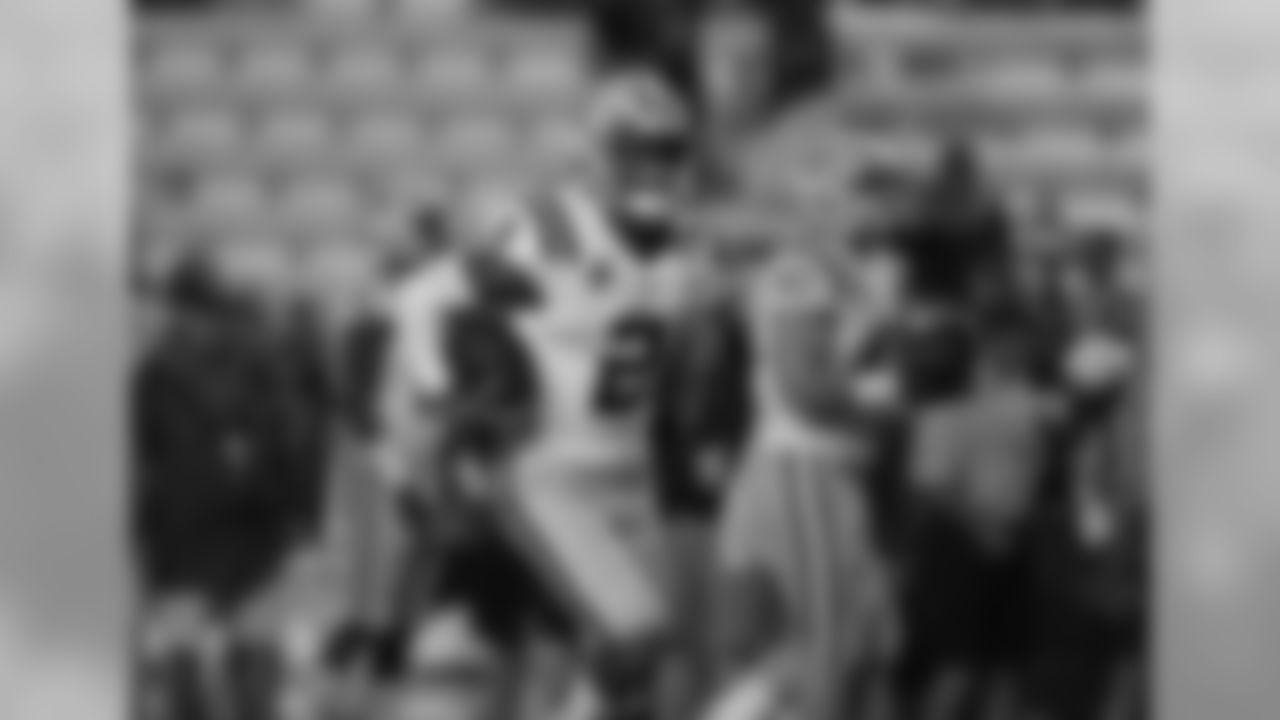
LSU wide receiver Justin Jefferson (2) warms up before an NCAA college football game against Mississippi in Baton Rouge, La., Saturday, Sept. 29, 2018. (AP Photo/Gerald Herbert)
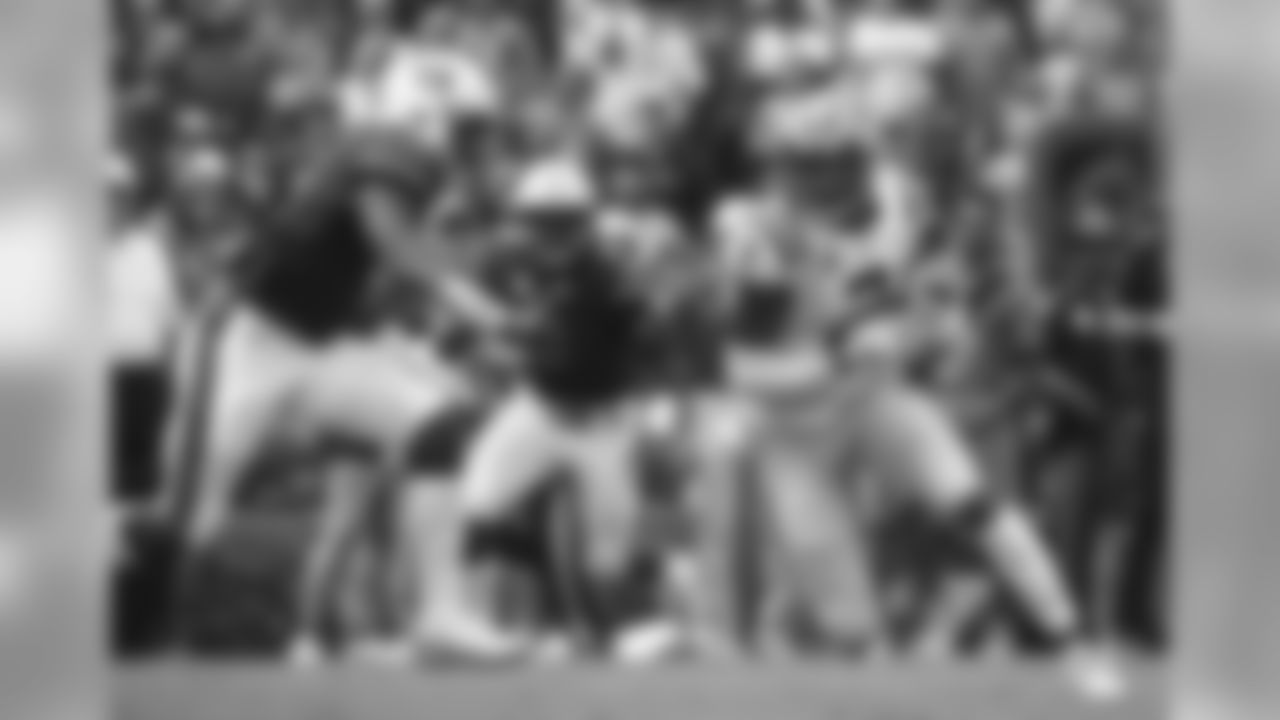
LSU wide receiver Justin Jefferson (2) catches a pass and tries to get around Auburn defensive back Noah Igbinoghene (4) as he carries the ball during the first half of an NCAA college football game, Saturday, Sept. 15, 2018, in Auburn, Ala. (AP Photo/Butch Dill)

Brugler: "When I studied Jefferson at LSU, there were two main takeaways that I just loved about his game. First, his craft footwork. He's so savvy as a route runner, creating his own separation, and he did it in different ways using hesitation, body language, mixing his gears. He was not a one-trick pony out there. Second, was his ball skills. He was very skilled at squaring his body to the ball, attacking with his hands, the competitiveness that he showed at the catch point. That allowed him to work the middle of the field, win contested catches.
"I was taught a long time ago when I got started in this business by my scouting mentors that when you evaluate the wide receiver position, don't overthink it. It comes down to two qualities: can you get open, and can you finish catches? Jefferson did both of those things at a high level in the SEC, so it's no surprise that he's been able to translate and so the same things in the NFL."
Reid: "I had him as my fourth-ranked wide receiver behind Ruggs, Jeudy and Lamb. But when I went to the Combine, and last year was actually my first Combine in-person, he was actually the most impressive wide receiver I saw in person. He surprised everybody running the 4.43 [40-yard-dash], and I know vertical speed was something that was a bit of a question mark for him. But he ran the 4.43 and silenced a lot of those critics.
"He was absolutely terrific in the on-field drills. You saw those translatable traits with the route running and natural hands. He was plucking the ball away and wasn't allowing it to come to his body or his chest at all. That's what stood out to me."
Trapasso: "The contested catches [were] the biggest thing. I knew he was going to be good in those situations. But I don't think Joe Burrow did him any favors because a lot of those contested catches were perfect passes from the No. 1 overall pick. I thought it was more the precision from Burrow than it was Jefferson rebounding the football. And then yards after the catch, that's the first element you want from a wide receiver today. He showed that at LSU, and we also saw that [with the Vikings]. He wasn't just catching a 15-yard dig route from Kirk Cousins and then falling down … he was making things happen after the catch."
Wilcots: "Fluid route runner and somebody who could separate at the top of his route. A guy who created yards after the catch. Once he had the ball in his hands, he could be more explosive after the ball was in his hands. Then he had high awareness against zone coverage. He knew where the openings would be to put him in-sync with the quarterback, whether that was Joe Burrow at LSU or Kirk Cousins in Minnesota. Those things are going to make you immediately successful.
"I remember covering Randy Moss in his rookie year with the Vikings. I came away understanding just how smart he was. Randy also had a tremendously high football IQ. Jefferson has those things — maybe not quite the top-end speed that Randy had — but everything else he has: flypaper hands, the ability to separate at the top of his routes against man coverage, the ability to find the hole against zone coverage, fluid route runner, double moves. Jefferson can do it all."
On the flip side of your pre-draft report, did you undervalue him on anything?
Jeremiah: "Probably the explosive plays. I did not know the yards-per-catch would be where it was, and just the [number] of over-the-top plays. I thought he would just wear people out underneath and intermediate, but what he did with the ball in his hands after the catch, and really just getting on top of coverage, that was maybe the unexpected part of his game."
Brugler: "I think first and foremost, the concerns about him being an inside-only receiver at LSU … in hindsight, those were a little overblown. He put together a phenomenal season at LSU in 2019 … but almost all of his production came from the slot. So it's not that he couldn't play outside, but we didn't know because he didn't consistently do it on tape. Fast forward to this year in Minnesota, his slot percentage was 24.3, so less than a quarter of his snaps were from the inside.
"I don't think we gave Jefferson enough credit for what he can do after the catch. We knew he was more than just a possession receiver, but he's a legitimate threat for the Vikings with the ball in his hands. He led all rookies in yards after the catch [with 453], he has toughness with the ball in his hands, and the cutting ability to make guys miss. So he is a weapon before and after the catch."
Reid: "I kind of fed into the belief a little bit that he was going to have to work into the slot, just because of how underdeveloped he was as far as his releases off the line of scrimmage. I thought he struggled a little bit there at LSU, but that definitely wasn't the case at the NFL level. He showed to be almost foolproof on the perimeter at getting off press and how willing he was to create brawls on the outside and get off press."
Trapasso: "I think I had him as my wide receiver No. 12. I loved the wide receiver class, and again, that's a lot lower than anyone else had him because I thought he was a slot-only receiver. They schemed a lot of his production at LSU since it was very run-pass option based and used him on a lot of bubble screens. Then there was a deep over route that was a schemed-up play. To me, that said they were worried about his ability to create separation so they needed to scheme him the football. I still had him as second-round pick, but he showed as a rookie that he can win on his individual talent alone.
"I missed most on his route-running ability. Not because all 111 of his catches [in 2019] at LSU were schemed open, but for how quickly he can move in and out of his breaks for being a 6-foot-2, lanky wide receiver. Most receivers his size kind of struggle changing directions, but he creates separation like he's 5-11 and 175 pounds. That's the biggest area I missed. I thought he'd struggle, not necessarily beating press at the line, but in his routes getting open. But he did that every single week, regardless of the competition."
Wilcots: "I didn't miss on it, but I did talk a lot about his production in the slot. I felt he could play outside. In fact, I knew he could. I knew why LSU thought he could be great in the slot, because they thought he was their smartest guy. He was the guy that was most in tune and the guy Burrow could trust the most. He didn't play the slot by default. I just felt I should have included more of that in my article."
And finally, what can Jefferson build on going forward? What do you think the future holds for him in 2021 and beyond?
Jeremiah: "Well, he's going to continue to be a high-volume guy. I think he's just getting started here. When you look at guys who are consistently putting up those types of numbers year over year, he fits into that class. You think about [New Orleans'] Michael Thomas when he's been healthy, the numbers he's put up. Justin is a faster version of him, just not quite as physically strong. But again, that's someone who puts up high volume numbers.
"I see Keenan Allen every week doing Chargers games. He understands how to get open and has a natural feel for it. When Keenan Allen is out there and healthy, he's going to catch a million balls. You get the feeling Justin is going to be one of those guys year after year after year. You're just going see this production continue to roll. The guy is what, 21 years old? He's just getting started."
Brugler: "I don't think he's going to slow down. Jefferson is the type of receiver who understands route depth, leverage in coverages, plus he has the hands to be a consistent finisher. Even as defenses adjust to him, he's going to be able to adjust to coverages and understand how defenses are going to want to attack him.
"Jefferson has got that passing-game savvy. I don't think we talk enough about that. It just makes him so dangerous as a weapon. He's going to be as good as his volume, so the more targets he gets, the more productive he'll be. He had 25.8 percent of the Vikings targets in 2020, and I think that number should incrementally increase throughout his rookie contract."
Reid: "Adam Thielen is getting a little bit older, but we all know he's a really good player. I think Jefferson is going to continue to be that No. 1 wide receiver for the Vikings. We'll see who they end up hiring as offensive coordinator, but he's a guy who can definitely step into any type of offense and have success. Once again, he has those traits that can carry over into any offense. I think there's a lot of All-Pro seasons for him in the future."
Trapasso: "First off, Justin Jefferson should have been the first wide receiver taken in the 2020 Draft. There was so much hype around Jeudy and Ruggs and Reagor, but looking at it now, it should have been a no-brainer for him to be a top-10, or even top-five, selection overall because of how valuable the wide receiver spot is. He's not just a separation-based wide receiver, he's not just someone who is good in those rebounding situations … he really checks all the boxes for a modern-day wide receiver. I think he's on a fast track to not just being a star, which he already is, but being a superstar and ushering in a new era of wide receivers that really have the complete skill set."
Wilcots: "His ceiling is going to go through the roof. What's going to happen, as good as Adam Thielen is, he's the older guy. So if the young guy keeps killing them over there, and he will, they're going to start putting double coverage on him. He's going to start to draw more double coverage, and you have to learn to win. But I can't speak enough about his football IQ and his experience playing in a pro-style offense in college. He came into the NFL with everything a wide receiver needs. He's got all the tools. Will there be moments on the learning curve? Yeah, you have to get used to the NFL players. But I think he'll flourish."






